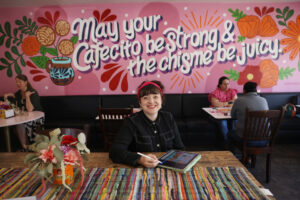
When it comes to public art, Sonoma County-based artist and graphic designer Blanca Molina goes big.
The post Maximalist Muralist Blanca Molina Spreads Color and Joy Throughout Sonoma County appeared first on Sonoma Magazine.
]]>
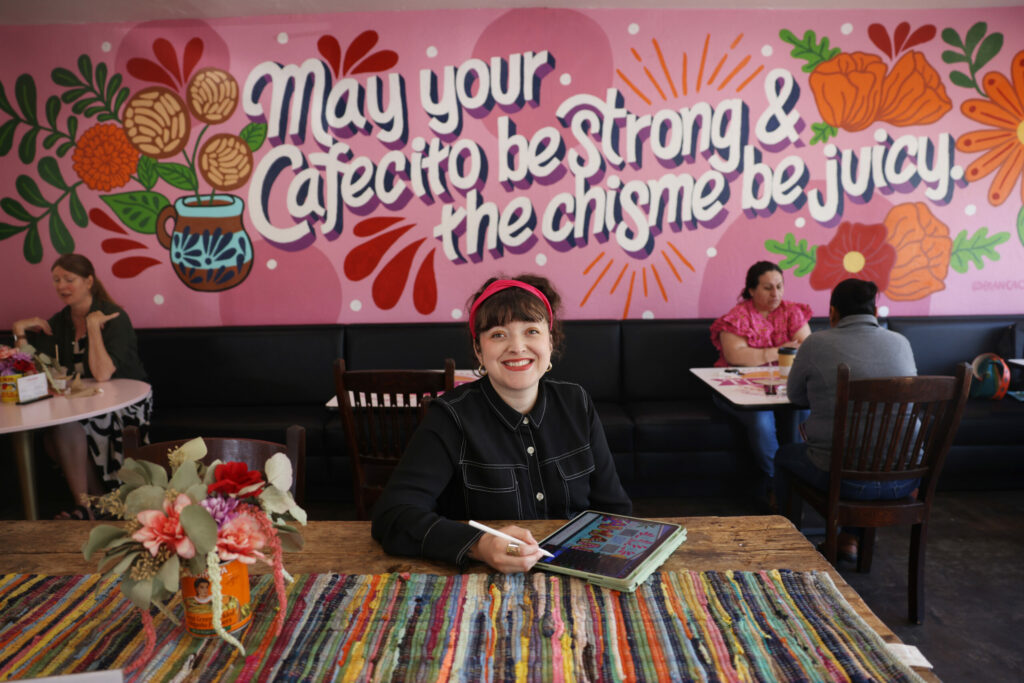
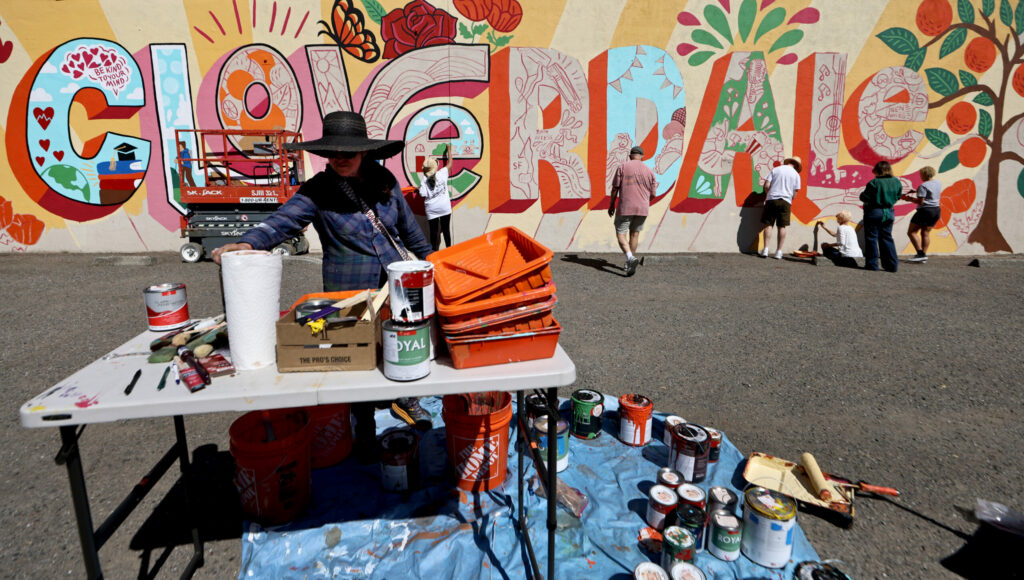
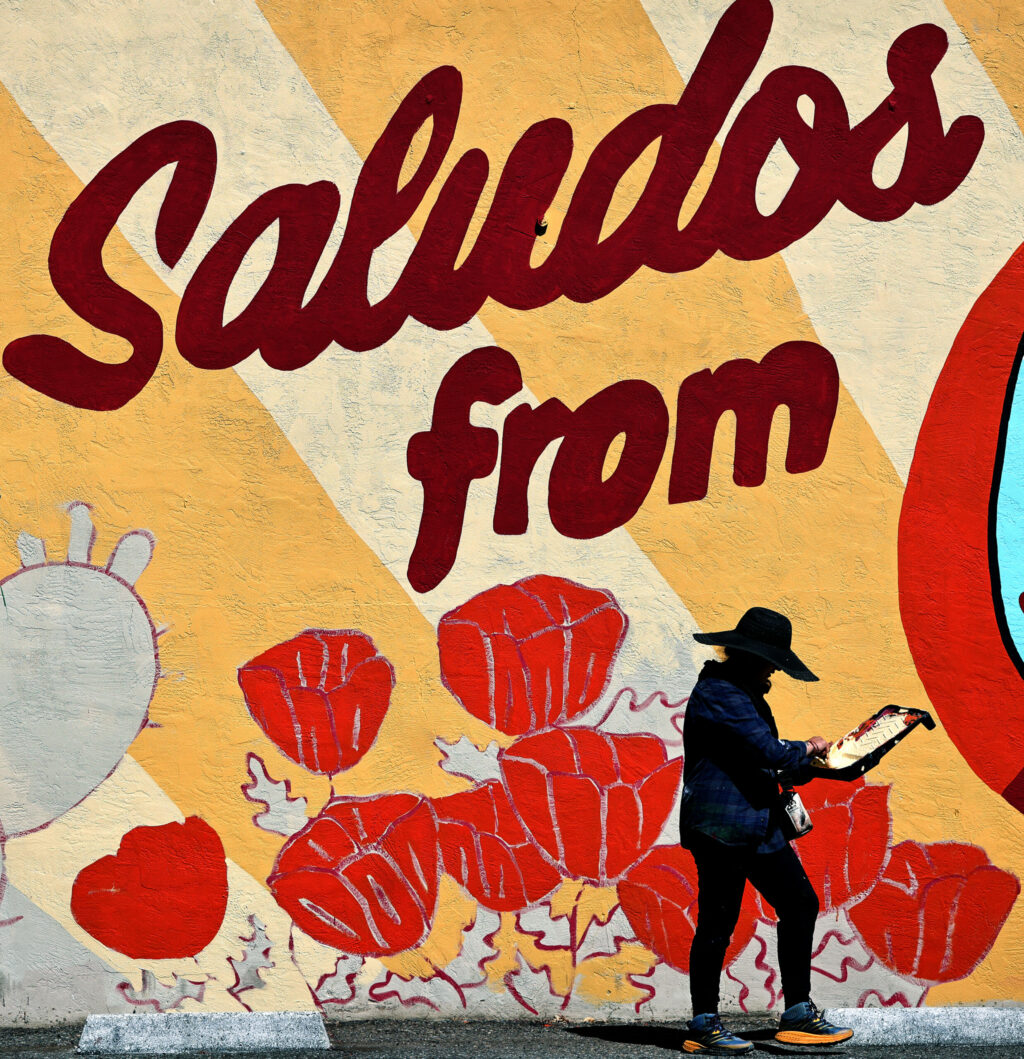
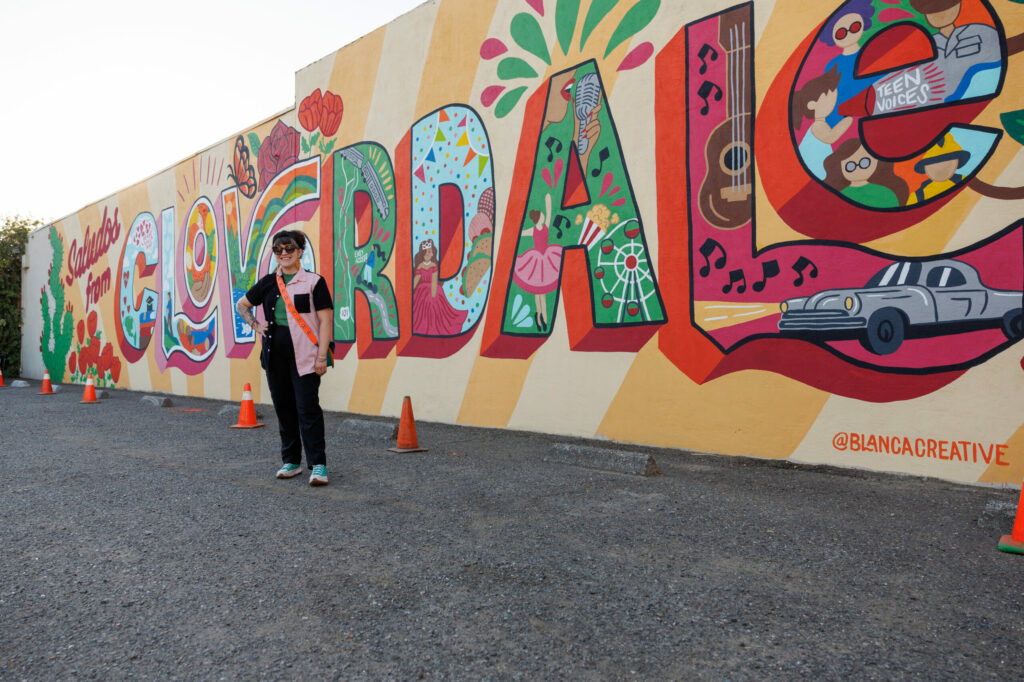

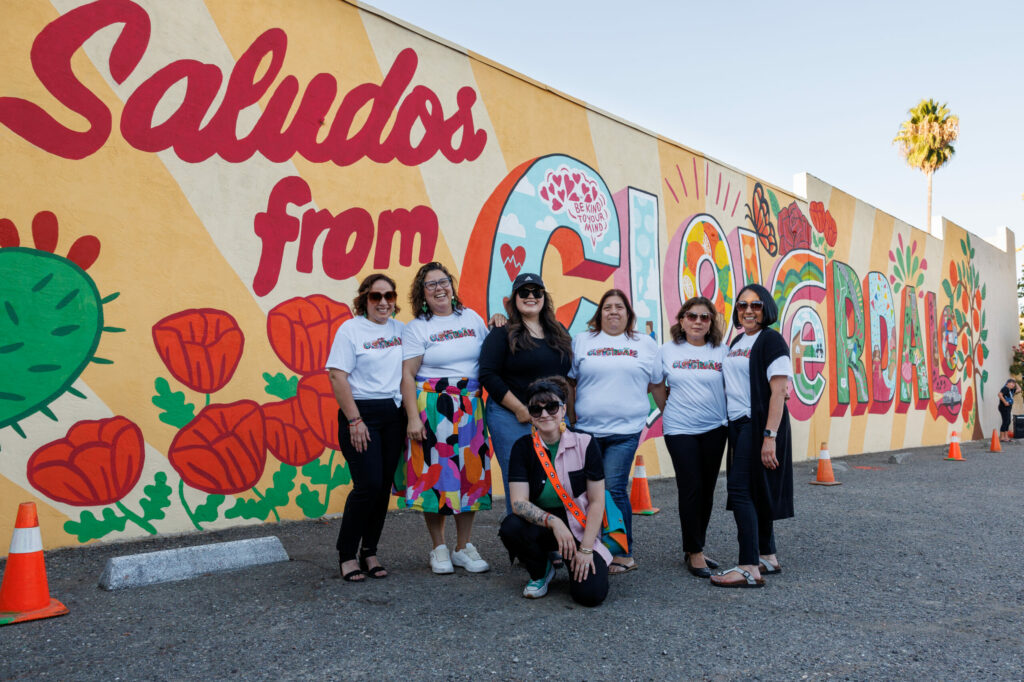
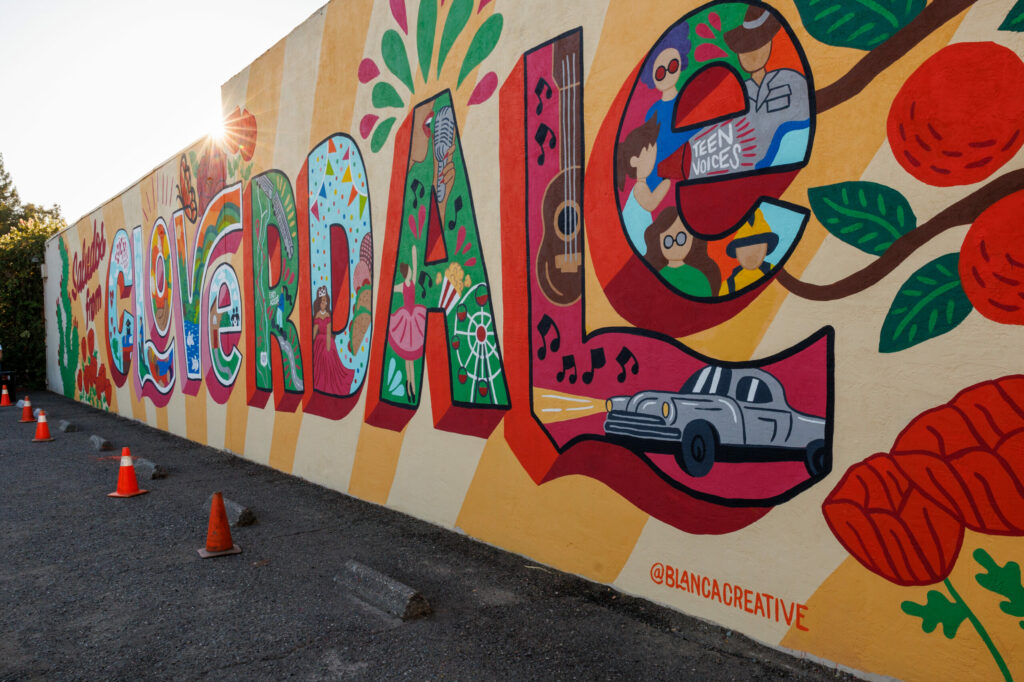
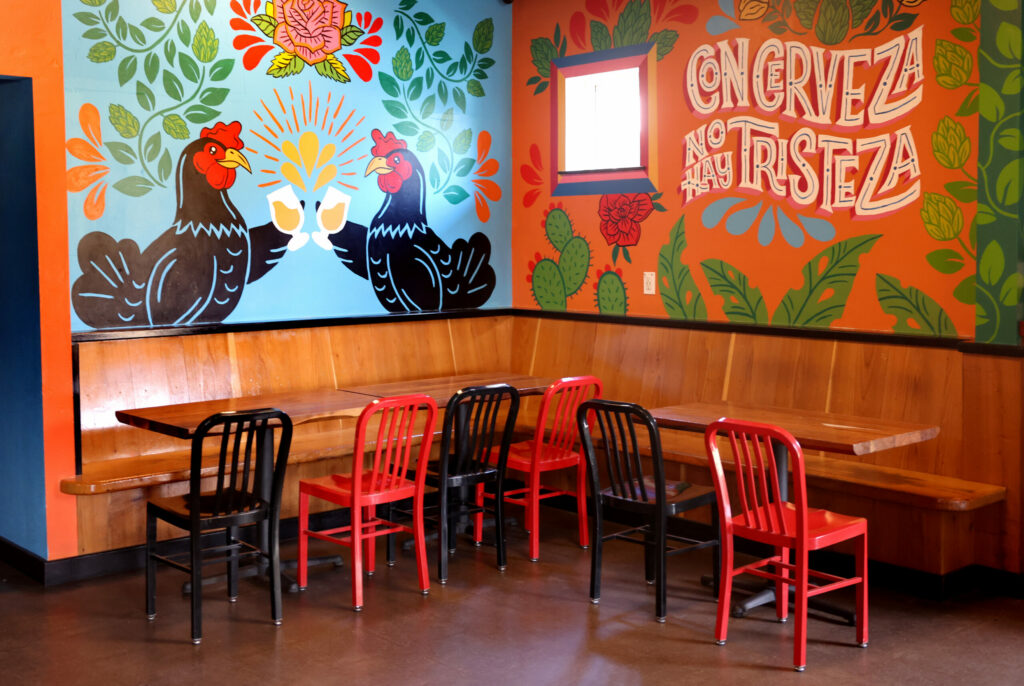
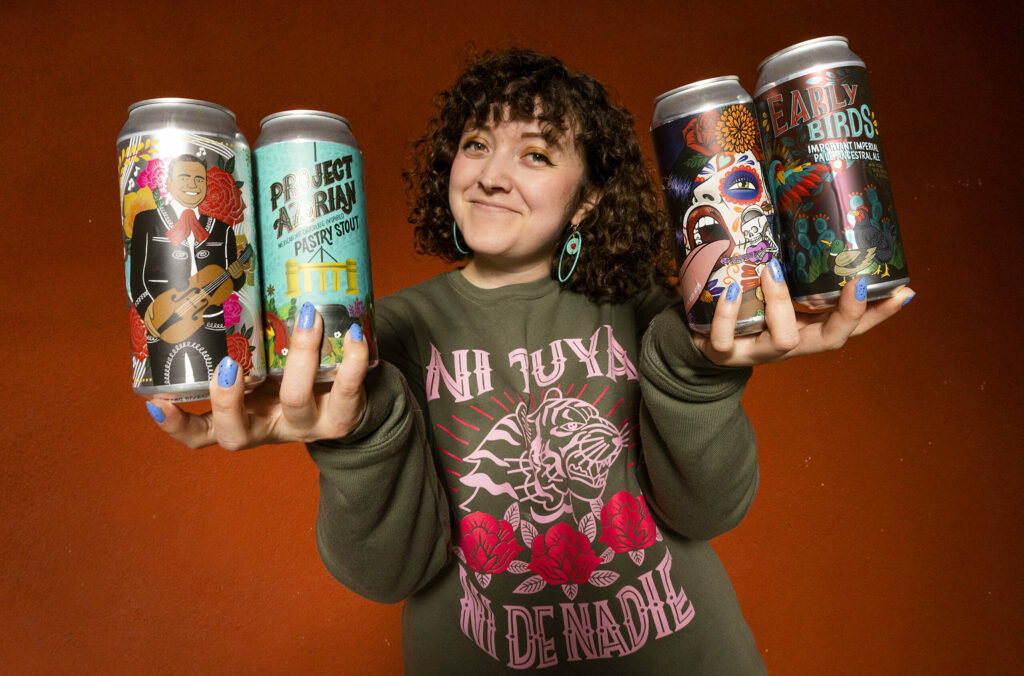

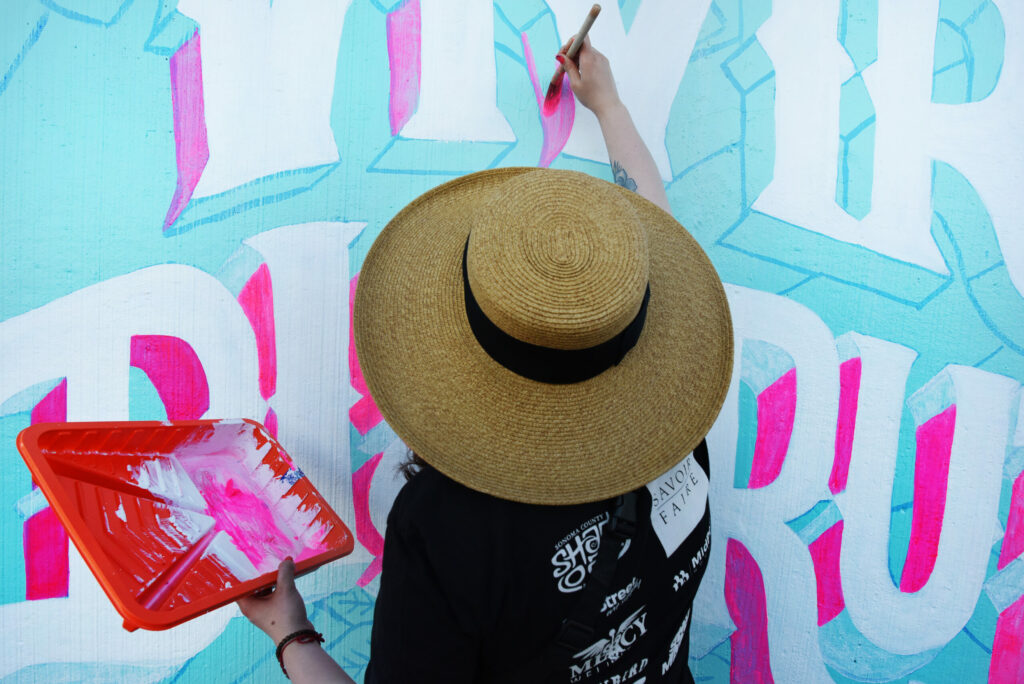
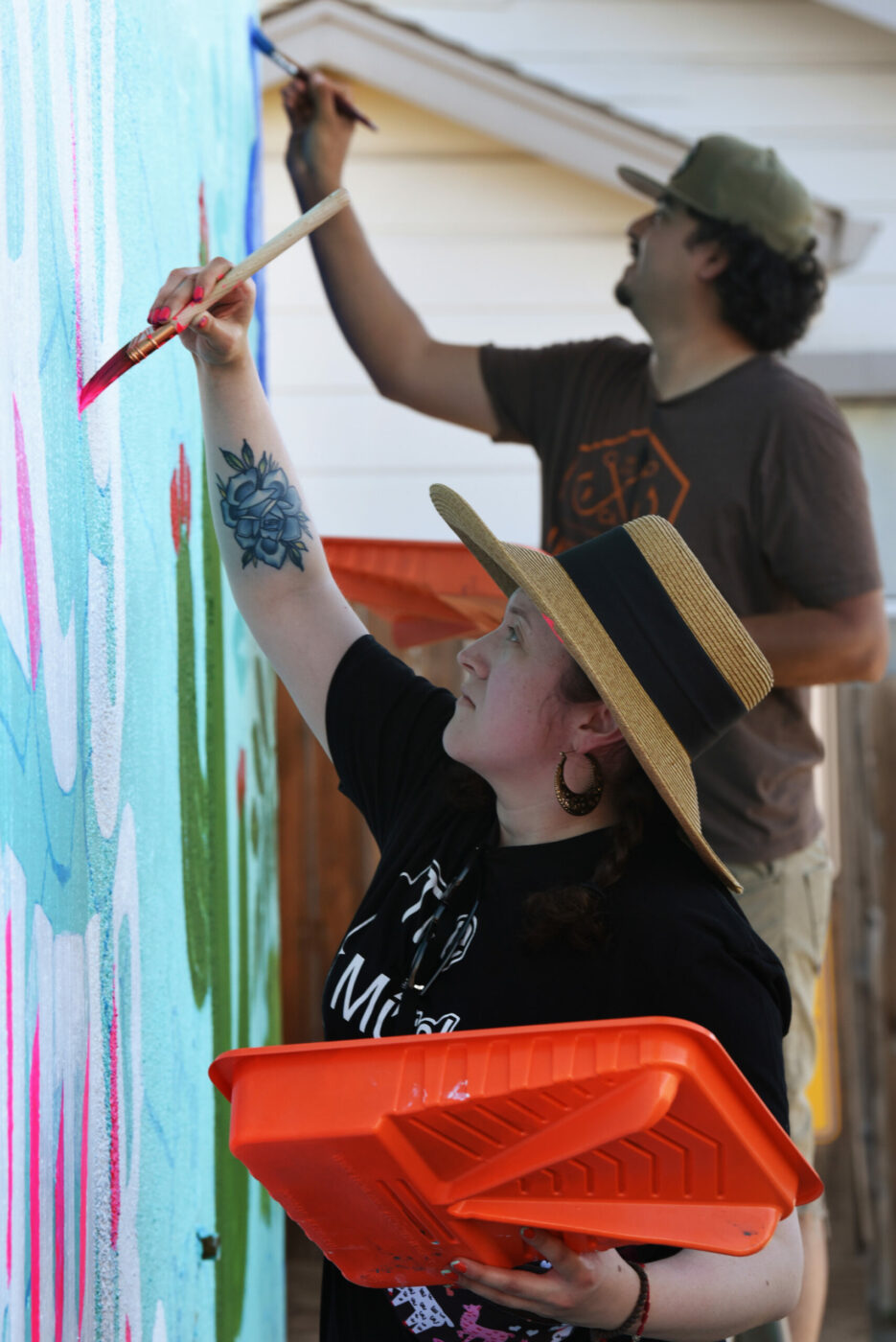
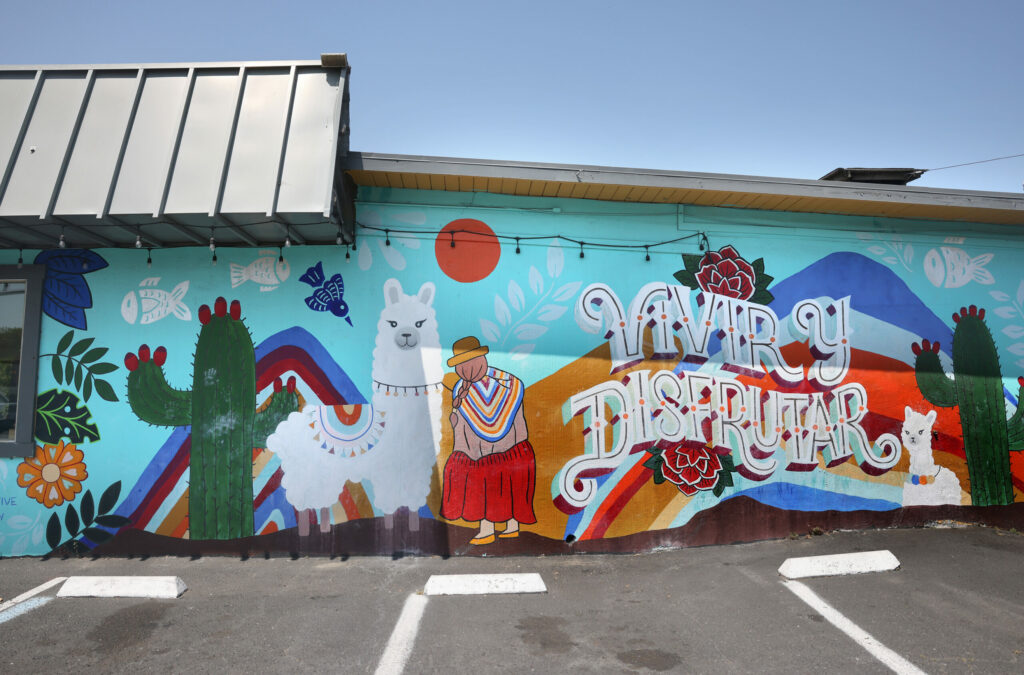
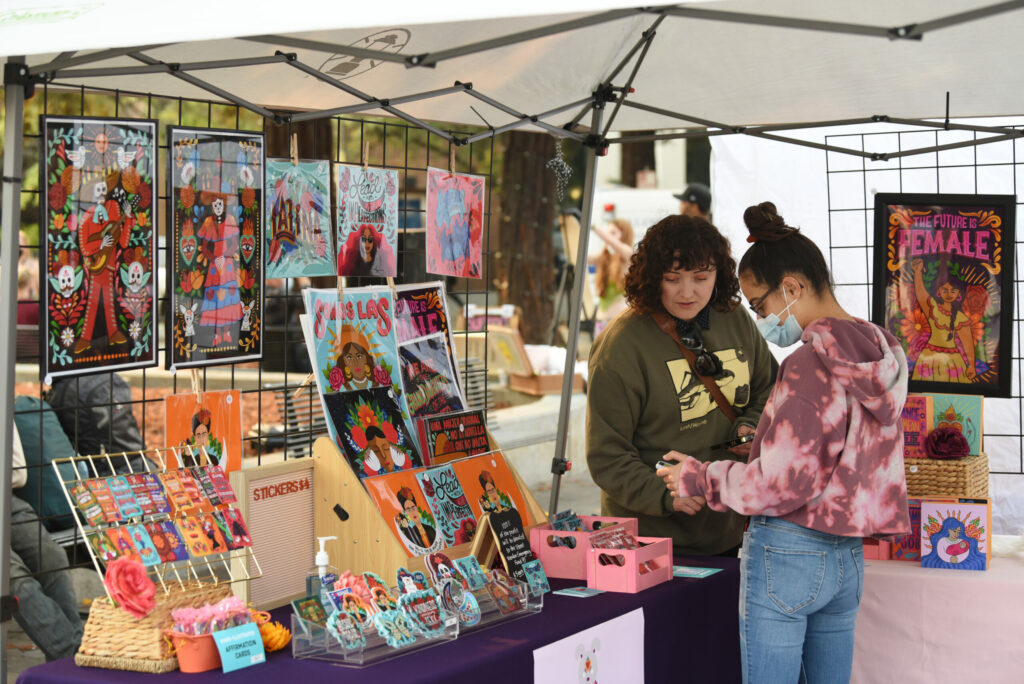

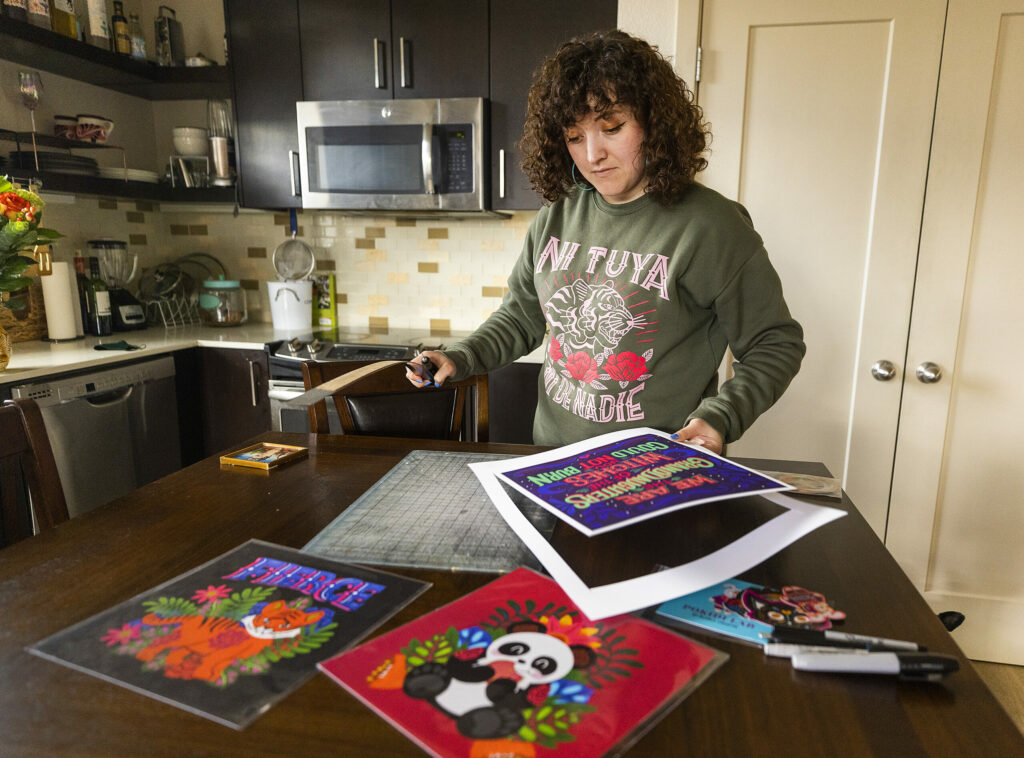
Blanca Molina sits in Tía María bakery in Santa Rosa’s Roseland neighborhood, studying her latest project on her iPad. At a table behind her, two women chat over cups of coffee, their conversation framed by a bright pink backdrop adorned with pops of orange florals and a bouquet of conchas sprouting from a café de olla that reads, “May your cafecitos be strong and your chisme be juicy.”
“Chisme means gossip,” explains Molina of the mural she created for the bakery this spring — one that might make you ponder: Does life imitate art, or does art imitate life?
For Molina, that philosophical question matters less than creating something that brings a smile to someone’s face. “Spreading joy and happiness with my art has always been my number one goal,” she says.
And she succeeds. Her creations are vibrant, bold, and lush. Describing herself as a “Latina maximalist,” Molina embraces a “more is more” approach. “I always want to add more pops of color, more movement. Make it busy, but clean. Organized chaos, I guess,” she explains.
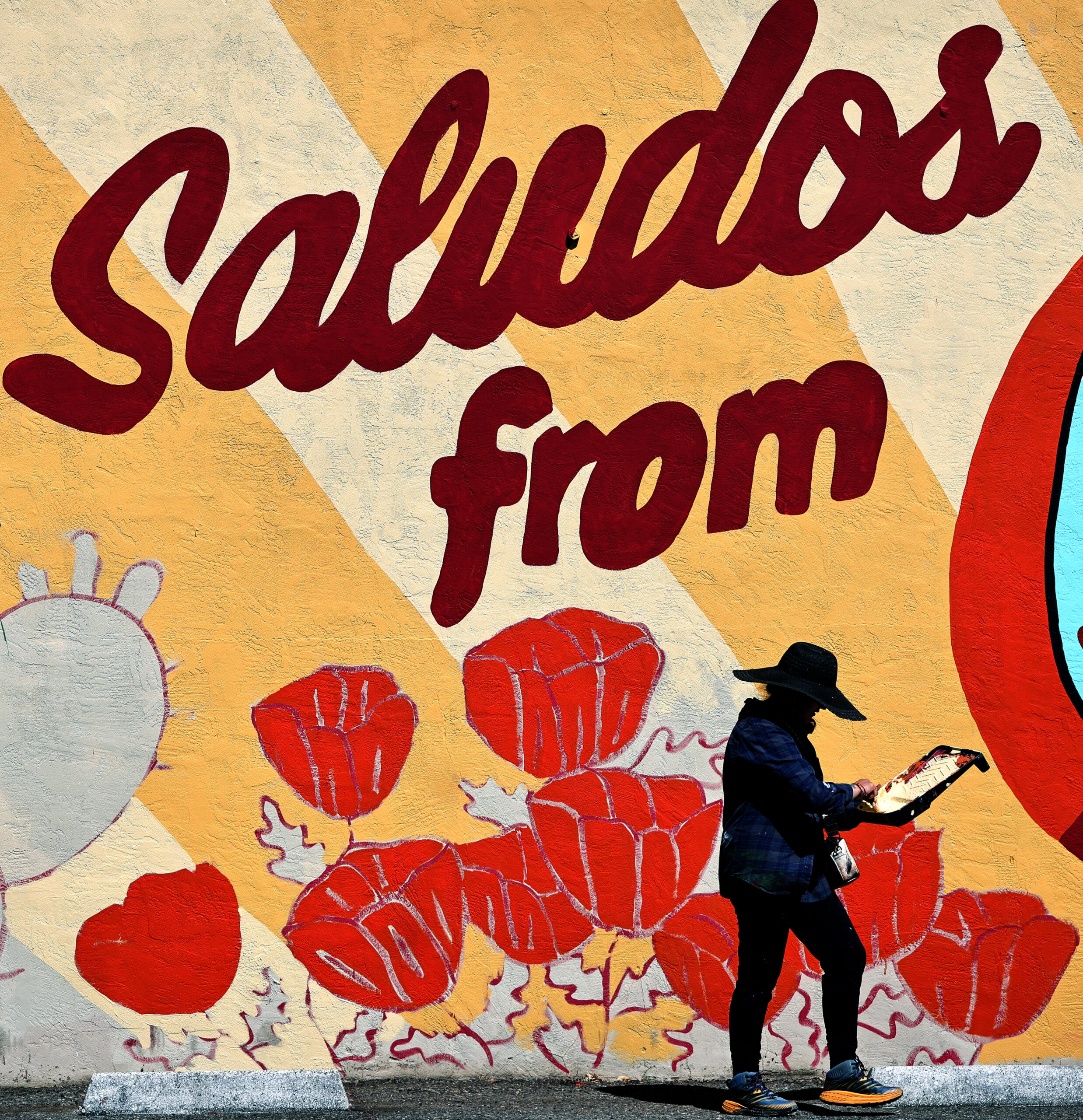
At its core, Molina’s art represents a yearning to capture the life her family left behind when they immigrated to California from Jalisco, Mexico, when she was 5 years old. “I kind of missed out on my culture by not being over there, so the only way I could connect to it is by drawing things that are important to the Mexican culture,” she says.
Molina is especially drawn to pink and orange hues, colors significant to Día de los Muertos, which also happens to be her busiest time of year. She recently completed a Día de los Muertos project for Lush Cosmetics, creating packaging that will be released this autumn.
The imagery of sugar skulls and brujas (witches) — inspired by the holiday — features prominently in her artwork and has brought her considerable attention. But her work also incorporates American influences. “I grew up here, so I do use a lot of Spanglish,” she says of her designs.
After her family settled in Napa, Molina, her parents, and her two siblings moved to a property in Alexander Valley where her father managed a vineyard. She worked at the nearby Jimtown Store during college and credits the store’s owner at the time, Carrie Brown, with influencing her artistic approach. “She’s very colorful in her way of putting foods together. It influenced my art down the line,” Molina recalls.

A career graphic designer, Molina learned early on, while a student at Healdsburg High School, that creativity can be a powerful tool for tackling tough topics. “Sometimes, the topics weren’t even that interesting to me, but I knew I had to do a poster and the poster made me more excited about it.” Some teachers even complimented her ability to make “boring” subjects more engaging.
Even now, with her use of vivid colors and joyful artwork, she manages to broach subjects like immigration, feminism, and self-actualization with a sense of humor — albeit with a subversive spin, but only in the nicest way possible. “I don’t like to say negative things, I like to spread positivity,” she says of her images with messages like “The immigration community is beautiful” and “The future is female.”
Molina’s message of joy and positivity flourishes for all to see in her artwork. Her murals, largely concentrated in the Roseland neighborhood, are public-facing art. In addition to the one at Tía María, another at nearby HenHouse Brewing reads, “con cerveza, no hay tristeza.” Molina says, “It sounds better in Spanish,” but translates it roughly to “with beer, there is no sadness.”


Her first design, “vivir y disfrutar,” painted in 2022 on the side of Sazón Peruvian restaurant, means simply to “live and enjoy life” — a reminder, perhaps, to the sometimes harried drivers on busy Sebastopol Road to slow down and take it easy.
Her newest mural design, debuting this summer, is mobile — a bus in Napa Valley will be fully wrapped in her artwork, incorporating, among other things, vineyards, a vineyard worker, and a woman holding a glass of wine on one side. On the other, orange poppies and the California bear appear — in this iteration, with a pair of monarch butterfly wings. (The bear on the California flag was inspired by a bear named “Monarch,” one of the last California grizzlies in captivity.)
Although all her murals are impressive, none are so precious as to be tucked away in an intimidating gallery or hushed museum. The medium is the message: This is art for everybody.

The mural in Molina’s new hometown, Cloverdale, which was unveiled last year, was a turning point for how she approaches projects. Through a series of meetings organized with Kimzin Creative, community members gave input about meaningful images to include. The themes they selected were incorporated into letters that spell out “Cloverdale” for a 60-foot mural on the side of the Encore Dance Theater on Cloverdale Boulevard.
To create a mural, Molina photographs the wall, then uses its exact dimensions for her design. In her home office, she creates a digital image on a computer with a giant screen that allows her to easily see her more detailed work.
When it’s time to turn virtual into reality, she uses a laptop to project the outline of her design onto the wall, then traces it, quickly, sometimes in chalk, sometimes with paint. For large projects, like the Cloverdale mural, she projects a quadrant at a time, carefully piecing it together.


When it came time to paint the Cloverdale mural, the community got to help — a first for Molina. She describes her work as a “very color-by-numbers kind of style,” which helps on projects where people bring varying degrees of artistic experience or, perhaps, none at all. But just because it’s easy to paint, it doesn’t mean it’s easy to design.
Creating the template, she says, is where the real work lies. “Coming up with something that other people can do, that’s where it gets tricky.” But for her, the work is worth it because that collaboration allows people to experience a deeper connection to the art. “People would go to the flower they painted, and they’ll show their family, ‘Oh, I painted that flower.’”
Now, when a business or organization asks her to create a mural, she encourages them to consider involving others. “If you bring customers in (to help), they’ll become even more loyal customers,” she says. “It’s just a beautiful feeling. It brings more positivity to that business.”
Living so close to the Cloverdale mural, Molina finds a lot of satisfaction seeing people — including city council members — take photos in front of it. “It’s like a warm hug.”
Follow on Instagram @blancacreative. blancacreative.com
Find Molina’s murals, along with murals from other local artists, scattered all around Sonoma County.
The post Maximalist Muralist Blanca Molina Spreads Color and Joy Throughout Sonoma County appeared first on Sonoma Magazine.
]]>
The seasonal bruschetta pizza at Psychic Pie adds first-of-the-season local tomatoes atop an award-winning sourdough crust.
The post Psychic Pie Is Having a Tomato Moment With a Summer-Only Pizza appeared first on Sonoma Magazine.
]]>
















Sure, tomatoes are available year-round, but is there anything more delicious than red, ripe cherry tomatoes or super-sweet Sungolds right off the vine?
The summer-only bruschetta pizza at Psychic Pie pairs first-of-the-season local tomatoes with their herbal bestie, basil, atop an award-winning Roman-style sourdough pizza crust.
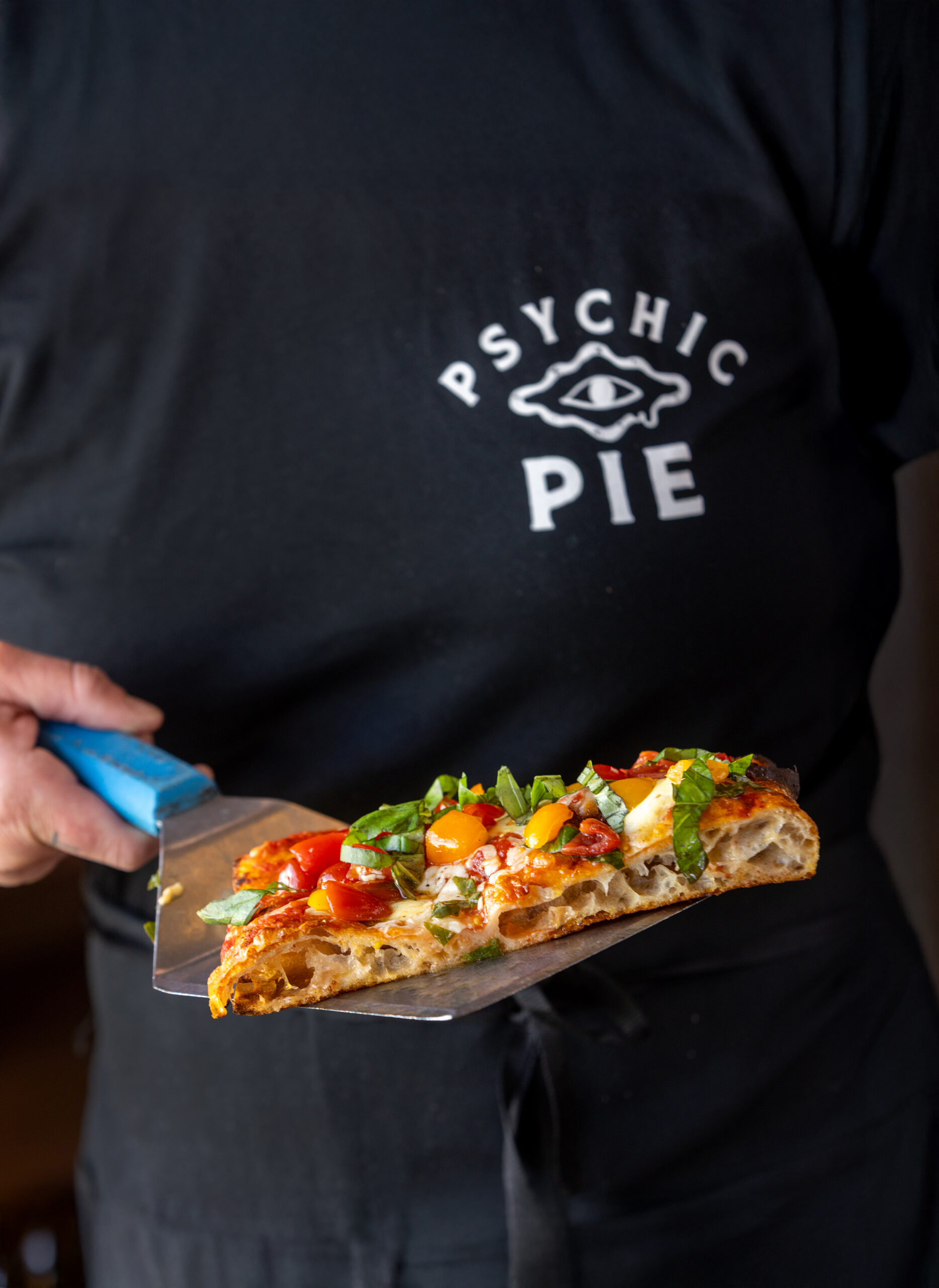
“Sungolds have become super-popular. That’s my favorite variety I always try to mix in there,” says Leith Leiser-Miller, Psychic Pie’s co-owner along with her husband, Nicholi Ludlow. “The bruschetta pizza makes me think of something simple that’s refreshing and filling and delicious that I can eat outside.”
A glistening drizzle of golden balsamic vinegar and a sprinkle of aged Estero Gold Reserve cheese connect the dots on this tasty seasonal slice.
980 Gravenstein Highway S., Sebastopol. 707-827-6032, psychicpie.com
Want to get your own summer tomatoes? Find them at one of our favorite local farmstands. Find more of the best pizza spots in Sonoma County here.
The post Psychic Pie Is Having a Tomato Moment With a Summer-Only Pizza appeared first on Sonoma Magazine.
]]>
Here are some new and unexpected spots to quench your sweet cravings in Sonoma County.
The post 6 Unique Cool Treats to Try This Summer in Sonoma County appeared first on Sonoma Magazine.
]]>
















Summer is the perfect excuse for eating ice cream, drinking slushies, and not giving a hoot about the calories because you’ll certainly sweat them off, right? And while there are more than a dozen usual suspects when it comes to favorite summer sweets, this list goes a little deeper, featuring new and unexpected spots to quench your cravings.
Best Boozy

Cooperage Brewing
On a hot day, nothing beats a cold beer — unless it’s a hard seltzer slushy. This Santa Rosa brewery’s seasonal Sparklepants seltzer releases are spun into icy, dangerously delicious drinks that beat the summer heat with a sneaky kick. A tropical moment on sweltering days. 981 Airway Court and 575 Ross St., Santa Rosa. 707-293-9787, cooperagebrewing.com
Best Seasonal Selection
Darling Ice Cream Shop
The always-changing flavors at this charming Sonoma ice cream shop mean you’ll have plenty of reasons to return. A sister shop to Sweet Scoops on the Sonoma Plaza, this neighborhood fave is known for its Watmaugh strawberry, salted caramel and, if you want to go the soft-serve route, a sunny Pineapple Dole Whip. 201 W. Napa St., Suite 6, Sonoma. 707-343-1482, darlingsonoma.com

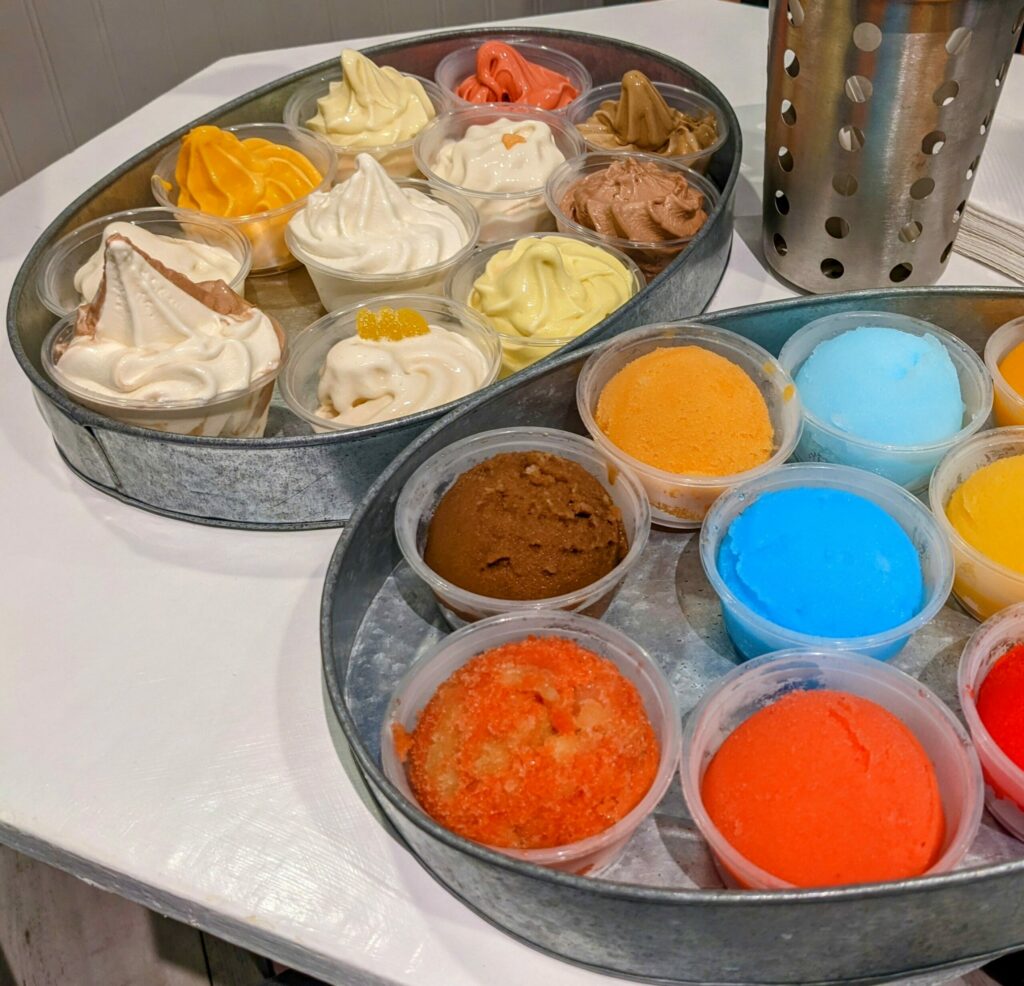
Best Pickle Slush
Once Upon a Slush
More like Italian ice than a Slurpee, these Boston-style slushes need a spoon — at least to start. And yes, they have a pickle slush that tastes precisely like a pickle. Not feeling that adventurous? Go for fruit flavors like cherry or orange creamsicle and add sprinkles, drizzles and layers of soft-serve ice cream for the full experience. 122 B American Alley, Petaluma. 707-763-9253, onceuponaslush.com
Best Halo-Halo

Tambayan Filipino Eatery
The name of this traditional Filipino dessert means “mix-mix” in Tagalog, and what a mix it is. This colorful combination of crushed ice, evaporated milk, coconut strips, sweet beans, fruit jellies and a scoop of purple yam ice cream is — trust me on this — the most surprisingly delicious dessert you’ve probably never had before. 600 Larkfield Center, Larkfield-Wikiup. 707-843-3824, tambayaneatery.com
Best Rolled
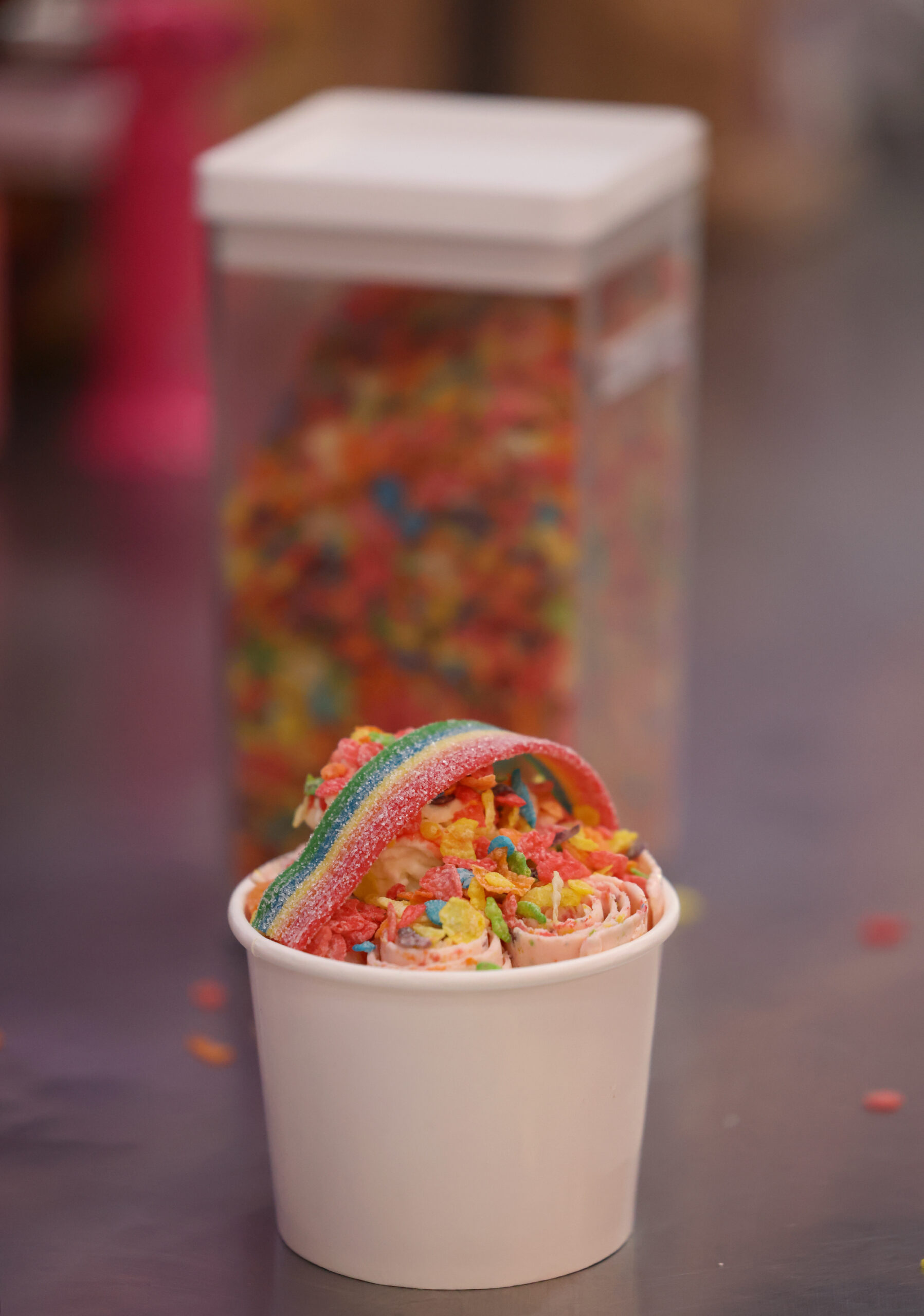
Pink Sugar Creamery
Ice cream is a treat in any form — it just seems more delicious in scroll-like rolls. At the former Yogurt Farms, wall-to-wall pink decor (including swings with fuzzy pink seats) sets the stage for rolled ice cream, a street-food treat from Thailand. Here’s how it works: A cream mixture is poured onto chilled steel plates that almost instantly freezes it. Dual spatulas then chop, pulverize and blend in candy, cookies, fruit or cake before the mixture is spread into a thin layer and finally scraped into tight, frozen curls. Fun for the whole family. 1224 Mendocino Ave., Santa Rosa. 707-368-3200, Instagram.com/pinksugarcreamery
Best Ice Cream Sando
Sebastopol Cookie Company
It’s all about the cookies at this hole-in-the-wall bakery. Fresh chocolate chip cookies are outstanding on their own, but in the summer, they add an ice cream middle. Just like milk and cookies, but better. 168 N. Main St., Sebastopol. 707-824-4040, sebastopolcookiecompany.com
The post 6 Unique Cool Treats to Try This Summer in Sonoma County appeared first on Sonoma Magazine.
]]>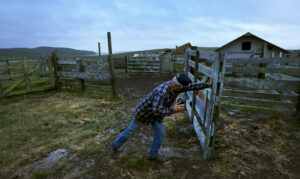
The Point Reyes ranch has been in the family since 1946. After a reluctant settlement deal, the family gathered for a bittersweet reunion and final roundup.
The post Point Reyes Family Says Goodbye to Cherished Ranch After Years of Legal Battles appeared first on Sonoma Magazine.
]]>
















Early dawn on Point Reyes brings another sunrise without a sun, the May fog shrouding this Saturday as winds whip up like they often do out on the peninsula.
“It’s all I’ve ever known,” says rancher Kevin Lunny. He’s talking about the wind, the light, the smell of cows, the scent of salted air off the sea — almost every detail in his life — as he drives a 4×4 into the pasture where his grandfather first set foot in 1946.
An executive at Pope and Talbot in San Francisco, Joe Lunny Sr. was a steamship man, not a farmer. But after buying a run-down dairy on the Historic G Ranch, he learned, often the hard way, from old family ranchers nearby, like the Kehoes and the Mendozas, who had worked the land long before he arrived. His son, Joe Lunny Jr., who was 17 at the time — he’s now 94 — remembers, “I came out here as greenhorn as you can be.”
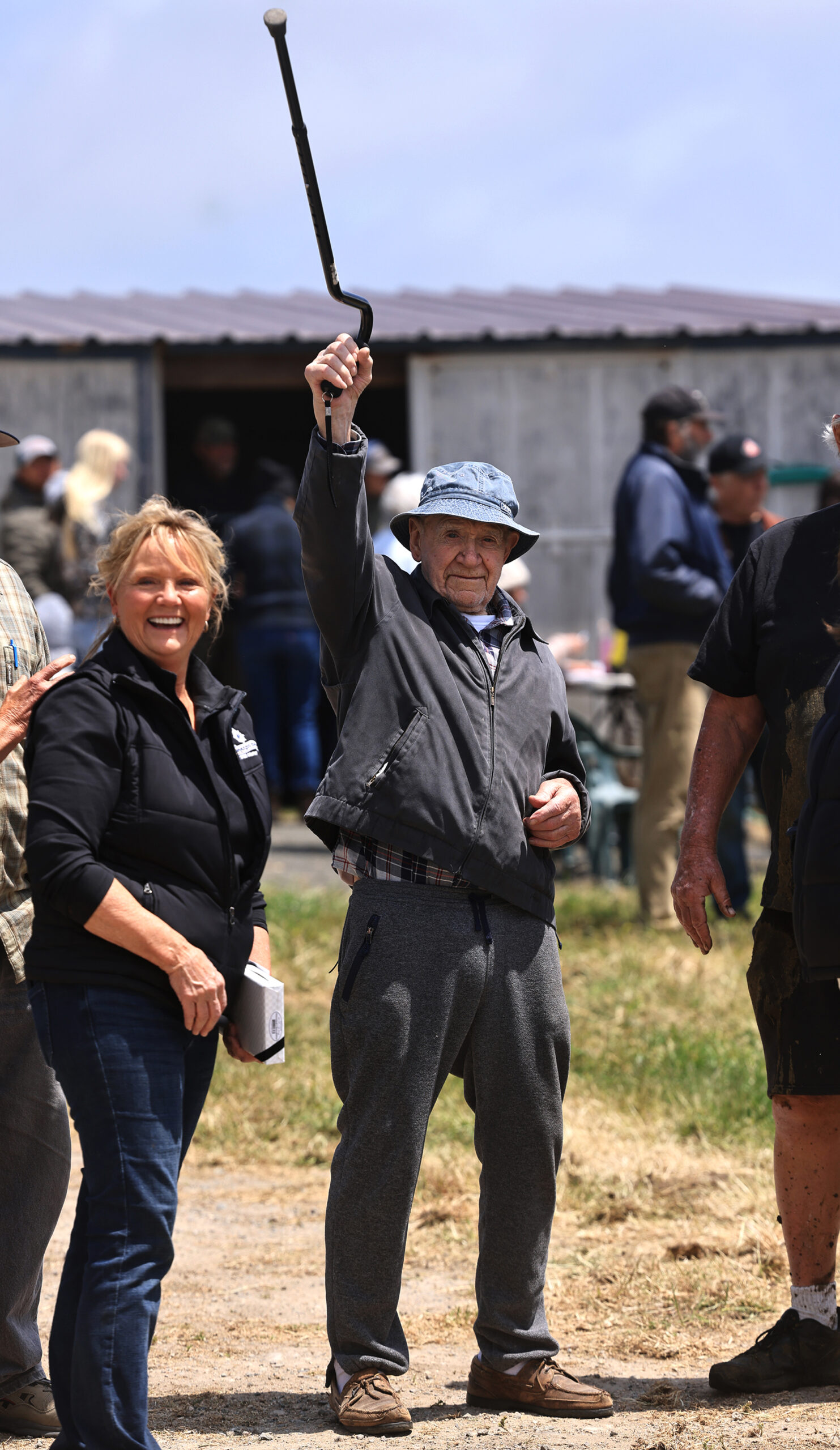
Over these past few weeks, everything Kevin Lunny does, whether closing a pasture gate or fixing a fence wire or taking an evening walk down to Abbotts Lagoon with his wife Nancy — he keeps asking himself, will this be the last time?
Today, at least, one thing appears sure: This is the final cattle roundup at Lunny Ranch. The last time he’ll ever bring cows into corrals and separate them. He’s known this day might arrive sooner than later, for years now.
“But it’s still hard,” he says.
More than a decade ago, when he lost a long-shot bid to renew the federal lease inside Point Reyes National Seashore for his Drakes Bay Oyster Company, he had a premonition this day might come. After the seashore was created in 1962, with provisions for pastoral and wilderness lands, the longtime ranching families were reluctant to sell their land to the federal government, even with agreements to lease the land back.

Over the decades, those agreements came increasingly under fire from environmental groups who want more of the park turned over to wilderness and wildlife. After years of lawsuits and mediation between ranchers, environmental groups, and the National Park Service, which owns the land, the park is effectively shutting down the farm Lunny grew up on, one of a dozen set to close by next year under a voluntary buyout brokered by The Nature Conservancy.
Lunny, a frontman in many of the biggest fights over the seashore in the past decade, doesn’t want to argue over the details anymore. He held out as long as he could. Finally, his father came to him and said, “I think we have to come to a yes. I don’t want to see it kill you.”
In January, he was the last of 12 ranchers to sign the settlement, which includes a reported $30-million payout to the ranchers who agreed to leave the land forever by next spring.
Now, Lunny looks out on the pasture where his grandkids, other family, and old friends make wide sweeps on dirt bikes, horseback, and 4x4s, leading the cattle toward the corrals.

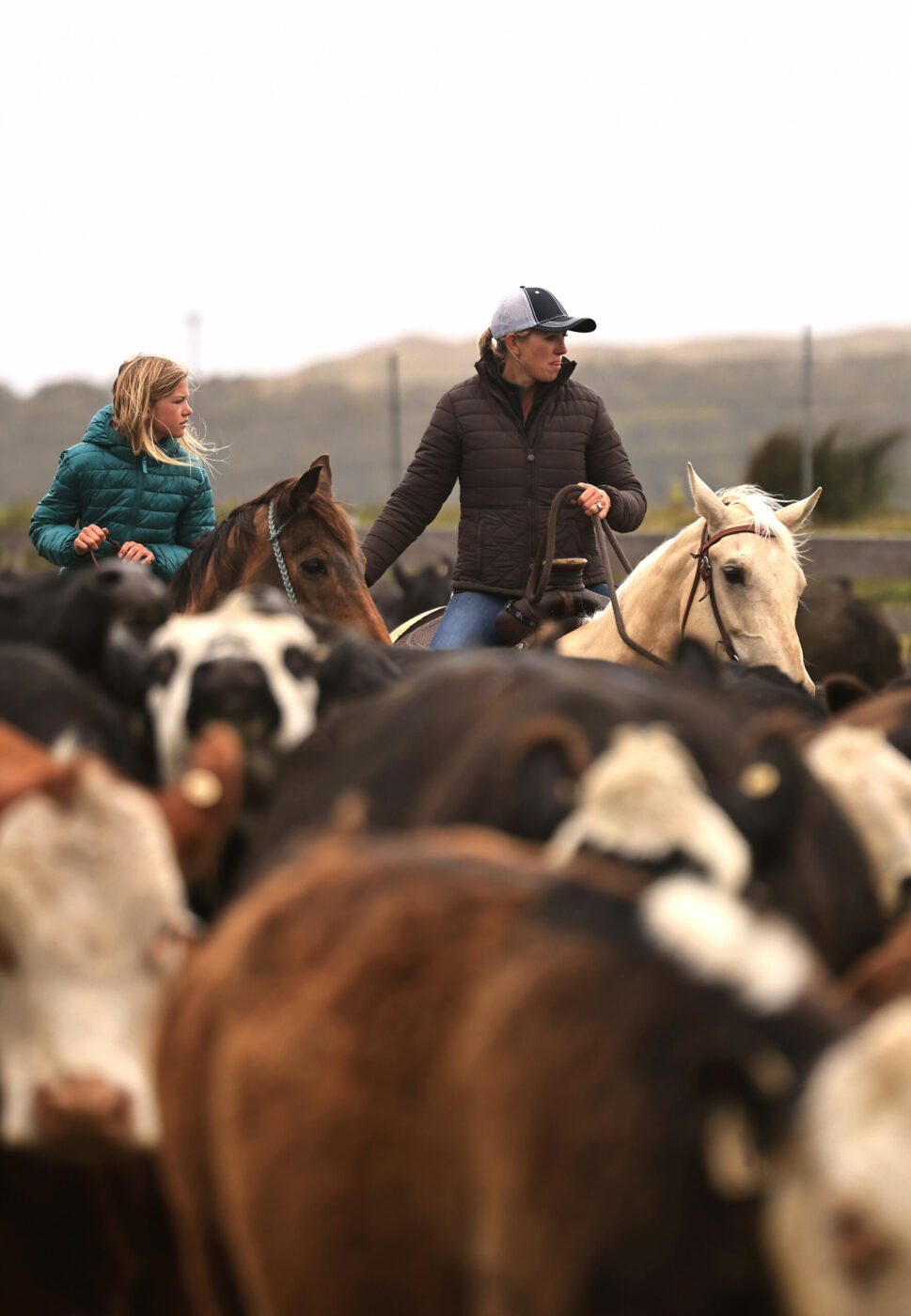
“We’ve never had this many people to gather cows in our life,” he says. “It’s really kind of everybody in the family coming together. It’s very emotional for everybody. It shows you how this place has been meaningful for generations.”
His daughter Brigid Mata, who has worked the farm since she was a child, says she originally thought maybe the last roundup should just be small and super-intimate. “But my dad said, you know, everyone has memories here. Everyone wants to be a part of it.”
On this final roundup, there are 90 mother cows, 30 bred heifers, 85 calves — many that will relocate to a pasture in southern Oregon for now. And 55 2-year-olds going to slaughter.
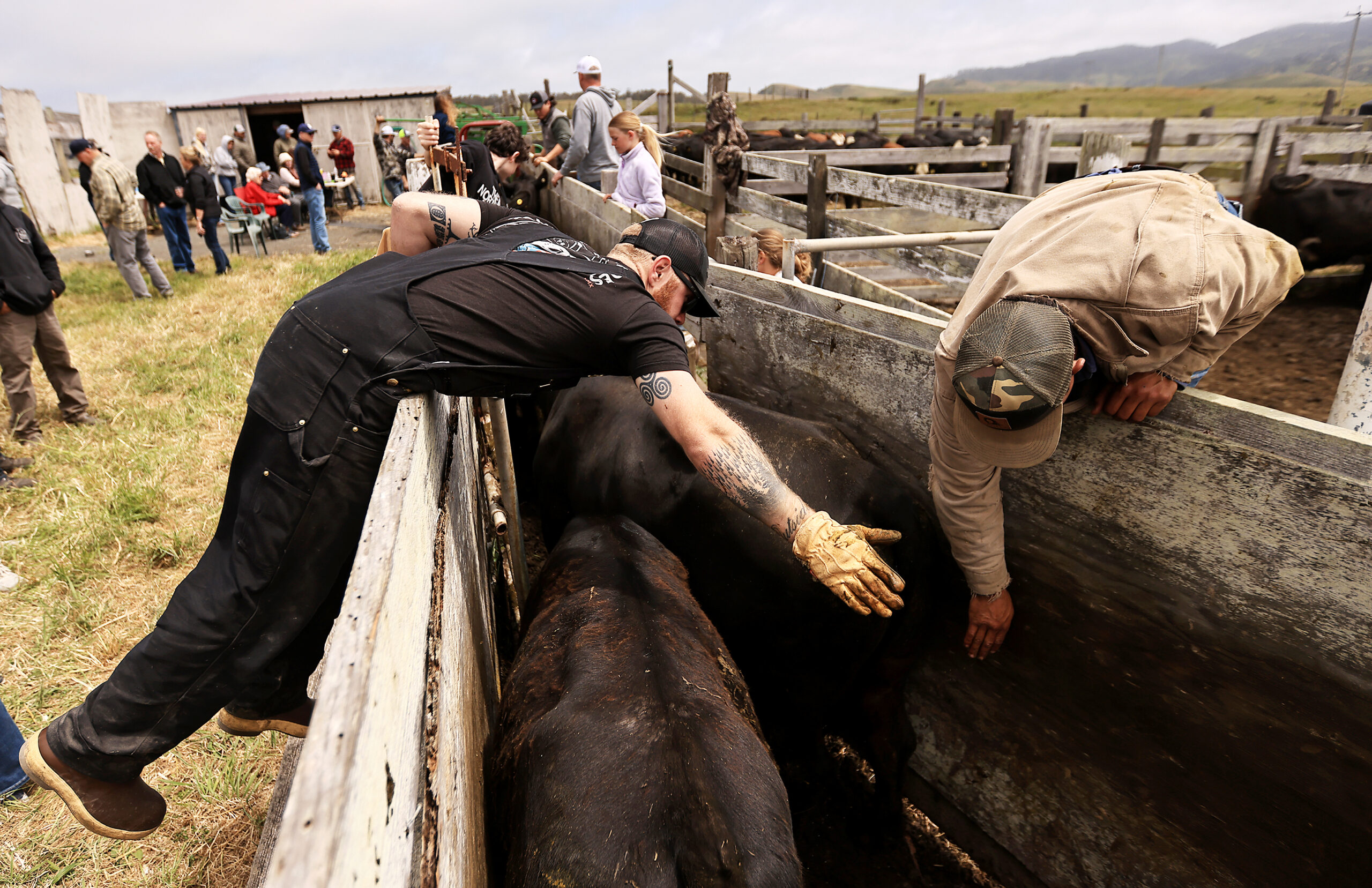
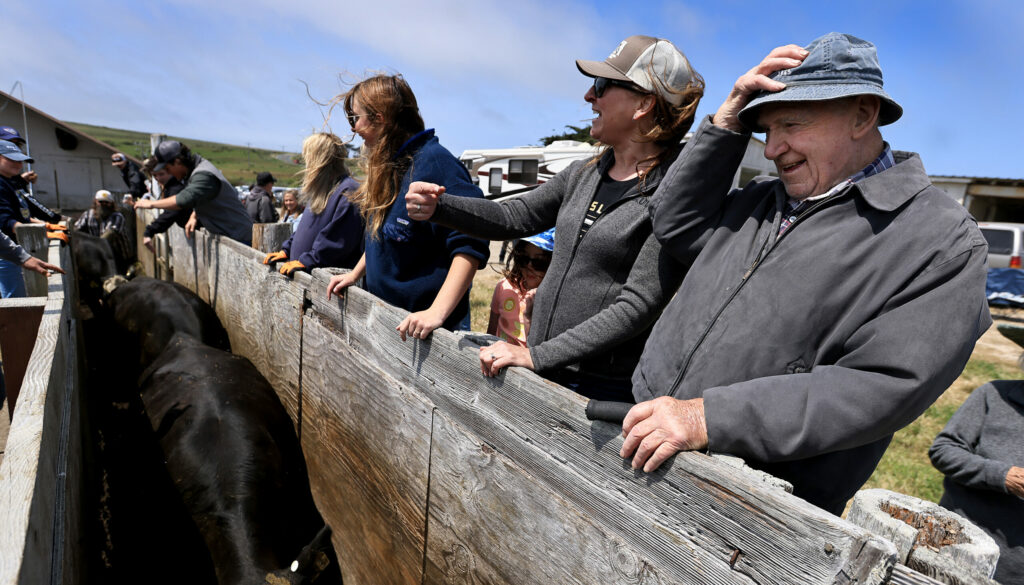
Over the next few hours, friends and family from as far and wide as Tennessee, Washington and all over California, will lend a hand helping sort cattle while a vet does pregnancy checks on mother cows. Mata will attach new ear tags on the cows going to Oregon, and Nancy Lunny will log every detail from the vet checks in her notebook. Eventually, empty boxes of doughnuts make way for an open-pit barbecue firing up. It feels like a family reunion, with all the hugs and back-slapping and kids running around.
“On the outside we might be laughing and smiling and carrying on, but on the inside, everyone is sad,” says Kevin Lunny.
His father, Joe Lunny Jr., is taking it the hardest. He’s watching from afar, on the patio of the main house. As people park and walk up the driveway, they stop to pay their respects as if giving their condolences at a funeral. Joe leads them through a room with walls filled with family photos and deer mounts. Nearby, framed on the wall, an old Press Democrat story headline reads, “Ranching in Paradise.”
Over the years, it became anything but that.
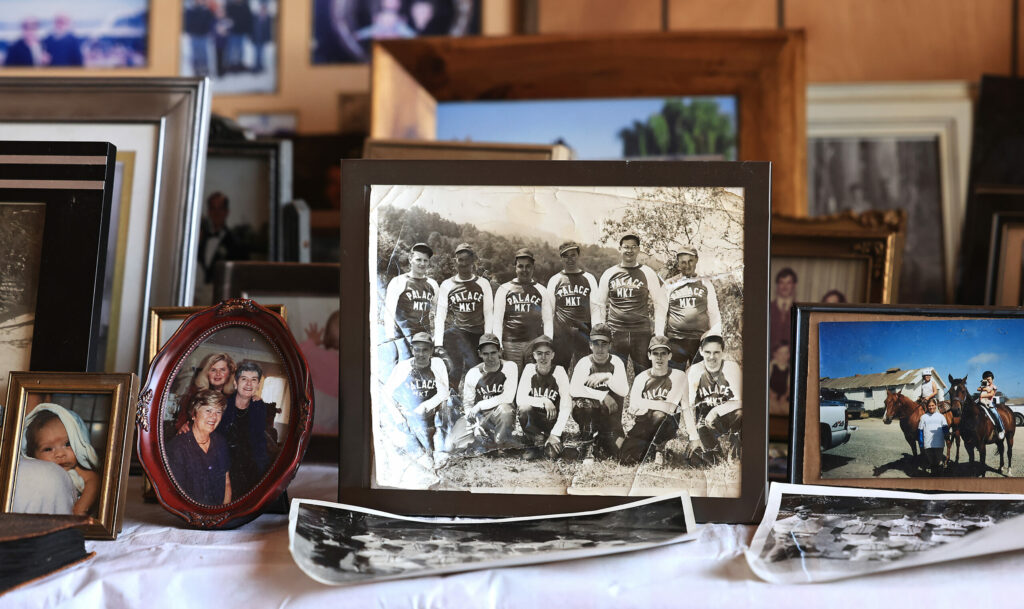
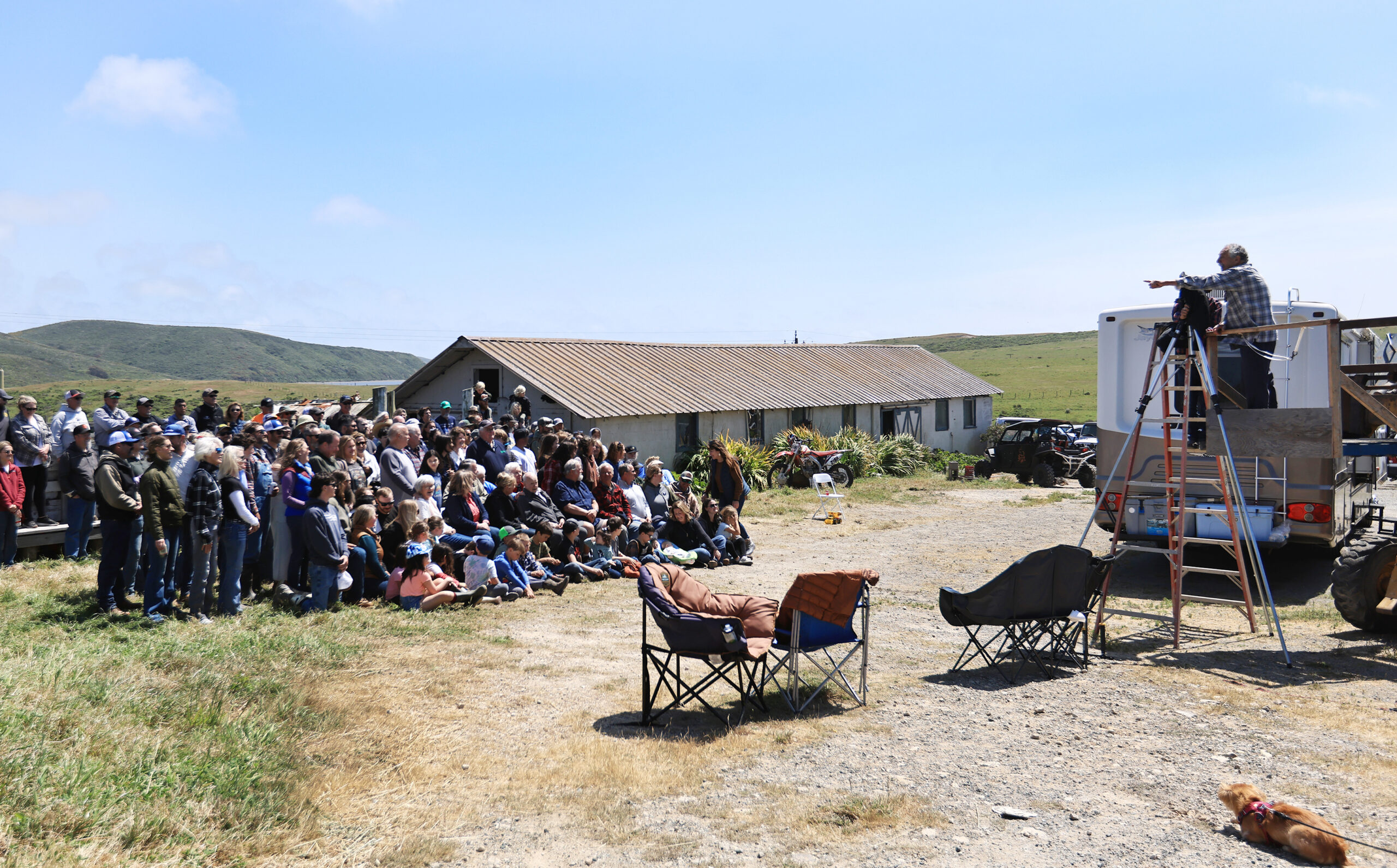
“I thought I would die here one day,” says Joe Lunny Jr., choking back tears as he reaches out to the land with one arm.
Will he ever return to visit?
“Why would I?” he says.
By this time, in the thick of summer, Kevin and Nancy Lunny plan to be settled down in their new home on 10 acres near Auburn. His father will split time with them and his sisters, who live in Penngrove and McCloud near Mt. Shasta.
On the farm outside Auburn, there’s a pond stocked with bass and bluegill that his grandkids love to fish. Kevin Lunny thought he would have a hard time adjusting to such a quiet place, without the constant sound of the ocean and harsh winds he grew up with in Point Reyes. But a creek running through the property “that babbles year-round” has filled any void. He also kept a few cows, because he says it would be hard to live without them, and he has a barn.
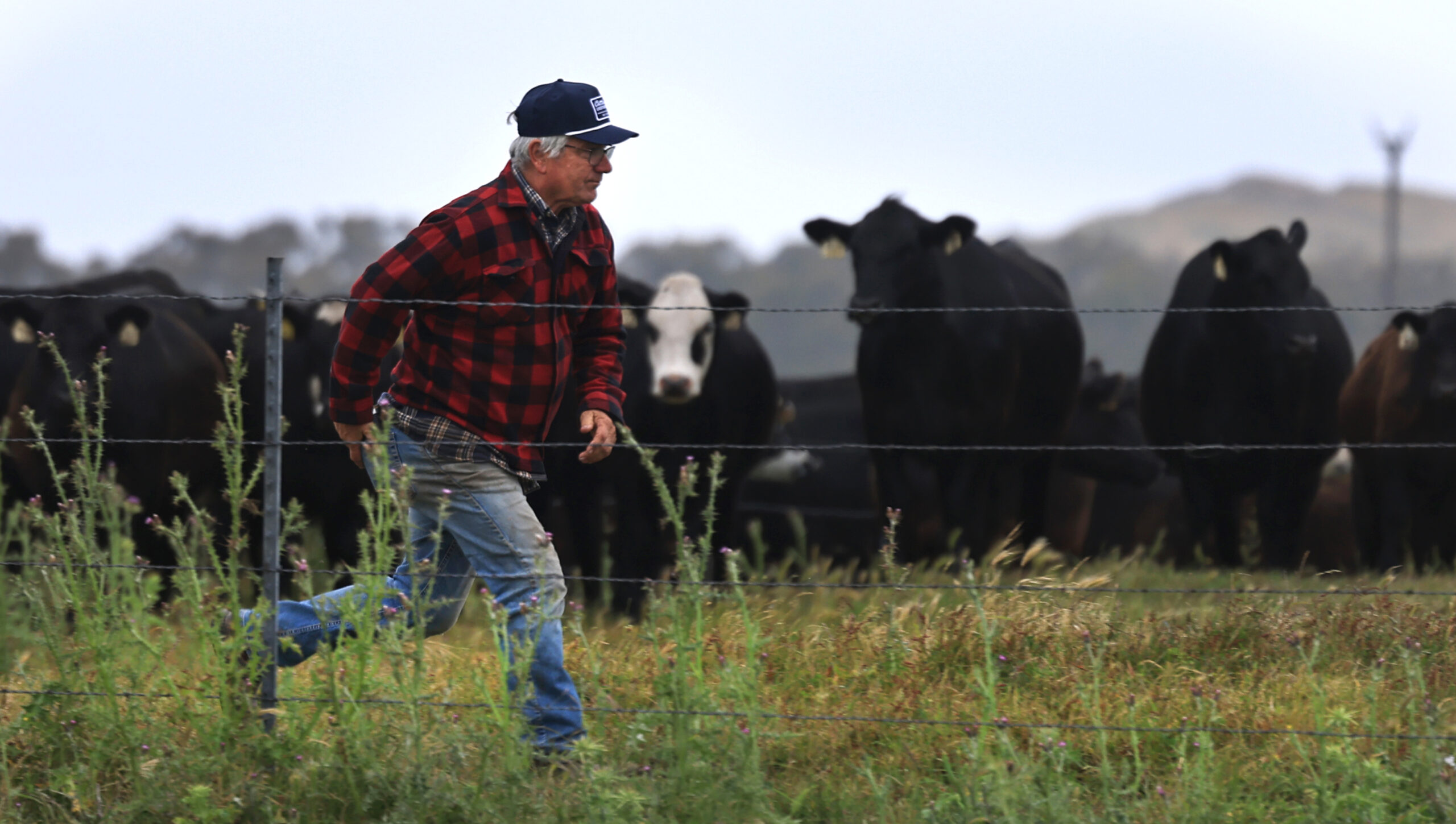
Lunny has promised to stay involved in the ongoing battle over ranching in the park and help other ranchers in need. Lately, there have been rumblings that bureaucrats in Washington might reverse the deal that ended ranching in the park. If that happened, would he be interested in coming back to Point Reyes?
“In a heartbeat,” he says. “We’d do it in a second.”
But he already spent the money.
“We signed a contract,” he says. “We committed never to come back.”
The post Point Reyes Family Says Goodbye to Cherished Ranch After Years of Legal Battles appeared first on Sonoma Magazine.
]]>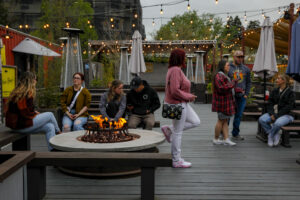
Summer is for beer gardens. Here are some local favorites if you’re craving an afternoon of brews with your crew.
The post The Best Beer Gardens in Sonoma County appeared first on Sonoma Magazine.
]]>
















Summer is for beer gardens. Fortunately, Sonoma County has them in abundance, with the Wine Country bonus of excellent beer and top-notch food. Here are some favorites if you’re craving an afternoon of brews with your crew.
Twin Oaks Roadhouse
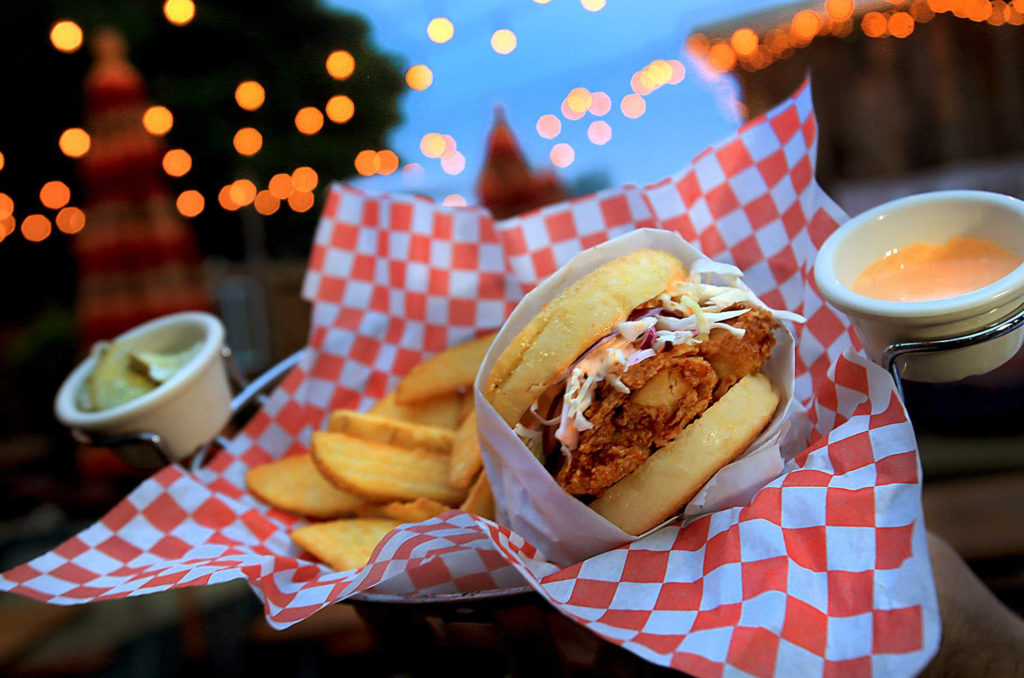
In continuous operation since 1926, this ramshackle-looking roadhouse and watering hole is one of Sonoma County’s best-kept secrets. Owned by HopMonk Tavern, well-known for its beer gardens in Sebastopol, Sonoma, and Novato, Twin Oaks has kept its historic charm while offering stellar fried chicken sandwiches and live entertainment for those who appreciate its charms. (The property is currently listed for sale.) 5745 Old Redwood Highway, Penngrove. 707-795-5118, hopmonk.com/twin-oaks
Lagunitas Taproom
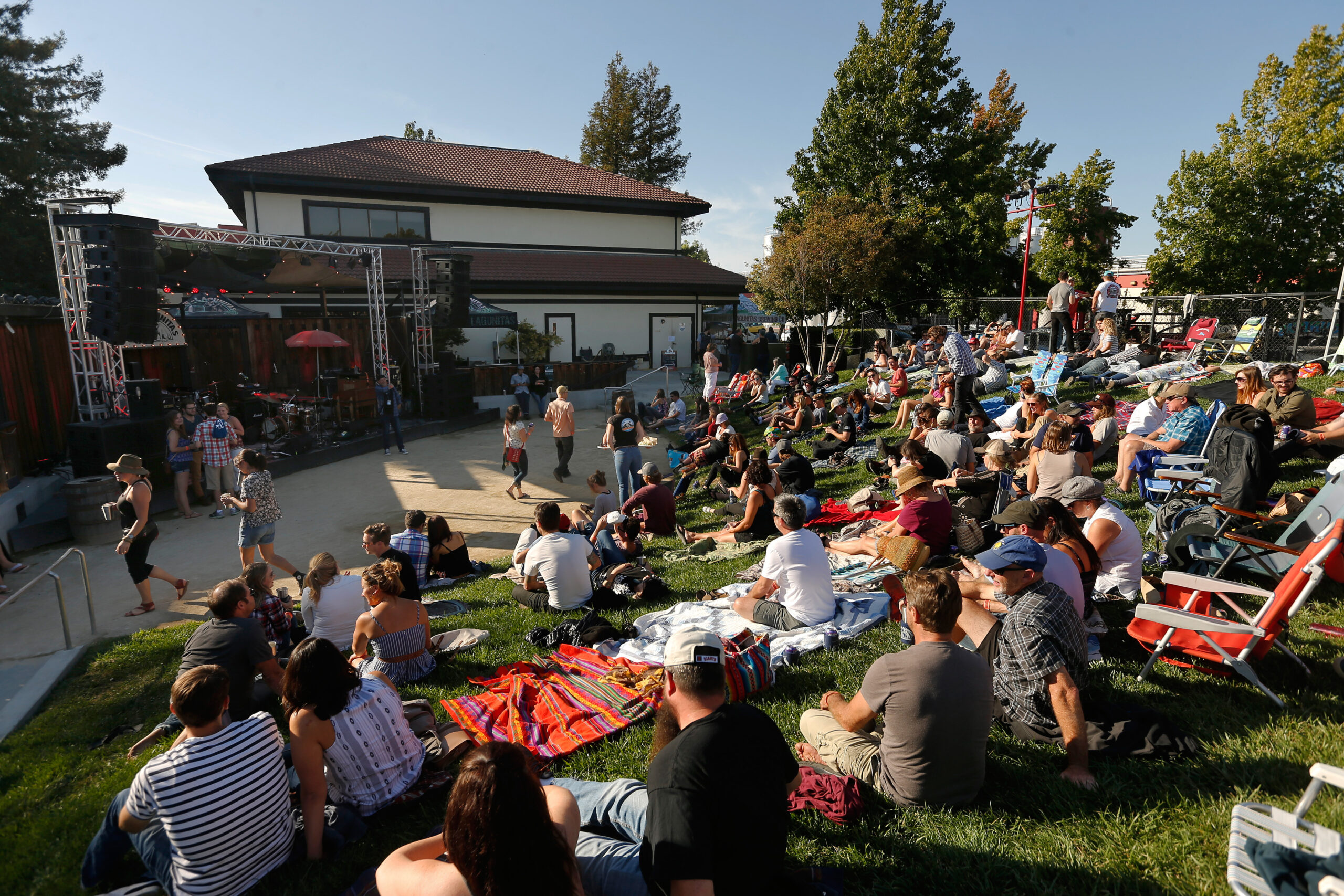
Sink into the trippy scene that is Lagunitas, through and through. The tap room and “beer sanctuary” is a casual spot hidden in the shadows of the brewery complex. There’s great pub grub, a swag-filled gift shop, a small music venue, and the hoppy IPAs that have made them famous. 1280 N. McDowell Blvd., Petaluma. 707-284-1020, lagunitas.com
Brewsters Beer Garden
The most beer-garden-y beer garden in Sonoma County. Big enough for an Oktoberfest crowd with loads of picnic tables, live music, plenty of beer (and cocktails), with kids and dogs welcome. Plus, solid eats. 229 Water St., Petaluma. 707-981-8330, brewstersbeergarden.com
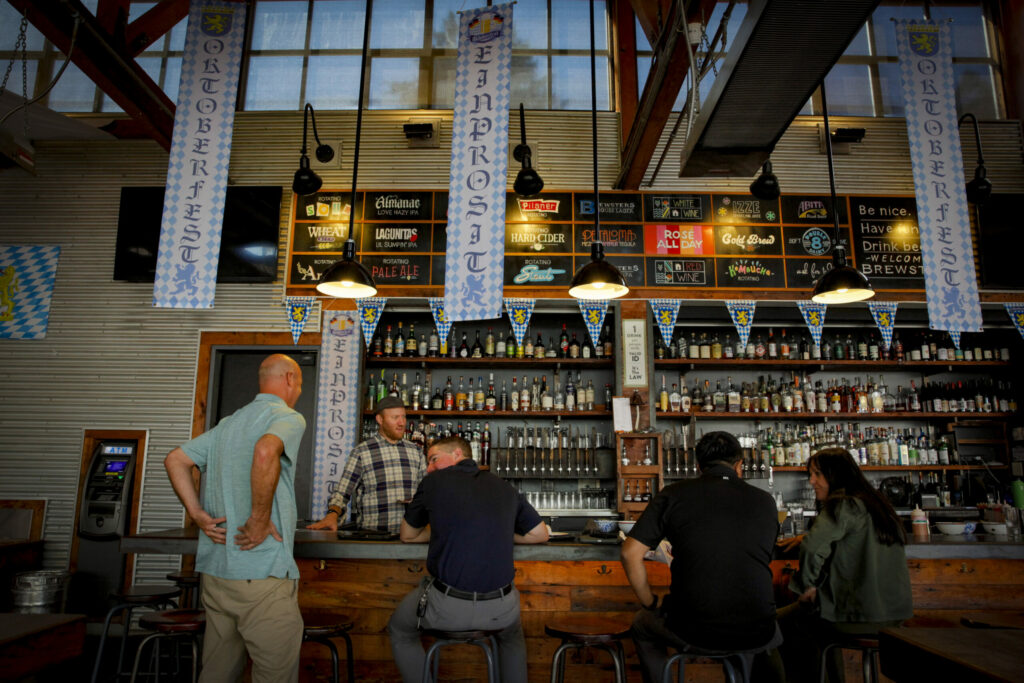
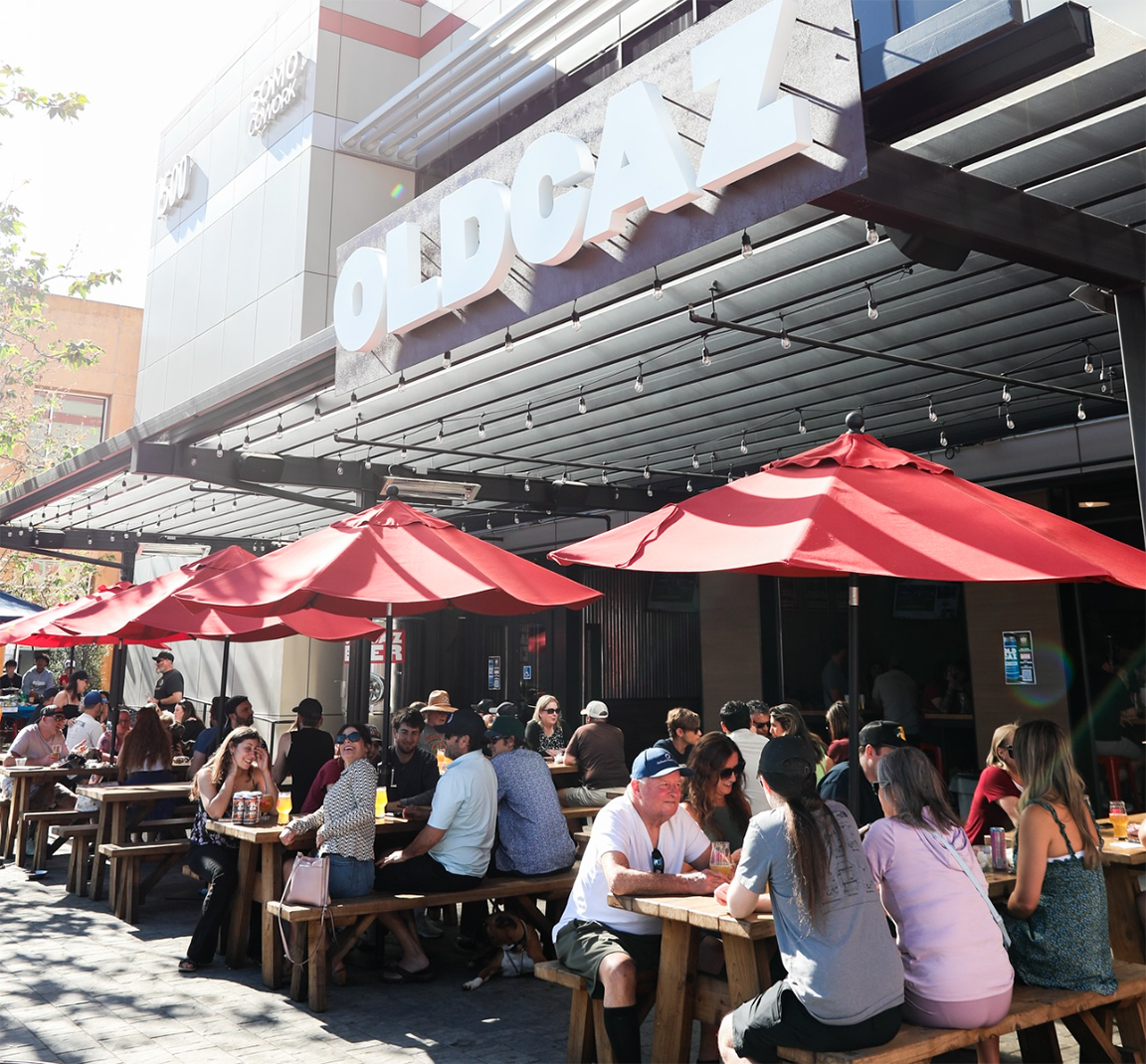
Old Caz
Most breweries are bare-bones places with a funky college-dorm aesthetic and sticky tables — and we like it that way! But Old Caz has upped its game with a swanky new spot with high ceilings, matching chairs, hand-built tables, and usable bathrooms. Wow! The lunchtime bar menu and top-notch food trucks are the cherry on top. Don’t worry, the butt-kicking IPAs keep it real. 1500 Valley House Drive, Suite 110, Rohnert Park. 707-665-6668, oldcaz.com
Russian River Brewing
If there’s a heaven for beer drinkers, it’s at the 85,000-square-foot Russian River brewery in Windsor. Book a guided tour and tasting, then head to the outdoor beer garden where you can choose from roughly 20 signature brews on tap and a full pub menu. The dog- and kid-friendly patio is a great spot to hang out and dream of next year’s release of Pliny the Younger. 700 Mitchell Lane, Windsor. 707-545-2337, russianriverbrewing.com
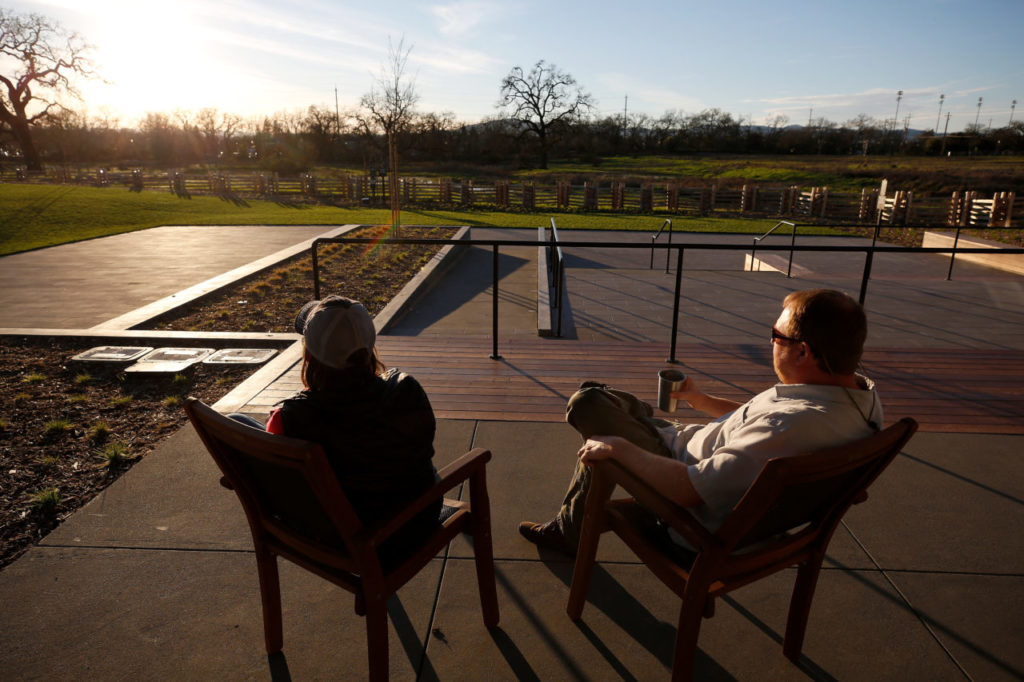
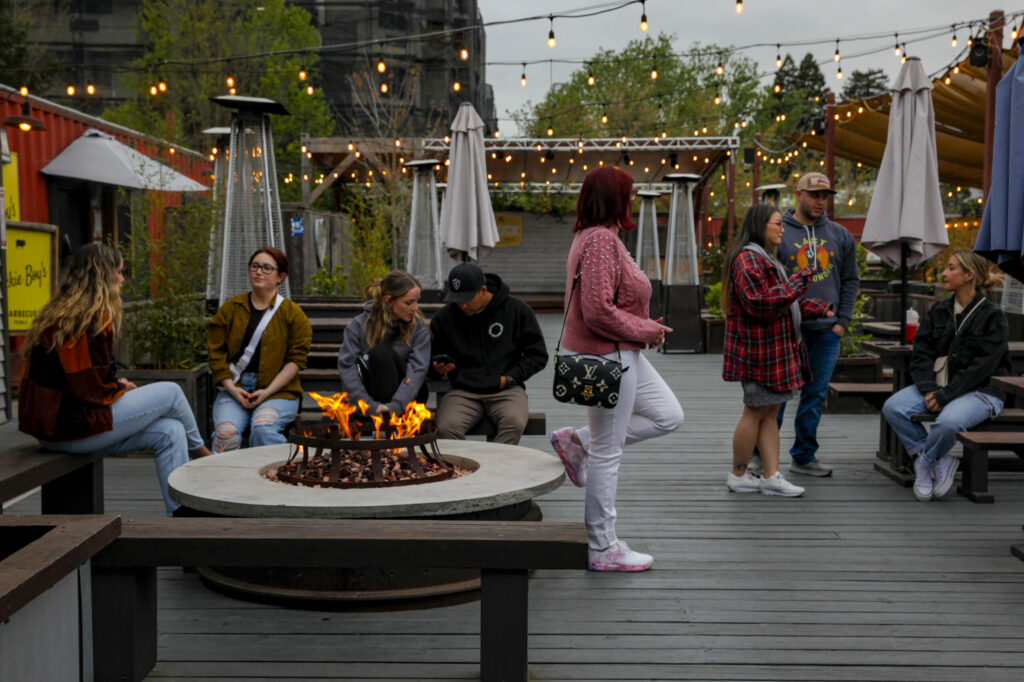
The Block
Hidden behind an auto parts store in an industrial part of Petaluma, The Block is a tiny-but-mighty beer garden with nearly 30 taps and a full cocktail menu. Tacos Don Pepe and Jackie Boy’s Barbecue are on a rotating lineup with Fire Slice pizza served six days a week. 20 Grey St., Petaluma. 707-775-6003, theblockpetaluma.com
Tisza Bistro
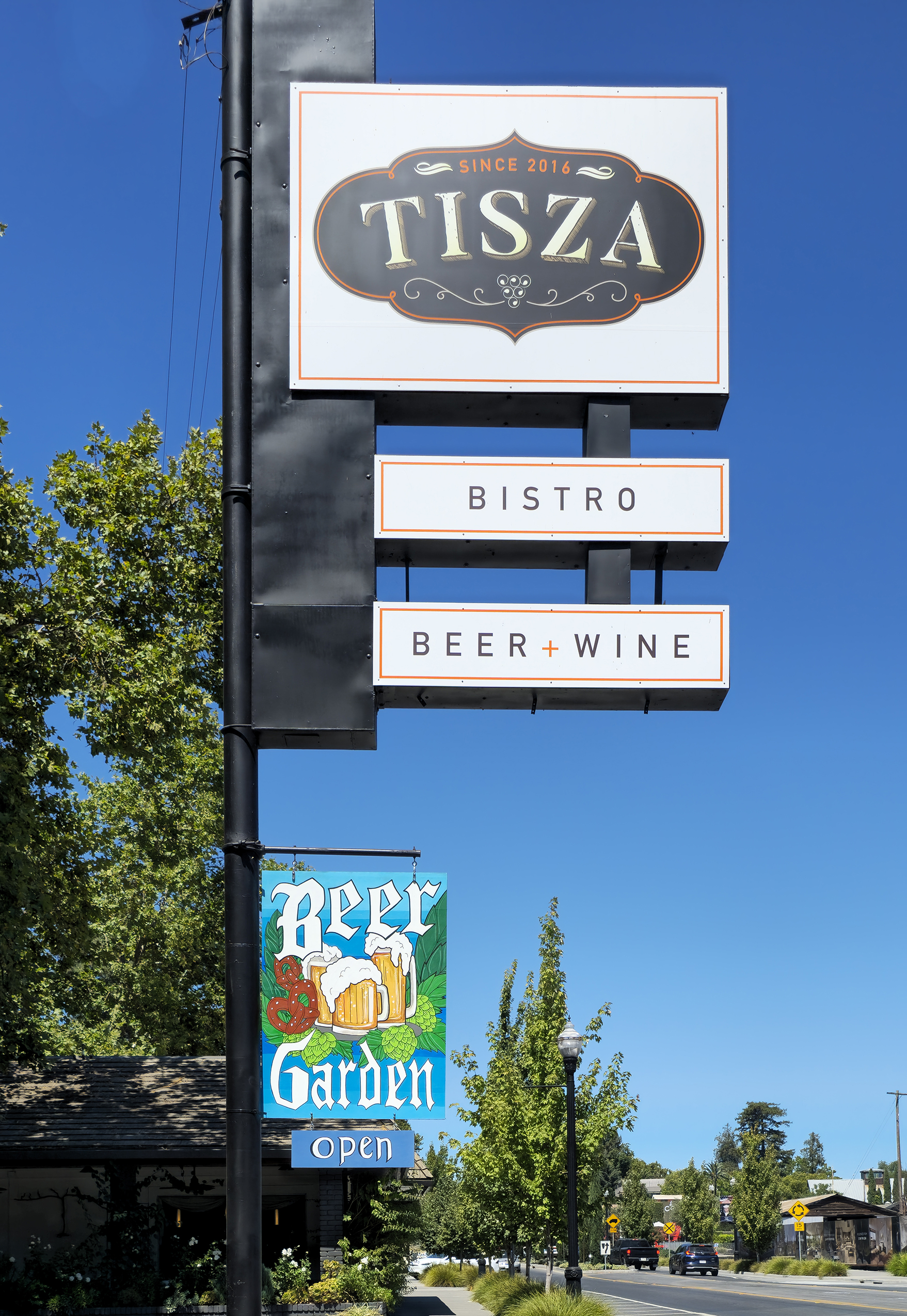
Though it’s just a handful of stout wooden tables and bistro seats beneath draping twinkle lights and Weihenstephan pennants (Germany’s oldest brewery), Munich is in the air at chef Krisztian Karkus’ German and Central European eatery. Grab a Bavarian pretzel, currywurst, or a Weiner schnitzel sandwich and choose from five German beers on tap, plus cans of Stiegl Radler (grapefruit juice and lager) and malty Korbinian. Prost! 165 Healdsburg Ave., Healdsburg. 707-291-5193, tiszabistro.com
The post The Best Beer Gardens in Sonoma County appeared first on Sonoma Magazine.
]]>
The cute-as-a-button cart from Bodega Bay bakery Nom Nom Cakes offers seaside treats for a sweet trip to the Sonoma Coast.
The post Nom Nom Cakes Sells Summer Sweets by the Sonoma Seashore appeared first on Sonoma Magazine.
]]>
















Early each Friday and Saturday morning in summer, Lana Mcintire rolls a cute-as-a-button, Barbie-pink cart in front of her Bodega Bay home and plants signs along Highway 1, pointing beachgoers and coastal cruisers to her summertime-only sweet stop. “I feel like people see pink and think dessert,” says Mcintire.
The mom of two launched her Nom Nom Cakes bakery cart last summer to supplement her year-round custom cake business. It was an instant success. It also happens to be Bodega Bay’s only bakery.
Laden with cookies, tarts, and Mcintire’s signature cake jars, the sweet car is just a short detour into a residential neighborhood a few minutes’ drive north of town. The clientele is a mix of neighbors, day-trippers and tourists staying in nearby vacation rentals, who pull up, browse the shelves, and peek into the cart’s two refrigerated coolers in search of the perfect dessert.
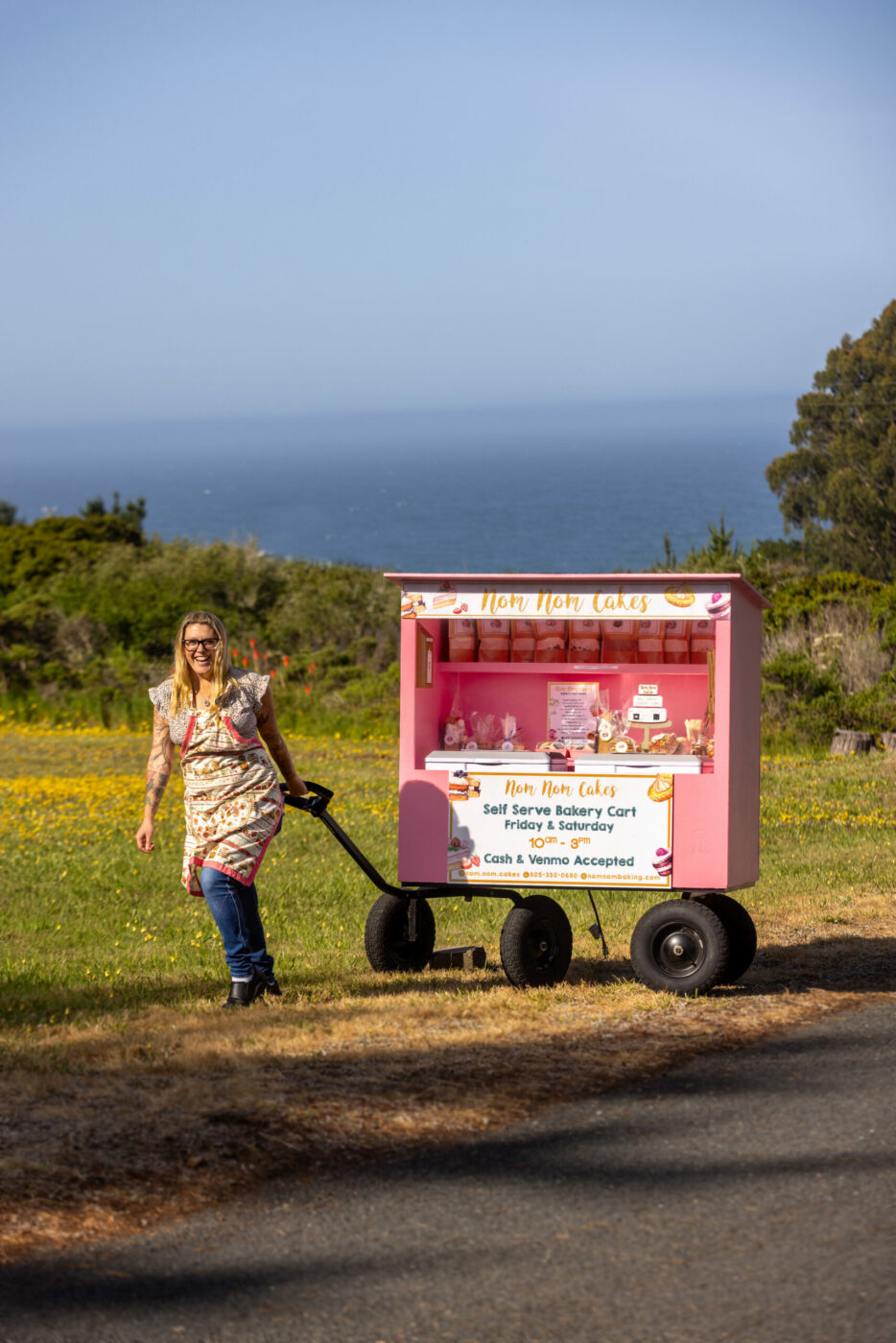
The Nom Nom cart operates on a self-serve, honor-based payment system, accepting cash or Venmo. Since cell service in the area can be spotty, Mcintire posts her Wi-Fi password to help customers pay online. She is usually nearby in her home — happily baking, and ready to bring in sweet reinforcements when supplies run low. Mcintire notes that the cart often sells out on busy holiday weekends.
Mcintire, a Los Angeles culinary school graduate with experience in high-end restaurants in L.A. and Las Vegas, moved to Sonoma County in 2014. Here she draws inspiration from seasonal fruits and rotates her cart menu each weekend. Her summer cake jars feature flavors like brown sugar peach, vanilla blackberry, and strawberry crunch. “I make my own strawberry crunch with Golden Oreos and freeze-dried strawberries,” she says. “It’s like that strawberry ice cream bar on a stick.”
That dessert is one of her most popular along with peanut butter cheesecake and a treat called the millionaire bar — a buttery shortbread crust layered with rich salted caramel, chocolate ganache, and a light sprinkling of sea salt. “It’s almost Twix on steroids,” says Mcintire.
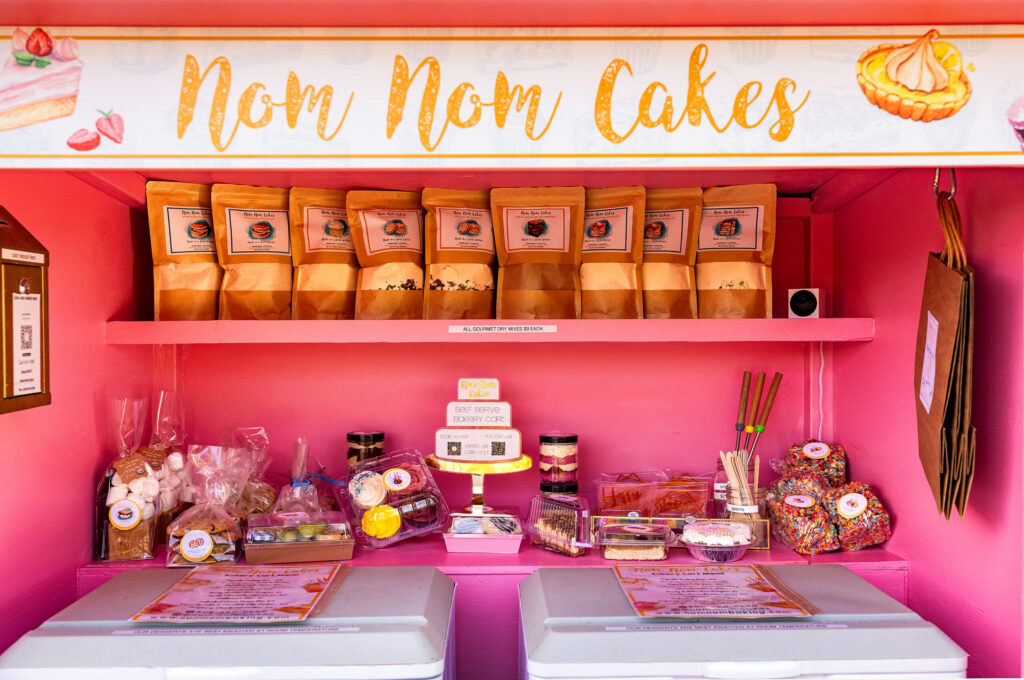
This summer, Mcintire has added charcuterie boxes as a savory option, perfect for a beach picnic. Packages of homemade pancake mix are another new addition, tailored for travelers staying in the many Airbnbs in her neighborhood. Those temporary guests inspire some of the little extras she includes on the cart, like gift bags, candles and cake toppers — an instant party for those celebrating a special occasion. There are also s’mores kits and reusable marshmallow roasting sticks. As of June, the cart carries copies of her new, self-published cookbook, “Sweet Creations: Crafting Your Dream Desserts.”
Mcintire has become a bit of a celebrity in her seaside town. On a trip to the post office just before opening for the season, three different people recognized her as “the dessert cart lady” and shared stories about their favorite treats. “To have three people at the same time recognize me, I was like, wow,” she says. “I’m thankful that people support my small business and the good things we’re trying to do.”
Nom Nom Cakes, 390 Calle Del Sol, Bodega Bay, 805-350-0680, nomnombaking.com
The post Nom Nom Cakes Sells Summer Sweets by the Sonoma Seashore appeared first on Sonoma Magazine.
]]>
When they're not making "wine with amazing grapes" at Sonoma's Honrama Cellars, the Puentes family rides with their award-winning charrería team.
The post Charrería Is a Family Tradition for Winemakers Behind Sonoma’s Honrama Cellars appeared first on Sonoma Magazine.
]]>
















Charrería is the national sport of Mexico — and a family tradition for Sonoma winemakers Juan and Miriam Puentes. Loosely translated as “horsemanship,” charrería predates the American rodeo and traces its roots to the 1600s, when Spanish conquistadors introduced horses, cattle, and ranching culture to Mexico.
“These were tricks and other things that they would use to handle cattle back in the haciendas,” Juan says of skills like roping, horse handling, and riding bareback on a wild mare. “They would say, ‘Oh, I bet you my guys are better than your guys.’ Friendly fun turned into a sport.”
The Puenteses’ award-winning charrería team, Charros de Honrama, includes not only Juan, 45, but also his son Andres, 16, and his daughter Paula, 12. Together they’ve won numerous competitions at the state and national levels, as well as in Mexico.
The Puentes family also runs Honrama Cellars in Sonoma, their wine labels adorned with charrería iconography. “In our culture, wine is not a common beverage,” Juan says. “It’s a very unique brand.” The winery will host a Dia del Charro celebration on Sept. 13. honramacellars.com

A busy schedule
We practice Tuesdays and Thursdays and ride every weekend. We’ll ride everything from little rodeos to massive events, and we take every competition just as seriously. We travel with two horse trailers, about 16 horses. This year we’ll go to Colorado, Texas, Arizona, L.A., San Diego, Las Vegas. We got invited to a competition in Washington. Every weekend we’re booked.
Dressing the part
I’m very proud when I dress the part. All of our gear has to be traditionally made. We can’t wear an American buckle, we can’t wear an American belt. I can’t wear Wranglers underneath my chaps. It has to be a charro pant. We have people make all of our clothes, the chaps, the saddles. And then the coolest part is the guy who makes the hats.
Los caballos
Part of the success our team has had is because of our four-legged friends. You can have the best charros, but if you don’t have them on good horses, they’re not gonna do anything. We have a very special horse named Chucho. He’s famous in the charrería world. It’s just one of those horses that is born one in a million. He’s a Seabiscuit, a Secretariat.
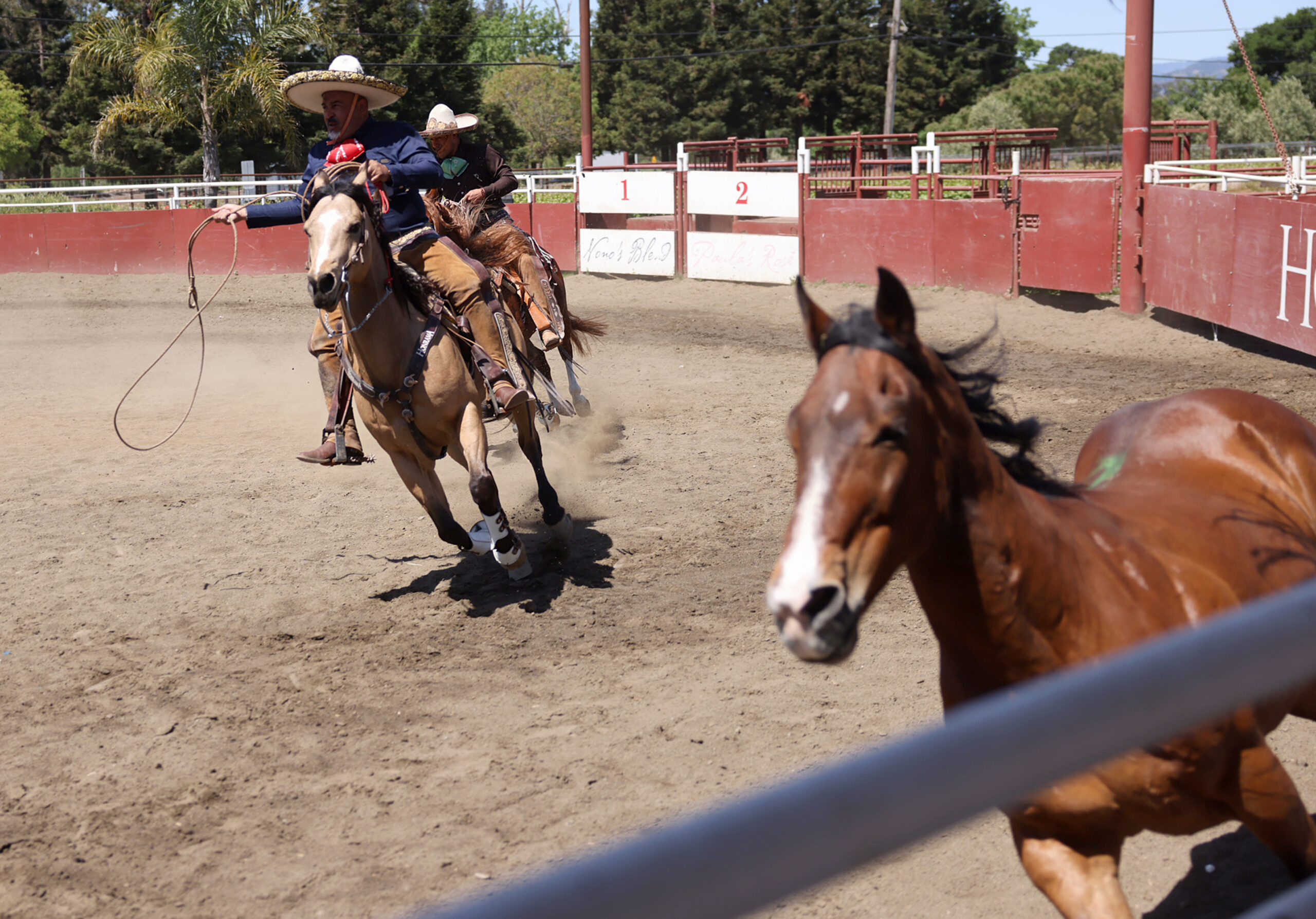
A successful pairing
If it wasn’t for charrería, we wouldn’t be as successful as we are in winemaking. Charrería is our hobby, but after riding that weekend, we come back on Monday in a good mood. My wife runs the tasting room, and I’m in charge of winemaking and production. They’re very similar passions. Being able to make wine with amazing grapes, it’s fun. We love what we do.
The post Charrería Is a Family Tradition for Winemakers Behind Sonoma’s Honrama Cellars appeared first on Sonoma Magazine.
]]>
The hero nurse turned Sonoma County homeless services provider has faced FBI scrutiny and civil lawsuits after her company crumbled. Where did it all go wrong?
The post The Rise and Fall of DEMA Founder Michelle Patino appeared first on Sonoma Magazine.
]]>
















On sweltering days, of which there are plenty in these parts, the interior of Mongos Ice House in Montgomery, Texas, stays dark and cool behind big, reflective glass windows. Video gambling machines line the walls, cigarette smoke hovers in the air, and the crowd at this strip-mall dive 50 miles north of Houston leans local but friendly, in a Texas way.
Mounted on a post by the bar is a bell with a handwritten sign: “Ring the bell, buy a round for the house!”
An occasional ebullient video jackpot winner might give the bell’s rope a tug, patrons say, but it didn’t ring often.
That is, until the Californian with the big bank account came to town.
Michelle Patino, founder of a Sonoma County-based company called DEMA Consulting and Management, purchased a condo next to Lake Conroe, one of Montgomery’s chief attractions, in November 2022. She soon developed a reputation as a big spender at the local watering hole.
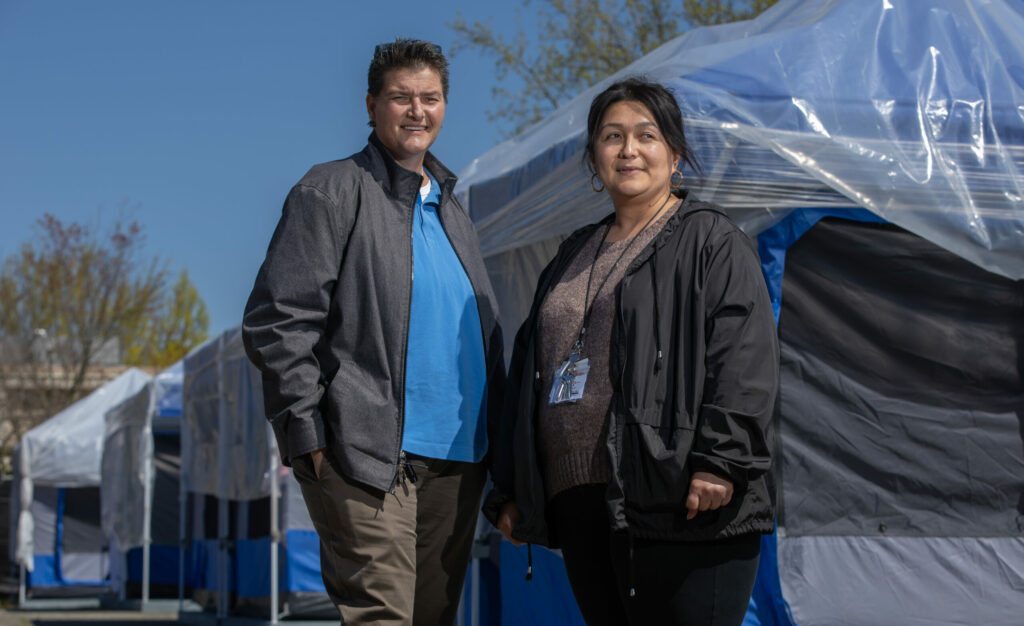
It became one of the better bets at Mongos that if Patino was there, “that bell was going to ring once or twice a night,” one patron said last fall. He, like two other regulars who shared their recollections for this story, asked to remain anonymous. They didn’t want to be labeled gossips in a small town, and they worried about retribution or harassment from Patino.
“It’s her way of showing off ‘I got money,’ and people congregated to her,” the regular said. “She’s throwing it away.”
Another person who saw Patino’s bar tabs said that each ring of the bell would cost hundreds of dollars, sometimes more than a thousand, depending on the crowd. Patino tipped well, regularly adding $300 to $400 to the already hefty tabs. That person said Patino would buy rounds for the bar as often as once a week over the course of a year and a half. And she paid for other fun too, renting party buses for birthdays or to take a group to the world-famous rodeo in Houston.
It wasn’t all frivolity. At a charity auction to help a local woman with her medical bills, Patino ran up the bids, donating $2,000 for a cowboy hat and as much as $5,000 for two handguns.
Her largesse, according to the three people, also insulated Patino.
When two bartenders sought to ban Patino for aggressive behavior in August 2024, the owner overruled them, inviting her back despite a police restraining order, a copy of which was reviewed for this story.
Ultimately, the two bartenders, one a Mongos fixture for years, quit rather than deal with Patino, according to the three bar patrons.
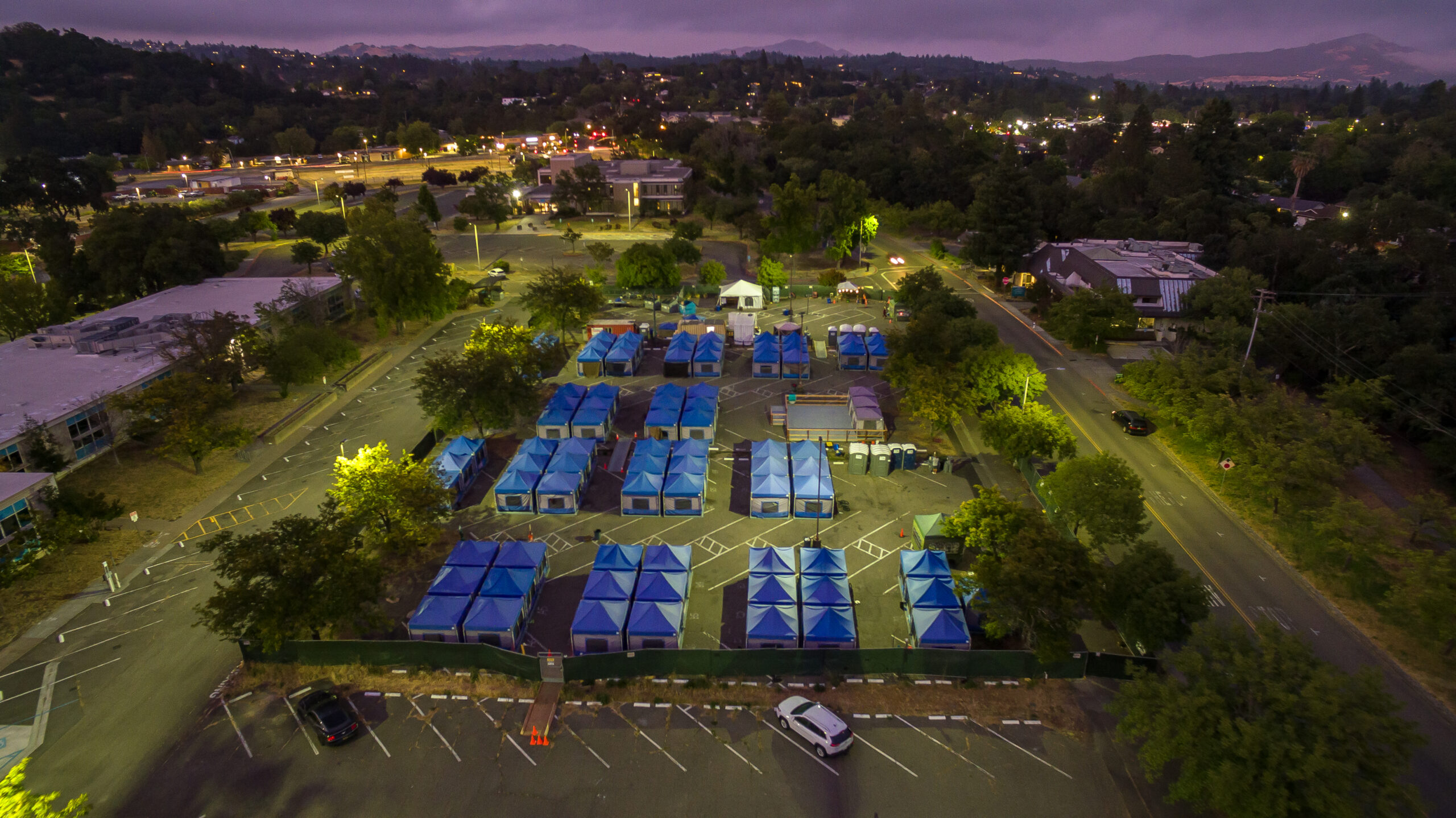
Before all that, Patino was leading a startup homeless services company with a lucrative no-bid contract in Sonoma County and had expanded its operations into Harris County, Texas, after Sonoma County’s former health director had taken over the top health services job there.
The former emergency room nurse started her company in the first months of the Covid-19 pandemic, hoping to aid local governments responding to disasters. The name DEMA reflects its mission: Disaster Emergency Medical Assistance. Two years ago this summer, The Press Democrat — now part of Media News Group, also the parent company of Sonoma magazine — published the first installment of a wide-ranging investigation into Patino and her company. Initially discounted by some county officials, that investigation triggered a probe that led to the discovery that $11 million or more in public money wasn’t properly accounted for.
Additionally, The Press Democrat identified two cases in which Patino’s relationships with county officials pushed ethical boundaries.
In one, Patino briefly hired the daughter of Tina Rivera, the then-Sonoma County Health Services director who oversaw DEMA’s contract. Patino said she paid Rivera’s daughter only about $600 during that short-lived work stint. But Rivera did not inform county officials of her daughter’s employment by DEMA, county administrator Christina Rivera, who is not related to Tina Rivera, told The Press Democrat.
In the other, Patino extended a consulting offer to the husband of Barbie Robinson, the former Sonoma County Health director who helped propel DEMA’s rise before moving to Texas and overseeing DEMA’s government work there. That instance, documented as part of a criminal case against Robinson in Texas that has since been dropped, came on top of previous reports that she had offered a consulting contract to Robinson.
In a September 2021 email to Robinson, obtained by the Houston Chronicle, Patino expressed frustration that she had been blocked from a contract to provide meals at Sonoma County homeless services sites DEMA had been managing. County officials told her DEMA’s proposal represented a conflict of interest. “I can guarantee we came in cheaper with more benefits with our bid,” she wrote to Robinson.
In other emails, Patino suggested hiring Robinson as a consultant for help with “legal issues we may have in California.” The offer came as DEMA was competing for a major contract to run a crisis response program in Harris County. Robinson sat on the selection committee, and that contract later became a focus of the now-ended criminal investigation in Texas.
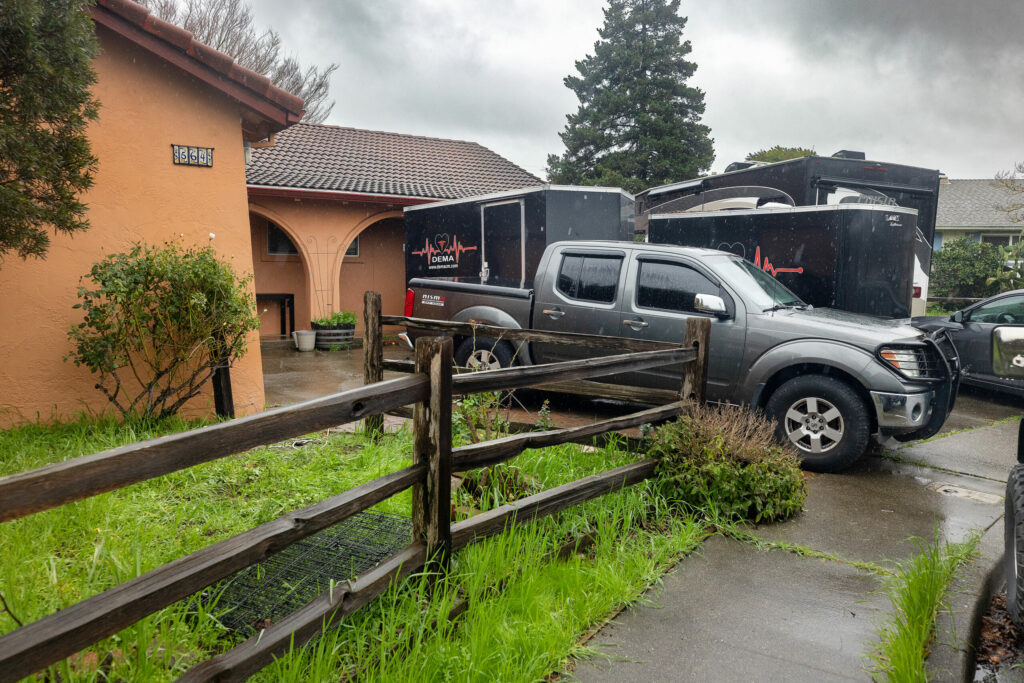
In California, Patino has faced scrutiny from law enforcement, along with civil lawsuits filed by former employees.
FBI agents in February descended on her Santa Rosa home with a search warrant — part of a federal investigation about which little is known. No criminal charges related to DEMA have been filed.
Separately, Patino faces misdemeanor charges in Sonoma County after repeatedly violating a restraining order obtained by her estranged domestic partner and former business partner, Mica Pangborn.
In an interview with The Press Democrat late last year, Patino sought to blame the company’s accounting shortcomings on her ex, saying it was Pangborn that handled the company’s billing. But Pangborn has alleged in court it was Patino who controlled the company’s money. And in an acrimonious divorce proceeding, Pangborn has repeatedly sought spousal support from Patino.
Patino concedes she might have made mistakes as a novice government contractor. But she has repeatedly denied any wrongdoing regarding DEMA’s work. “I didn’t know all the rules, I didn’t know everything, but I also know that there’s ethical things and there’s morals and you don’t cross the line. I didn’t cross those lines,” she said late last year. “I’m a person of honesty and integrity. I don’t lie, cheat, or steal.”
In emails and remarks to the Sonoma County Board of Supervisors, Patino held herself up as a hero of the pandemic.
“This company [DEMA] fell in my lap, literally, and I was completely unprepared and had no idea what it all entailed except I knew how to save lives,” she wrote to county auditor Erick Roeser and other officials. “Did you actually think I was occupied with anything else? No. Too many people were dying (in the pandemic). I did not have a business plan and sought the county’s direction and advice on all matters.”
Indeed, Patino didn’t operate in a vacuum. Sonoma County officials pushed $27 million to Patino’s company, well above other homeless service provider contracts, with county auditor Roeser confirming flawed oversight over those funds.
Sonoma County officials have yet to publicly account for what went wrong. Nor have the county supervisors announced any internal inquiries beyond the limited financial investigation that uncovered $11 million in billing unsupported by records.
Tina Rivera, who directed the Sonoma County health department for much of DEMA’s tenure after inheriting oversight of the company from Barbie Robinson, resigned in August, saying she wanted to spend more time with her family.
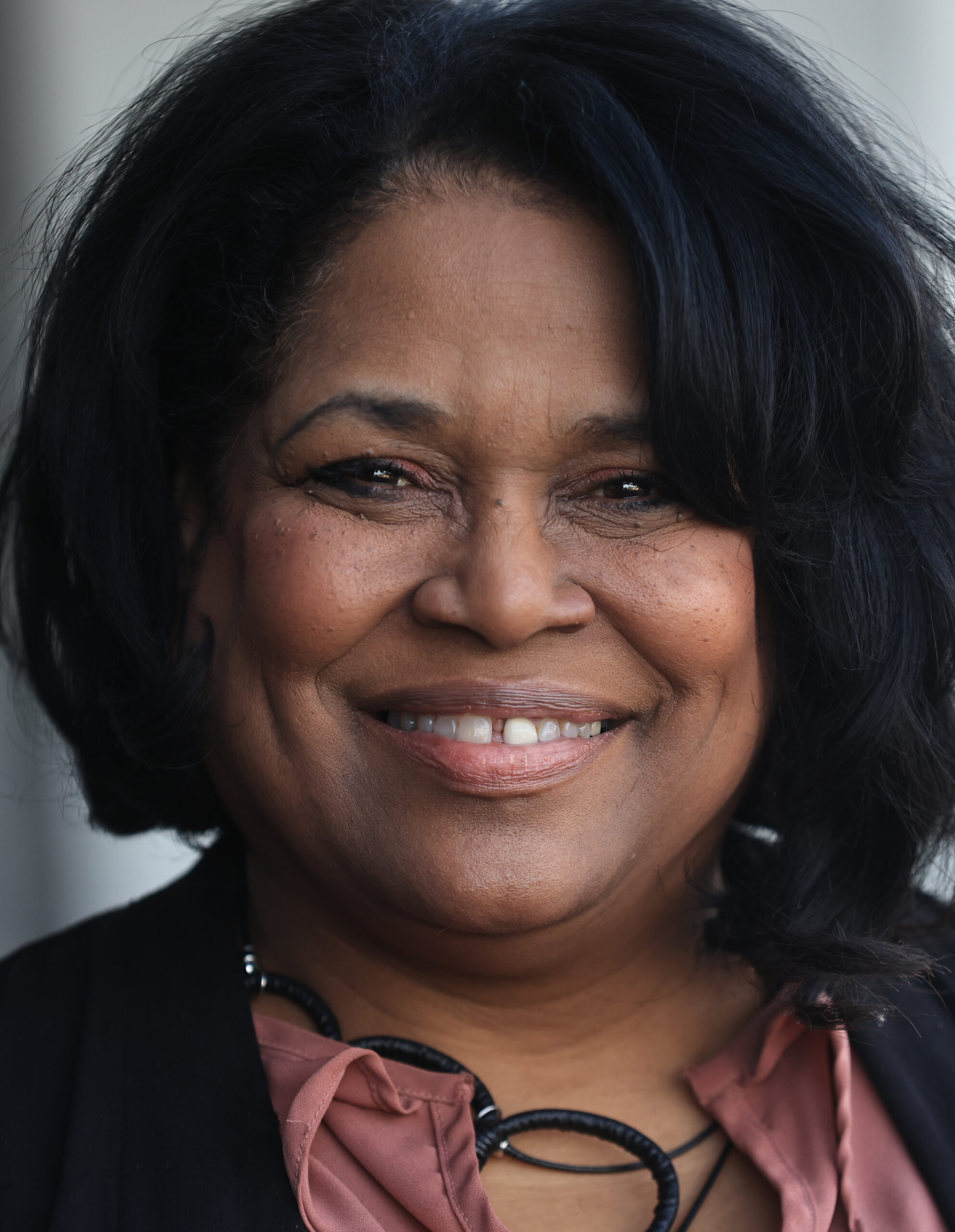
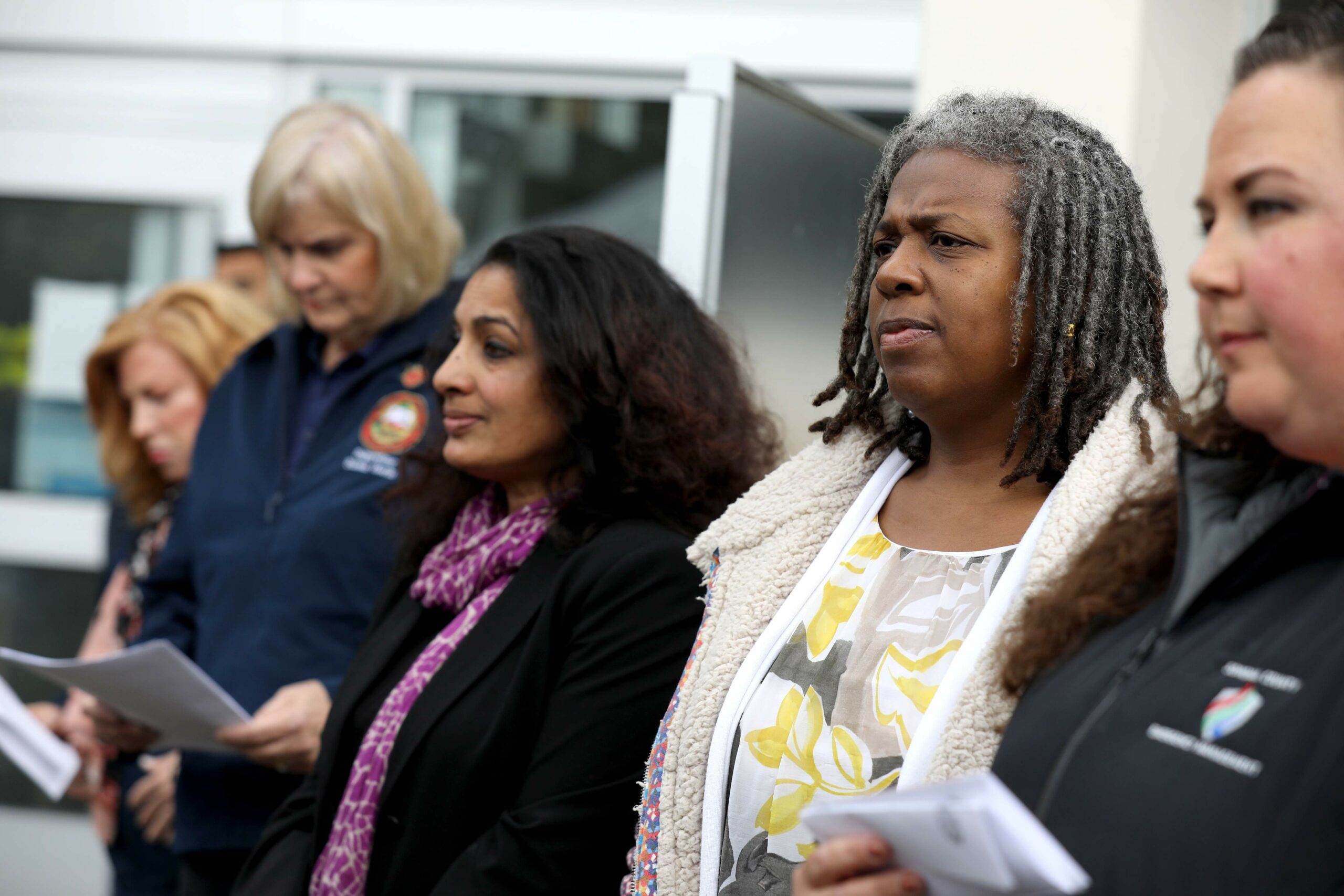
Robinson was fired by Harris County a week after Rivera’s last day in California. Her dismissal came amid an investigation by former Harris County top prosecutor Kim Ogg, whose office filed its criminal case against Robinson during Ogg’s last months in office. Ogg, who lost her reelection bid in November, had often been at odds with Democratic Harris County commissioners, and her charges against Robinson added to other corruption cases she’d brought against government officials tied to Harris County Democrats.
Ogg’s successor, Sean Teare, dropped all the charges against Robinson in May, saying there wasn’t sufficient evidence to support the allegations of bid-rigging and corruption — including a lack of evidence that Robinson or her husband accepted any money from Patino.
In a statement announcing his decision, Teare suggested the case had been politically motivated. In response, Ogg suggested Teare dropped the cases to protect the county commissioners.
“Ms. Robinson is thankful that the truth has come to light and that this politically driven case is finally behind her,” Robinson’s attorney told Houston Public Media.
While the Texas case is over, the activity in February at Patino’s Santa Rosa house indicates continued interest from law enforcement here. FBI officials have declined to comment on the scope or thrust of their investigation in Northern California, which began in partnership with Santa Rosa police.
The vast majority of the money Sonoma County paid DEMA was to be reimbursed by the federal government through pandemic response funds. Under President Joe Biden’s administration, the U.S. Department of Justice criminally charged more than 3,500 people and seized more than $1.4 billion in assets as it chased down fraud across the spectrum of unprecedented government spending during the pandemic. It’s unclear what impact the Trump administration, which has brought significant changes to both the FBI and Federal Emergency Management Agency — the body county officials hoped would ultimately reimburse Sonoma County taxpayers for DEMA’s bills — could have on the situation.
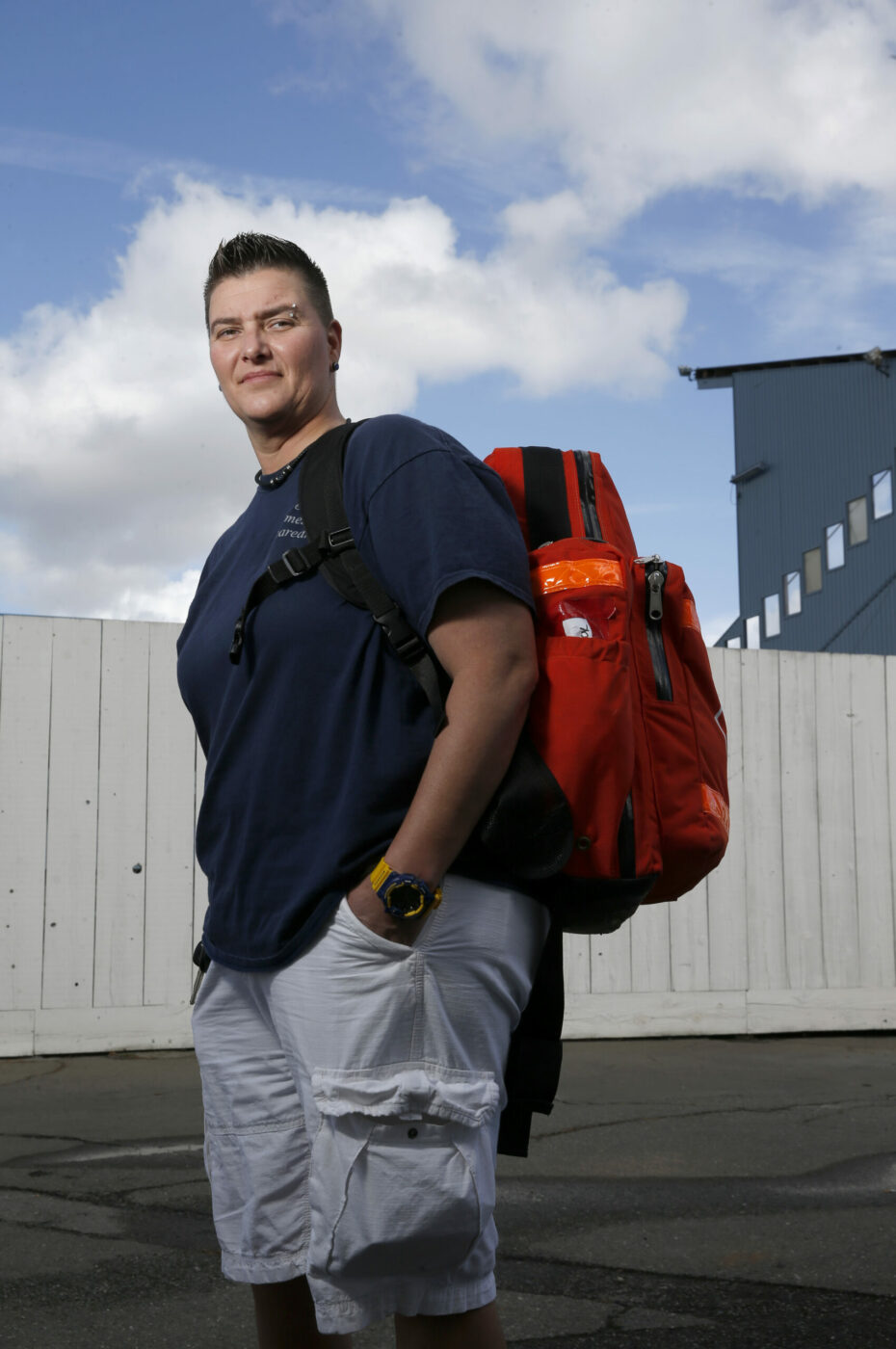
Like so much of Sonoma County’s recent history, DEMA’s roots trace back to the fateful and deadly North Bay firestorms in 2017.
Back then, before the investigations and resignations, and before the bar tabs and luxury cars and new homes, Patino was an emergency room nurse and a hero.
She had only recently moved to the county from San Jose and was working in Kaiser Permanente’s Santa Rosa emergency room. Patino wasn’t on shift at the hospital during its dramatic evacuation in the early morning hours as the Tubbs Fire bore down on the facility. But waking up and learning the hospital was closed, she looked for a way to chip in. She and Pangborn were renting a home next to the Petaluma Fairgrounds at the time. The couple had just moved in together, Patino recounted in an August 2023 Press Democrat interview, and had duplicates of household items like pillows and blankets. They gathered bedding and brought it to an evacuation center coming together at the fairgrounds.
When they arrived, Patino found refugees who had fled their homes — many were elderly and had left without critical medications. They needed help. “I started going around talking to every single individual, getting all their medical history,” she recalled. She returned every day for weeks, bringing in other nurses and paramedics, and organized them into a health clinic with 30 beds. She worked 12- to 16-hour days, for days on end, she said.
“I’m one of those people that I just can go,” she said. “You get in those situations … I’m an adrenaline junkie, that’s why I work in the ER and those high [intensity] areas, and I just go, go, go, go.”
Two years later, she did the same thing during the Kincade Fire, she said. This time she responded to a call from a doctor who, according to Patino, told her, “Get over here … they don’t know what’s going on. We need to get this place up and going or people are going to die.”
Those experiences sparked the idea for DEMA.
In spring 2020, as public health officials scrambled to give people without stable housing infected with Covid-19 a place to ride out the virus, Petaluma Health Center enlisted Patino, this time at a county-run shelter at Sonoma State University.
Patino and Pangborn had filed paperwork to start DEMA as a nonprofit but didn’t complete the process. Soon after Patino started at the SSU site, Petaluma Health Center’s leadership decided it could not continue to run it.
Rivera and Robinson each point to the other as the first to bring DEMA on. Whatever the path, Patino stepped into the void. Rushing to get contracted and get to work, according to Patino, they registered DEMA as a sole proprietorship in her name, records show. The business designation gave Patino direct control over the company and, unlike with a nonprofit, limited public insight into revenue and expenses.
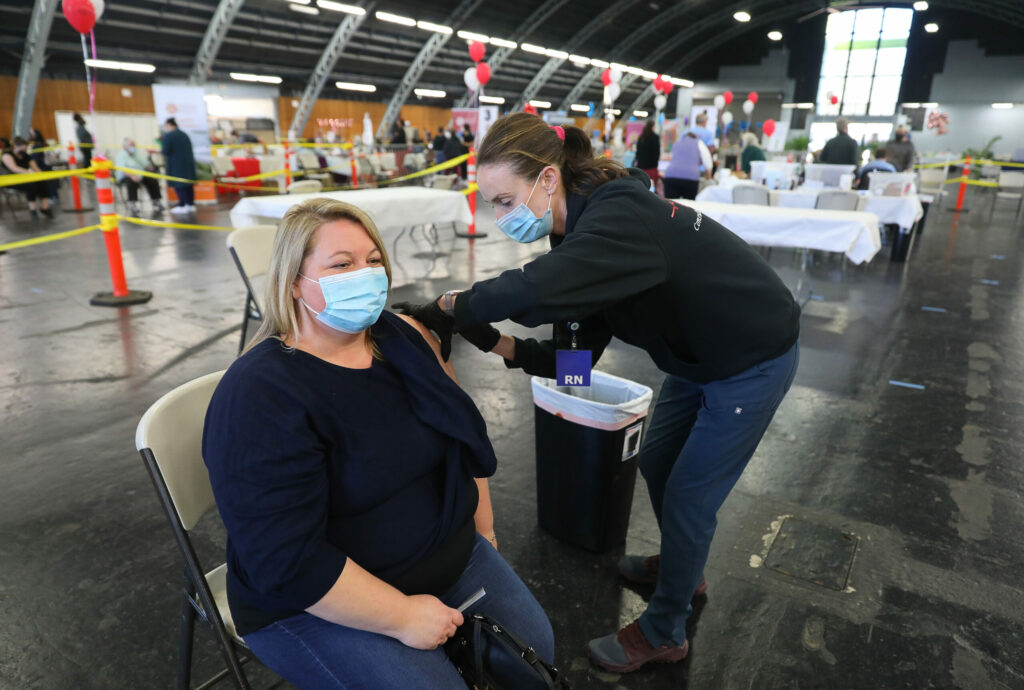
Soon, health officials were giving DEMA more and more control over the SSU site and putting other homeless care sites under their supervision.
“I’m one of those people, I don’t say no,” Patino said.
DEMA boomed. By December 2021, Patino had signed a contract with Rivera for up to $21 million, and DEMA would continue to receive expansions on those contracts for the next three years. Because of emergency orders issued during the pandemic, those contracts were issued and extended without competitive bidding, even after the company came under scrutiny.
Internal emails from the first months of the company obtained by The Press Democrat show Patino riding the rush of the company’s explosive growth.
“I am absolutely the luckiest girl in the world,” Patino wrote, closing out an email to her staff in October 2020. “I have an amazing wife, family, career, and now I have an amazing team that impresses and amazes me in every way every day … We are a unique set of professionals, with hearts of gold, and an abundance of varying skill sets. That makes you, that makes Team DEMA, one hell of a force to be reckoned with.”
Patino paid her employees well, according to nearly two dozen people who have spoken to The Press Democrat over the past two years. The high salaries made up for a work environment that was often chaotic, as Patino’s leadership alternated between charming and erratic, according to people who interacted closely with her.
Two former employees, one in California and one in Texas, sued the company over a workplace culture they described as discriminatory or toxic, and nearly all the former employees who spoke to The Press Democrat said they feared retaliation from Patino both during and after their time with the company. Pangborn, who was chief financial officer for DEMA, would ultimately accuse Patino of sustained domestic abuse over years of their relationship. In March 2024, Patino fired her partner days before Pangborn obtained a temporary restraining order from a judge, which has since been made permanent.
Patino spent the first year of the company’s life “saying she never took a paycheck for herself,” said a longtime DEMA employee who asked not to be named because he, like others, fears retaliation or harassment from Patino. But as time went on, he said, she began “boast(ing) about how much money she was making.”
Around the time of the fires, public records show both Patino and Pangborn faced financial difficulties. At least two banks were pursuing judgments against Patino in 2018, according to court records, and the IRS had tax liens on her and Pangborn that stretched into the tens of thousands of dollars.
DEMA quickly reversed their fortunes. According to public records, Patino and Pangborn bought a $628,000 house in Santa Rosa in June 2021, and purchased the Texas condo the following fall. In both cases, the public record holds no indication of a mortgage, implying a cash purchase. There are other signs of significant wealth from their company. DEMA purchased a warehouse in downtown Houston later in 2022, appraised at just under $300,000. Again, there is no public record of a mortgage, and the deed implies a cash purchase.
The couple’s divorce records indicate they also owned a 2023 Toyota 4Runner, a second, older model 4Runner, and a 2018 BMW. Then there’s the $50,000 camper purchased in June 2023 and the 2024 BMW coupe, valued by the California DMV at around $77,000, that Patino registered in April of that year. That last purchase sparked outrage among some of her Sonoma County employees, because it came as the company was collapsing and they had gone weeks without pay.
As the pandemic wore on, Patino sought to move beyond health care, as she put it, and began seeking other contracts involved in the shelter effort. Records and interviews show she tried to shift contracts for both food service and security from other vendors to DEMA.

Despite the county auditor’s findings on DEMA’s flawed accounting practices early last year, Sonoma County supervisors never ordered a deeper investigation.
Supervisor David Rabbitt, the board’s chairman at that time, instead publicly called on the federal government to figure out whether any taxpayer dollars had been wasted in Sonoma County.
Now, DEMA appears defunct.
In April 2024, Sonoma County supervisors voted to cease doing business with DEMA. The company laid off its staff the following month, abandoning its two remaining homeless services sites.
About eight months later, in December, Harris County commissioners voted to sever their ties to the company, ending its last remaining contract in January.
Patino remains in Texas, according to people familiar with her whereabouts. In a March filing, Patino’s Sonoma County lawyer asked to be removed as her counsel in a suit brought by a former DEMA paramedic against Patino and other DEMA officials over allegations of harassment and wrongful termination. The attorney told the judge Patino “has withdrawn to Texas” and stopped communicating with him and his firm. The judge granted his request. The case is currently set for trial in August.
Among Patino’s many troubles in the wake of DEMA is one that hits hard.
The California Board of Registered Nursing in October ordered her to undergo an examination of her mental and physical health after finding there was “reasonable cause to believe that (Patino) was unable to practice nursing with reasonable skill and safety to patients.”
That finding came in response to a complaint that is not public record, according to a board spokesperson.
But the regulator’s website indicates Patino never replied. In January, the board revoked the license she had held since 2001.
The license that enabled her to save lives.
The license that made her a hero.
Read The Press Democrat’s full investigation of the Sonoma County DEMA scandal here.
The post The Rise and Fall of DEMA Founder Michelle Patino appeared first on Sonoma Magazine.
]]>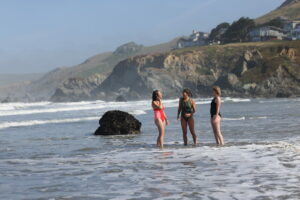
Recognizing a need for high-performance swimwear that's also stylish, a former world champion swimmer in Petaluma launched a brand that stands up to the task.
The post See Her Swim: Former Pro Swimmer From Petaluma Designs Swimwear With Style and Substance appeared first on Sonoma Magazine.
]]>
















To paraphrase the classic ’80s ad that’s become a meme, Morgan Filler is not only the founder of See Her Swim — she’s also a client. The Petaluma mother of two girls and former professional swimmer launched the brand in the fall of 2020 after recognizing a need for high-performance swimwear that was also stylish.
“When I had my own kids, I saw that if I wanted them to play in the water and swim, I had to make it fun,” says Filler, who grew up open-water swimming with her parents in Chesapeake Bay. “I wanted to incorporate my athleticism into family time. I would play in the pool, in the river, in the ocean with them. They grabbed my straps, turned me into animals they rode underwater. They played tag with me and held and stretched my suit so I couldn’t escape.”
During the pandemic, as she taught her younger daughter to swim at Morton’s Warm Springs in Glen Ellen and a community pool in Petaluma, an idea she developed years earlier while teaching swim lessons began to crystallize. Traditional Speedos were too basic for pool parties or beach barbecues, and so-called “fashion” suits weren’t sturdy enough to stand up to active swimming, let alone the demands of amphibious parenting.

“What if I made a hybrid suit?” Filler asked herself. “So, I took a fashion style and made it with performance construction.” She enrolled in a fashion studies class at Santa Rosa Junior College and learned to sew a prototype, took an online website-design and marketing course, and eventually partnered with a manufacturer in Los Angeles. Before long, she was selling suits at pop-up events across Sonoma County. Today See Her Swim offers six one-piece styles, including plus sizes, all made of a recycled polyamide material that’s 50 times stronger than traditional Lycra or spandex. Filler is looking for investors and interns to help the business grow.
In a way, swimming has become a career again for the open-water expert who in her 20s traveled the world on the pro circuit, competing in races in several countries including Argentina, Brazil, Italy, Macedonia, Slovenia, and Egypt. “I’m back at it as a profession, so it’s full circle, and it feels really good,” she says.
These days Filler is as likely to be seen surfing the waves at Dillon, Doran, or Salmon Creek beaches as she is diving under them. During summer, she loves taking the family to Healdsburg’s Veterans Memorial Beach on the Russian River. “One kid will be on a paddle board, my partner and my other kid will be on a kayak.” She swims alongside — sporting one of her own suits, naturally.
See Her Swim swimsuits are available at SeeHerSwim.com, SwimOutlet.com, Sports Basement, and a number of local surf and boutique shops.
The post See Her Swim: Former Pro Swimmer From Petaluma Designs Swimwear With Style and Substance appeared first on Sonoma Magazine.
]]>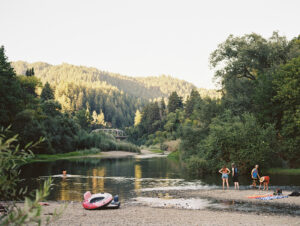
At the heart of the Russian River, Guerneville — and surrounding towns — is in its glow-up era: new resorts, new restaurants, new retailers. Same familiar, bohemian soul.
The post A New Generation Is Bringing Its Own Funky Vibe to the Russian River appeared first on Sonoma Magazine.
]]>
















Endlessly flowing, the river has often been celebrated as a symbol of rebirth. From rural church baptisms and water-powered sawmills to songs (“Proud Mary”) and novels (“A River Runs Through It”), the river resonates as a source of renewal.
That same spirit of resurgence is alive and well this summer along the Russian River, with the launch of The River Electric glamping resort and swim club, and the much-anticipated debut of Guerneville Social Club later this fall. It’s the latest splash in a “new river scene” that started more than a decade ago when mortgage broker turned restaurateur and hotelier Crista Luedtke took a chance on Boon hotel + spa and Boon eat + drink, kickstarting an influx of local investment and new businesses that have swelled in recent years.
“I think people are really starting to catch on to how magical it is here, not only in the summer, but really year-round,” says Luedtke, who knows that no matter how much Guerneville and surrounding river towns might evolve, there will always be a “gritty bohemian funkiness” beneath the surface.

It’s the reason Bonzo, a new Guerneville gift shop, sells sweatshirts with the slogan “Keeping it weird since 1850” beneath a silkscreened winged frog and a cluster of mushrooms with eyes. And it’s the reason corporate chain restaurants rarely venture into town — and those that do, like Subway, don’t survive. “We’re not ever gonna be a Healdsburg or an Aspen or a Sonoma town square,” Luedtke says. “We’re still funky, and we will always be funky. I mean, look at River Electric. As hip and groovy as it is, it’s still got its cool funkiness. They’re taking over what was once J’s Amusement Park.”
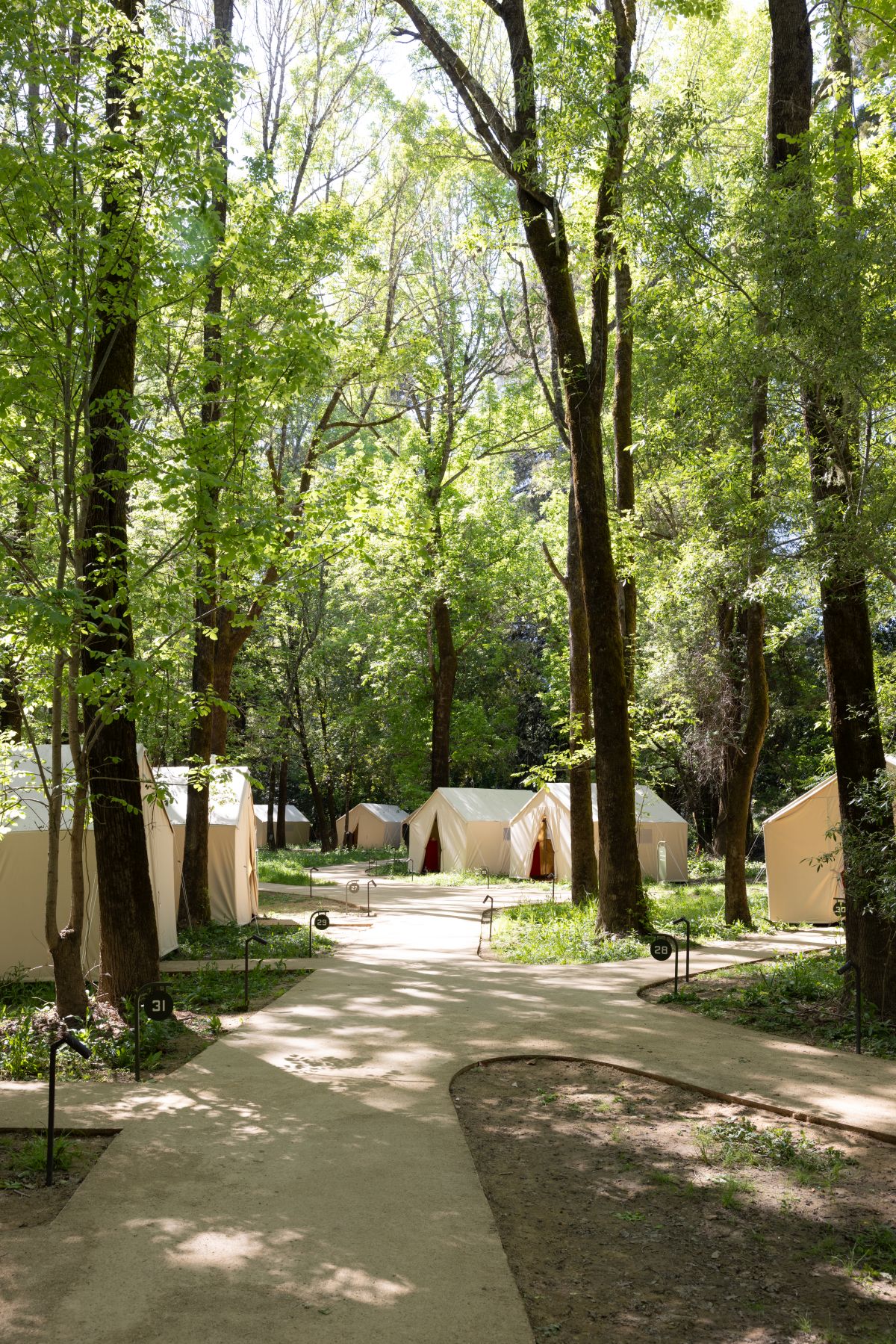
On a tour of The River Electric a week before it opened, co-owner Kelsey Sheofsky showed off the resort’s new tent city beneath the redwoods (imagine an Ewok forest village with chic canvas tents) and made note of a tombstone — a vestige of Dr. Evil’s Haunted House that continued to scare locals every Halloween long after the amusement park went dark — that still needed to be removed.
Where once there was a Mad Mouse roller coaster and corner-hugging go-karts, a 12-acre resort has come to life as The River Electric, centered around a 60-foot circular pool accessible to overnight guests or with a $32 day pass. A sleek outdoor bar and restaurant serves upgraded smashburgers, turkey clubs, and Straus soft serve (and look for The River Electric canned wine collab with Ruth Lewandowski Wines). A block from the river, it’s a watering hole by day, with chaise lounge and cabana upgrades, and a glamping resort by night, all drenched in an Oakland hipster vibe — evidenced by the Instagram-bait payphone booth, restored and reprogrammed so that guests who pick up the receiver hear poetry recited in a voice reminiscent of Boris Karloff.
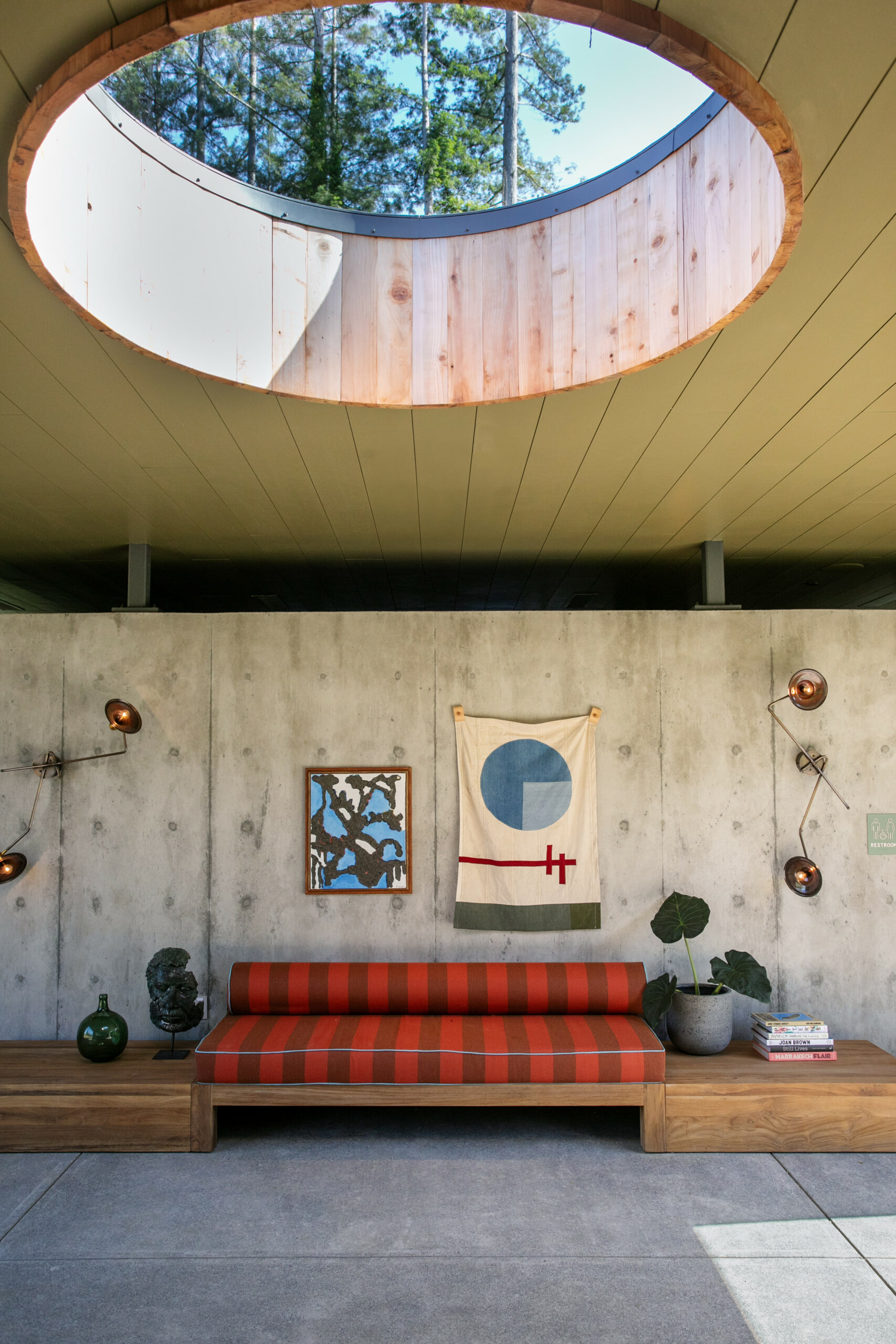

Sheofsky and her husband, Mike, made their name erecting luxury tent hotels in the middle of nowhere all over the country with their glamping production company, Shelter Co. Since founding it in 2011, they’ve staged elaborate off-the-grid weddings, hosted eclipse events for Virgin Galactic, and provided VIP tent experiences at BottleRock and Outside Lands music festivals. With The River Electric, they’re putting down roots and finding a permanent home for the brand. After buying the property in 2018, they’ve weathered seven years of permitting and floods to make it happen. “We filled the pool yesterday and I said, ‘This pool is half river water and half my tears,'” says Kelsey Sheofsky, who is very grateful for the river resurgence, giving respect and credit to Luedtke as the de facto “town mayor” of this unincorporated river community.
Just as there is a seasonal flow to the Russian River, a rolling way of life that runs between the highs of winter rains, when currents move fast, and the lows of lazy summer trickles, when paddlers have to portage kayaks to the next deep spot — there is also a generational flow through the decades.
In the 1850s, it was a logger’s paradise, better known as Stumptown. In the 1930s through the 1950s, it was a popular postcard summer escape for fogged-in San Francisco families. Big bands leaders Duke Ellington and Tommy Dorsey played the circuit from Forestville to Rio Nido to Guerneville and beyond. In the ’60s, hippies came to town, with the Grateful Dead playing the Dance Hall in Rio Nido. Then in the late ’70s and early ’80s, it became an LGBTQ+ haven, with gay entrepreneurs opening Fife’s Resort, Rainbow Cattle Company, and R3 Resort, eventually paving the way for Pride parades, Lazy Bear Week, and Women’s Weekend.
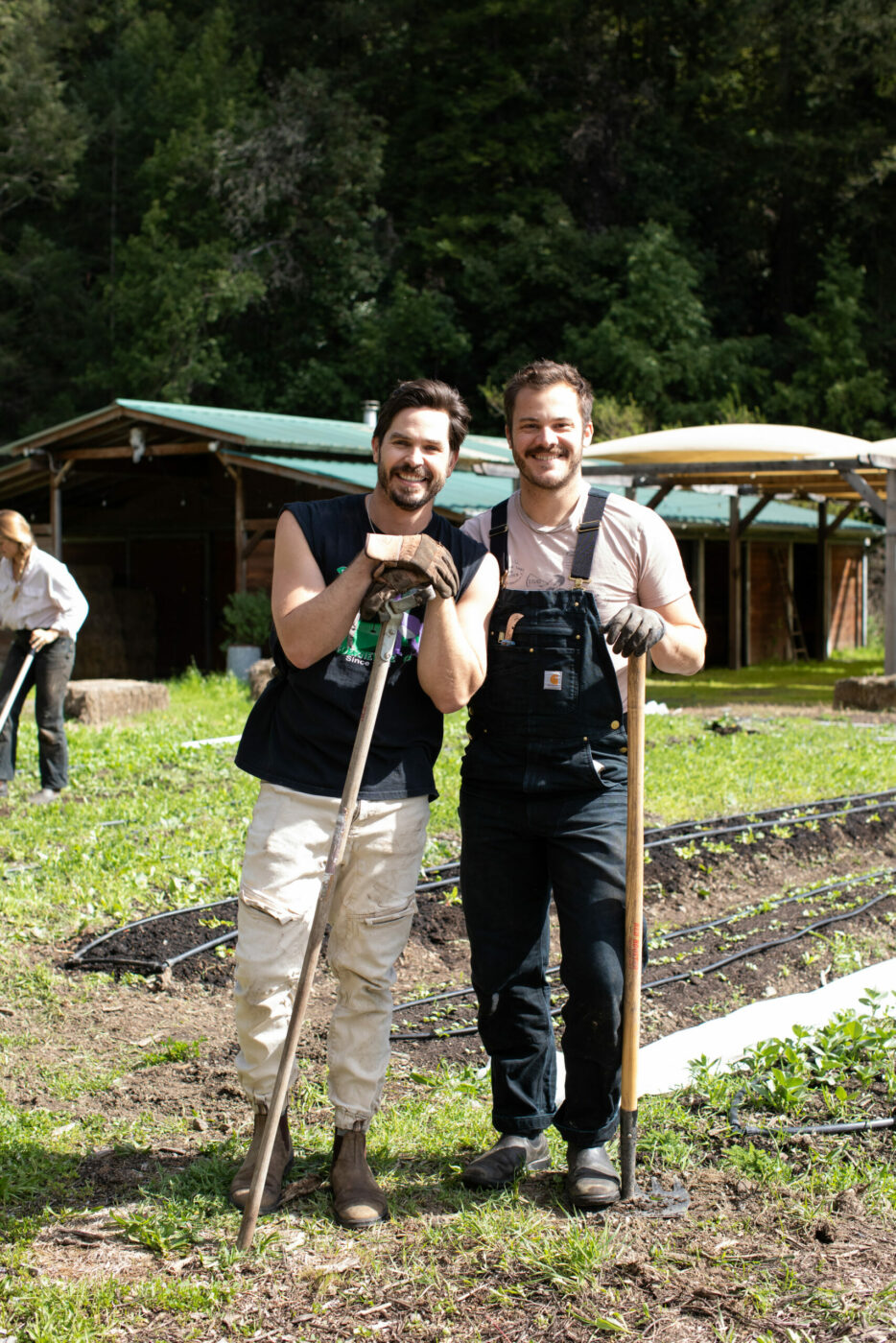
“I think this latest wave is not necessarily a reinvention, as much as it is just like the next generation,” says Nick Schwanz, the president of the Russian River Chamber of Commerce and co-owner of Solar Punk Farms. “A lot of young people are coming up to Guerneville for the same reason that people have always come up to Guerneville — because it’s absolutely gorgeous.”
If Forestville is the gateway from the east and, winding along River Road, Monte Rio and Duncans Mills are the trailing lower-river towns that give way to the coast, then it makes sense that Guerneville is the epicenter, where much of the new scene is taking hold. When historians look back one day at the urban flight and migratory effects of Covid on small towns across America, this former logging town will be the perfect case study.
The Sheofskys had already planned their escape from San Francisco to Sebastopol when the pandemic hit in 2020, just two days after their kids started at new schools. Among that same wave of transplants is Michael Rex, a former ESL teacher in San Francisco who moved to Guerneville during the pandemic.

Lured by a “For Rent” sign in the window, he opened Russian River Books & Letters in an alcove beside Coffee Bazaar café. He has filled the charming book nook with a wide range of literature and sprinkled in vintage typewriters that customers can use to type poems or letters. An acoustic guitar sits in the corner, waiting for anyone who wants to strum it. Along with author readings, the bookstore hosts live musical performances, and there’s a Hanukkah concert every year.
Since opening in 2021, Rex has learned a lot about locals by the books they order. “It’s very eclectic. You have fly fishermen and hunters, and then you have drag queens and bikers and bicyclists,” he says. “Somebody said that Guerneville is the queerest rural town in America, and it’s probably true.”
There’s a special section in the bookstore curated by Solar Punk Farms, whose owners, Schwanz and his husband Spencer Scott, also repaired to the river from San Francisco during the pandemic. Converting a former horse property on Armstrong Woods Road into a “queer-run regenerative land project,” they’re harvesting their first crops this year, supplying local restaurants in town. But they’ve created more than a farm. Having recently hired an events manager, they’re planning concerts, farm tours, volunteer weekends, and an “upcycled fashion festival.”
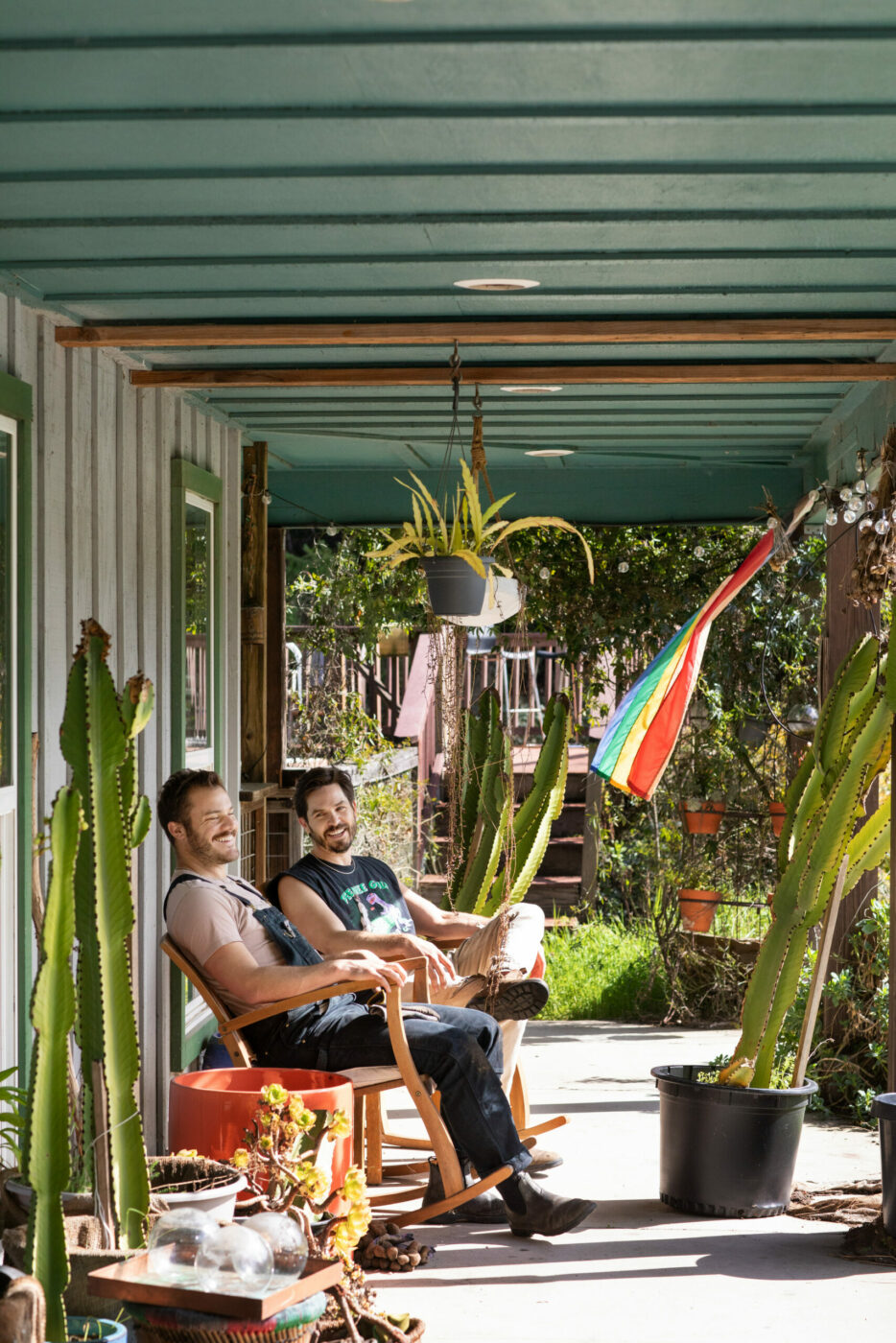
Across the street from the bookstore, Hair and Heavy Metal Salon boasts the largest concentration of ’80s hair band posters (Dio, Motley Crue, Whitesnake) along the river. In 2023, owner Donnelle Malnik moved to Guerneville, calling it “the freakiest spot I could find catapulting out of San Francisco.” Around the corner on Main Street, El Barrio mezcal lounge is always hopping on summer nights. It features a three-page cocktail list and a closet-sized kitchen where they make their own tortillas. Like other big-city expats, owner Jimmy Kansau blew into town during the pandemic with his husband.
“In the summer, everybody’s in a good mood,” Kansau says. “Everybody wants to have a party. So it’s a constant influx of people in and out. Some people come here with their bathing suits and their hats, and other people come dressed up, because they just feel like dressing up. It’s a juxtaposition of amazing things, for sure.”

Four years ago, the Venezuela native bought El Barrio from Luedtke. This fall, he’s planning to open Guerneville Social Club near R3 Hotel at Mill and Fourth streets in the former Timberline Restaurant. His vision is a market hall concept with downstairs storefronts that might include a bakery, coffee shop, and taproom, with a beer garden out back. The upstairs event hall will be the main attraction, he says, the scene of “ridiculous weekend brunches” in the restaurant, along with cooking classes and wellness activities. As a social club there will be a yearly membership of around $200 a year.
With so much investment coming from newcomers, it’s not surprising to hear the word “gentrification” pop up in local conversation. It’s one of the reasons The River Electric is hosting “Local Tuesdays” with $5 entrance fee and lower-priced menu options “so you can really come in and have lunch and swim for under 20 bucks,” says Kelsey Sheofsky.
When Saucy Mama’s Jook Joint owner Yvette Bidegain says, “This isn’t the same Guerneville that was here when I grew up. This is a totally different town,” she means it in a good way. Bidegain grew up in the Hacienda community east of town, near Forestville. Her father ran the Richardson’s Ribs booth at the Sonoma County Fair, serving gumbo and ribs from recipes he learned growing up in Louisiana. It proved so popular they eventually opened three restaurants. Bidegain used vacation time from her job at CalTrans to help out with the business.
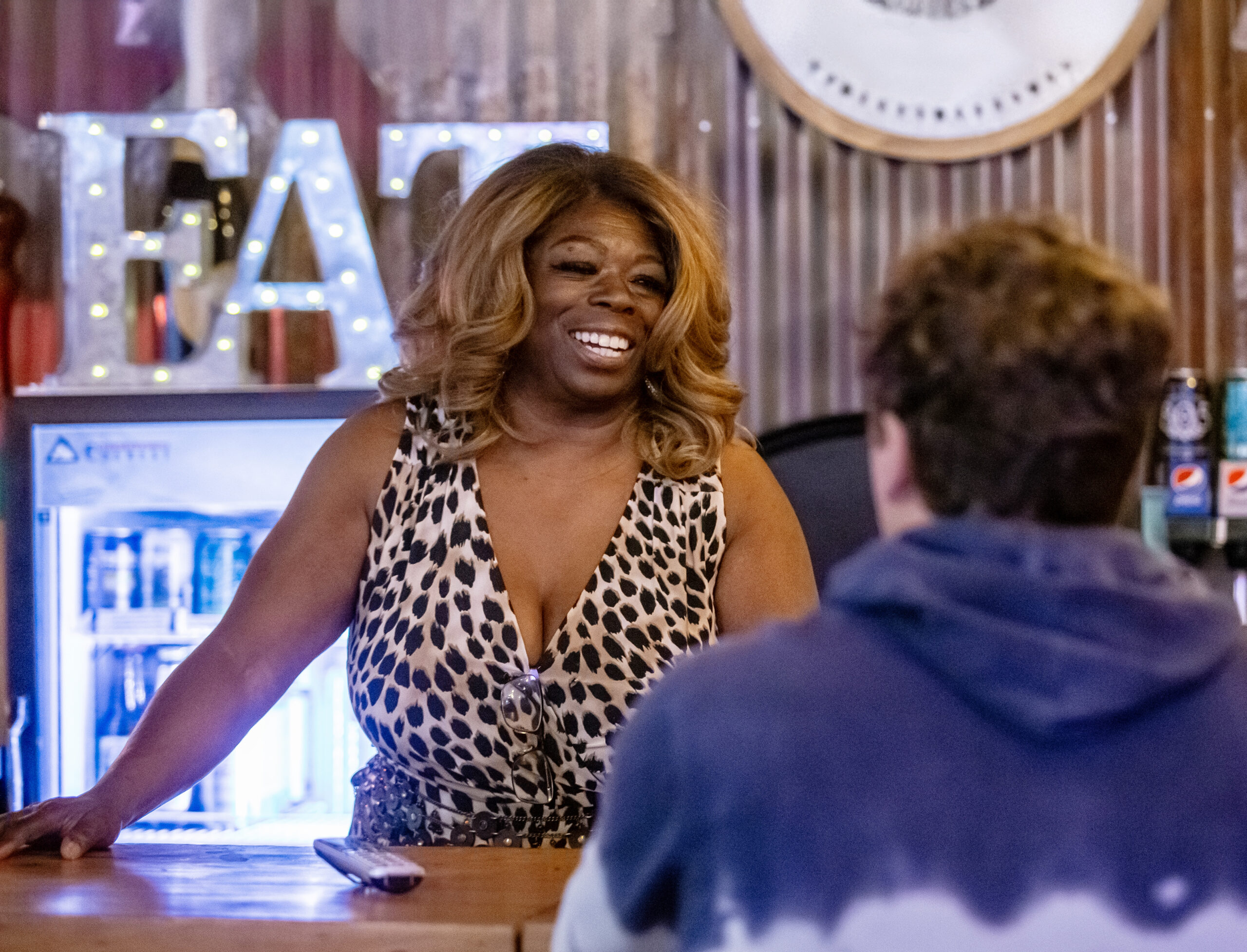
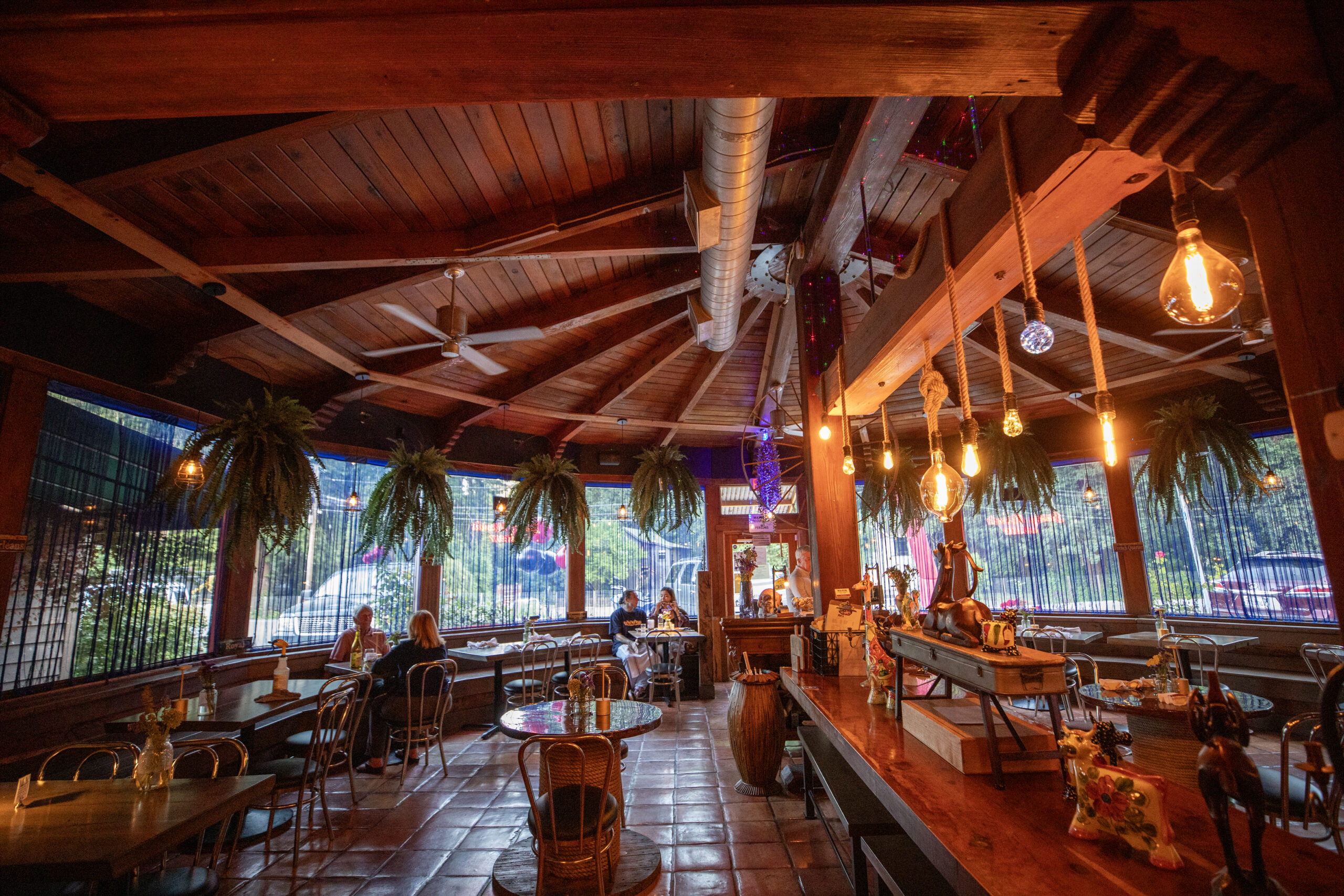
In 2017, she started doing pop-up soul food once a week, gaining a devoted following selling Southern food and barbecue at Johnson’s Beach during the pandemic summers. Since she opened Saucy Mama’s in 2022 west of downtown, the biggest seller has been the catfish and fried okra, inspiring one of her friends to call her “the Colonel Sanders of catfish.” The ribs, cooked out back in a Texas smoker with her father’s secret recipe, come in a close second. Ebbing and flowing over the years, the Russian River seems to have found a new rhythm, she says. “I’m a person who likes change — change is good. No one expects to find a soul food restaurant in Guerneville, and they tell us that all the time.”
Now, at the peak of the summer season, as tourists from around the Bay Area and California discover — or rediscover — the winding ribbon of water that rolls through the redwoods, it’s a chance for a new generation of business owners to learn to work together in solidarity. “Anytime there’s a new business that comes to town, it’s not about like, ’Oh man, there’s competition.’ No, it’s like, more begets more,” says Luedtke. “I come from an abundance model, where I feel like there’s enough for everyone. New people coming to town is an opportunity for us all to shine our shoes and make sure that we’re not getting complacent and lazy.”
Small Town Gems
Forestville
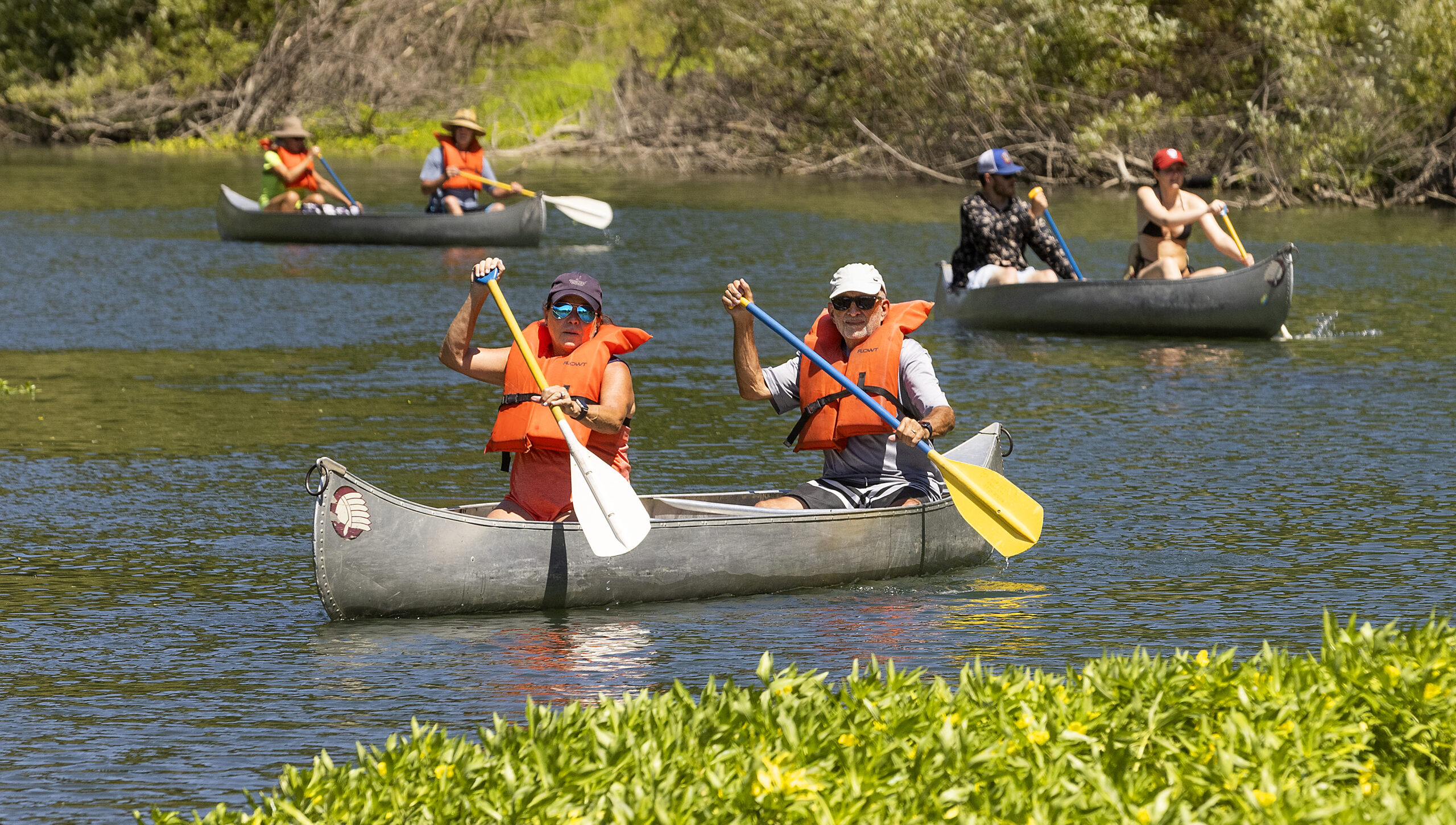
Burke’s Canoe Trips: Countless thousands have dropped in here for the epic summer rite of passage: paddling the 10-mile span of the Russian River from Forestville to Guerneville.
Along the way, you can stop off at sandbars and beaches for picnics and swimming. Keep an eye out for wildlife such as great blue herons, river otter, osprey, and turtles. And make sure you chat up owner Linda Burke, whose family has been renting boats since the late 1950s, back when Burke’s Resort had a roller rink, arcade, and nightclub that staged everyone from Tommy Dorsey to Duke Ellington. Rates: $95 canoes/$60 kayaks, with complimentary shuttle pickup. 707-887-1222, burkescanoetrips.com

River Shuttle: Summer parking can be a nightmare at many of the beautiful regional park beaches along the river, especially later in the day. Hot tip: Hop on the Sonoma County Regional Parks River Shuttle, departing every 30 minutes from El Molino High School, 7050 Covey Road, Forestville. The shuttle runs 9 a.m. to 6 p.m. weekends and holidays from Memorial Day weekend through Labor Day, stopping at Steelhead Beach Regional Park and Sunset Beach River Park. Buy $5 advance passes: parks.sonomacounty.ca.gov/visit/regional-parks-river-shuttle
Also, one of the best river hangouts is at the wide sandy beach at Mom’s Beach, just past Burke’s Canoe and Steelhead Beach, at 10584 River Drive. Make sure you get there early (park opens at 7 a.m. and there are only 17 spots), park in the corner lot, just off River Road, and take the trail down to the water.
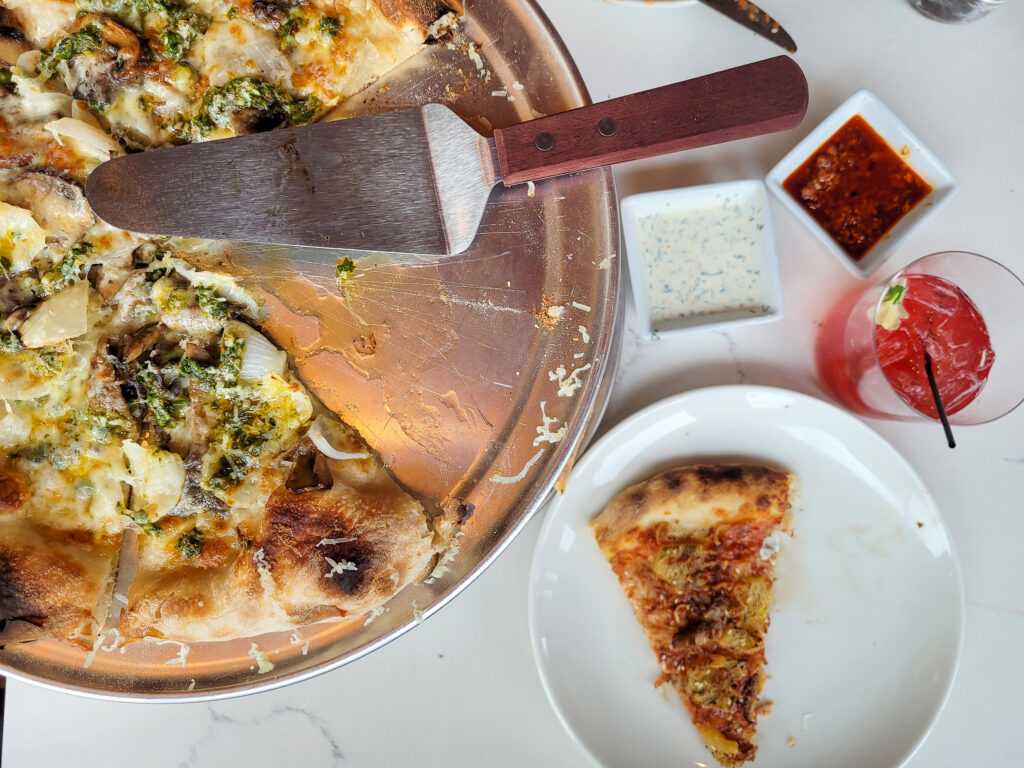
Sonoma Pizza Co.: If you’re looking for picnic supplies in town, this seasonal gourmet pizza joint poses a tough choice between the wood-fired Pepperoni Nirvana pie, prepared Chris’s Way with hot honey and ricotta, and the Italian Stallion sandwich. 6615 Front St. 707-820-1031, sonomapizzaco.com
Rio Nido
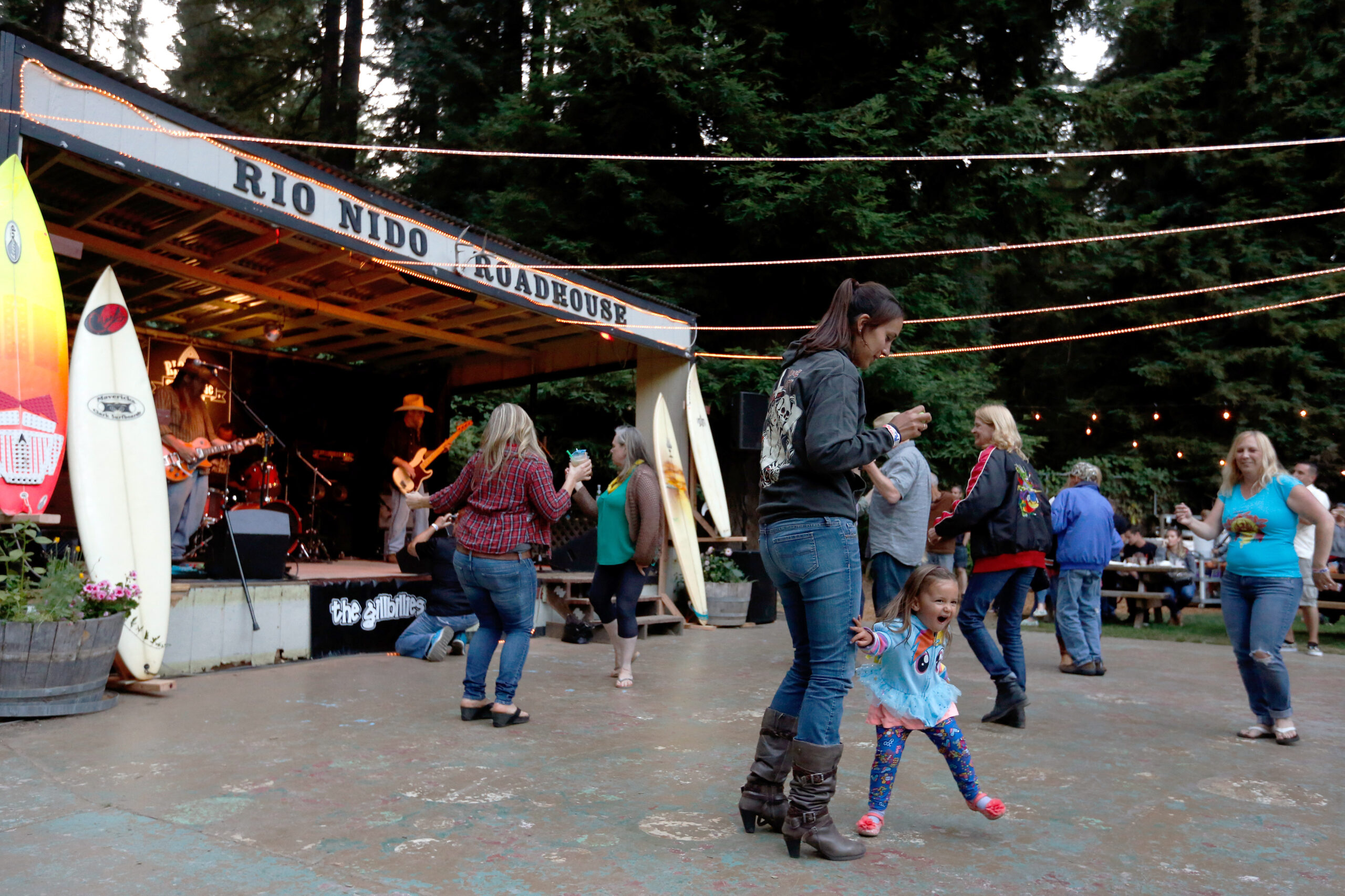
Rio Nido Roadhouse: There may be no better venue to see live music near the river than this classic roadhouse. It’s the reason Chuck Prophet keeps returning for his Summertime Thing festival. It’s where Count Basie and Harry James played during the 1930s and ’40s, and where The Beach Boys and the Grateful Dead plugged in during the ’60s. And it’s the reason why most locals show up any night no matter who’s on the bill. 14540 Canyon 2 Road. 707-869-0821, rionidoroadhouse.com
Guerneville
Things to do
The River Electric: Located on 12 acres, about a block from the river, this brand-new swim club and glamping resort features two pools to cool off on a hot summer day — a 60-foot round pool and the smaller, rectangular Little Dipper. Swim club day passes are $32, with upgrades for chaise lounges and cabanas. Pool bar snacks range from smashburgers, “River Rat” fries (loaded with pimento cheese), and root beer floats to ceviche and local wines. Pool and restaurant are open from 11 a.m. to 6 p.m. 16101 Neeley Road. 707-937-8915, theriverelectric.com
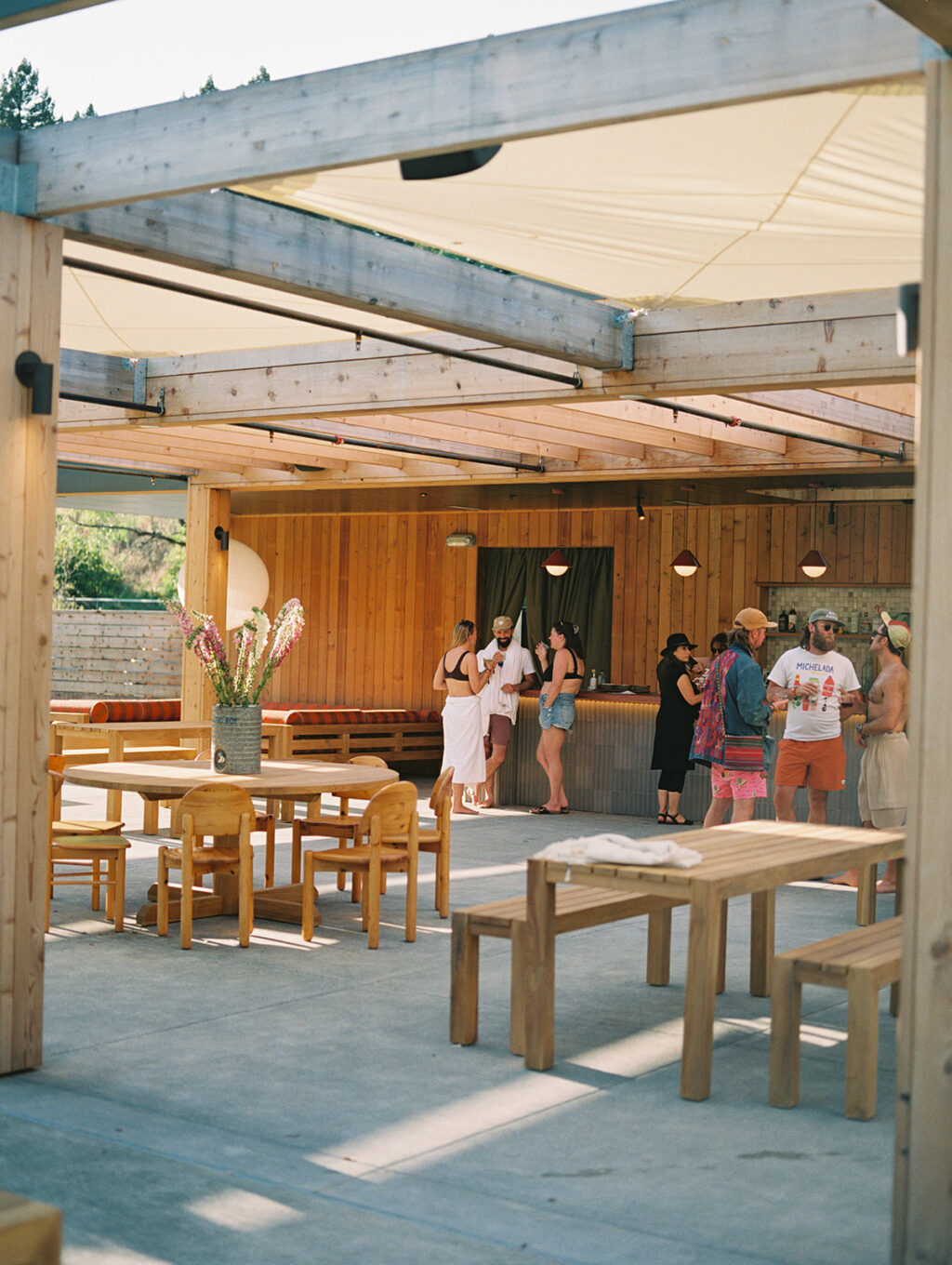

Johnson’s Beach: Rent a kayak, a beach umbrella, or a cabin and chill at one of the most famous bends in the river. Siblings Ethan, Alison, and Andrew Joseph took over in 2022 and are updating what founders Ernie and Gertie Johnson started a century earlier in 1918. 16215 First St. 707-869-2022, johnsonsbeach.com
Solar Punk Farms: Touted as a “queer-run regenerative hub,” this former horse arena has been reborn as a climate think-tank, demonstration area, and working farm all rolled into one. Look for a MORF (Music on Regenerative Farms) concert on July 12. Later this year, they’re creating “Wine and Wander” experiences that combine farm tours with wine tasting, and also volunteer work and play weekends. 15015 Armstrong Woods Road. solarpunkfarms.com
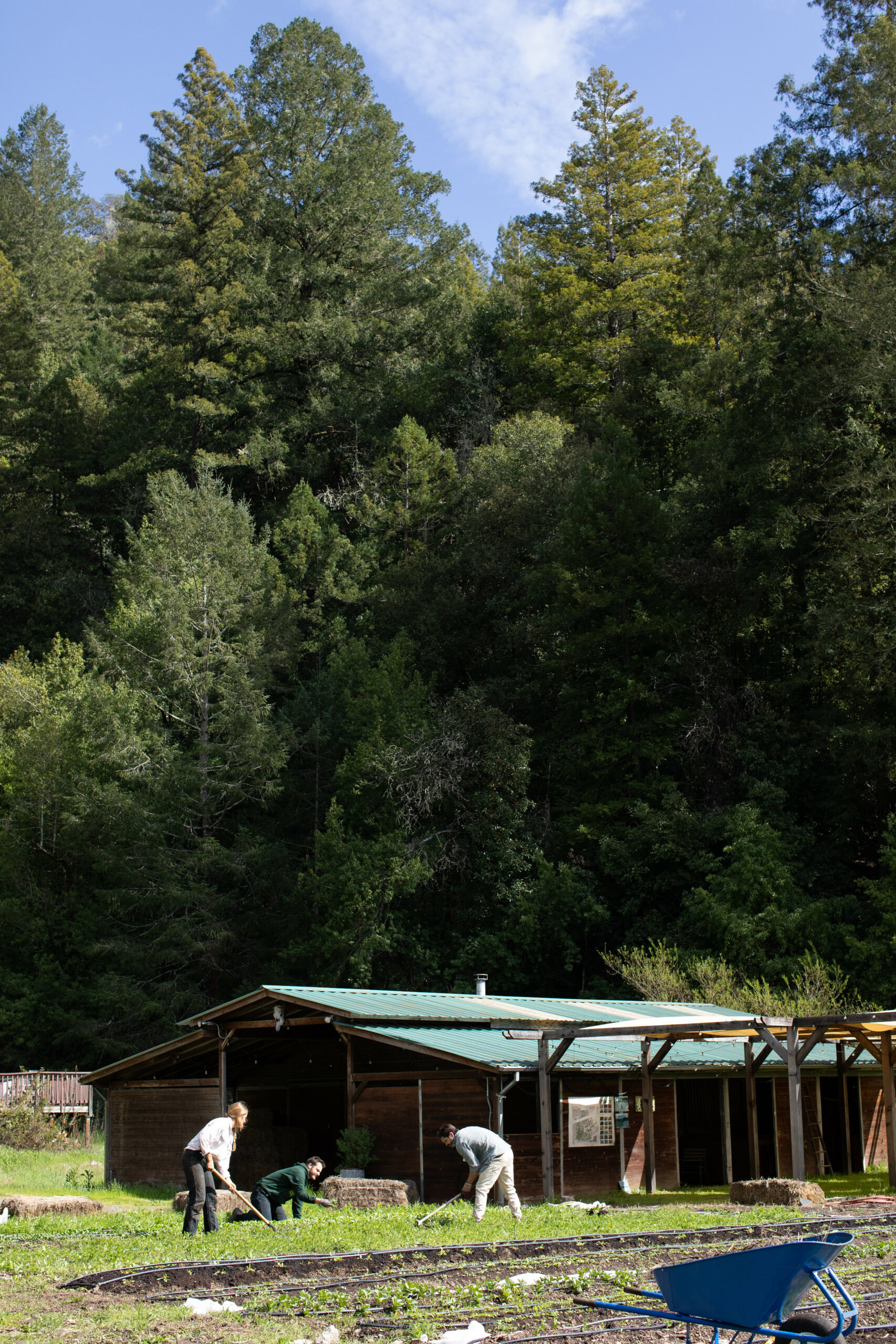
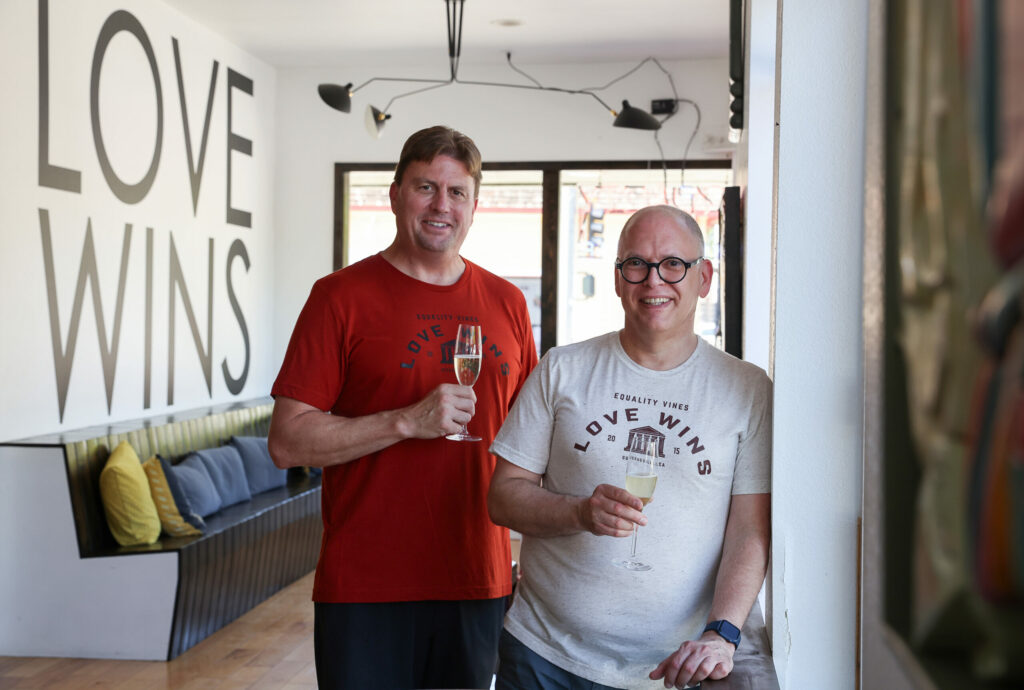
Equality Vines: Founders Matt Grove and Jim Obergefell combine their love of winemaking with an undying fight for equal rights in this eclectic tasting room. Since releasing their first wines (with names like Rosé the Riveter and 19th Amendment Sauvignon Blanc), they have donated nearly $300,000 to nonprofits and equality organizations. 16215 Main St. 877-379-4637, equalityvines.com
Porter-Bass Winery: “We do our tastings outside under our walnut tree,” says winemaker Lance Bass. “It’s a fairly intimate setting, with a beautiful view of the vineyard and the forest around us.” When his parents bought the 17-acre vineyard in 1980, it was run-down with old, unhealthy Palamino and Zinfandel vines. Today, it’s thriving with organically farmed Chardonnay and Zinfandel. Tastings by appointment only. $25 per person, fee waived with purchase of wine. 11750 Mays Canyon Road. 707-869-1475, porter-bass.com
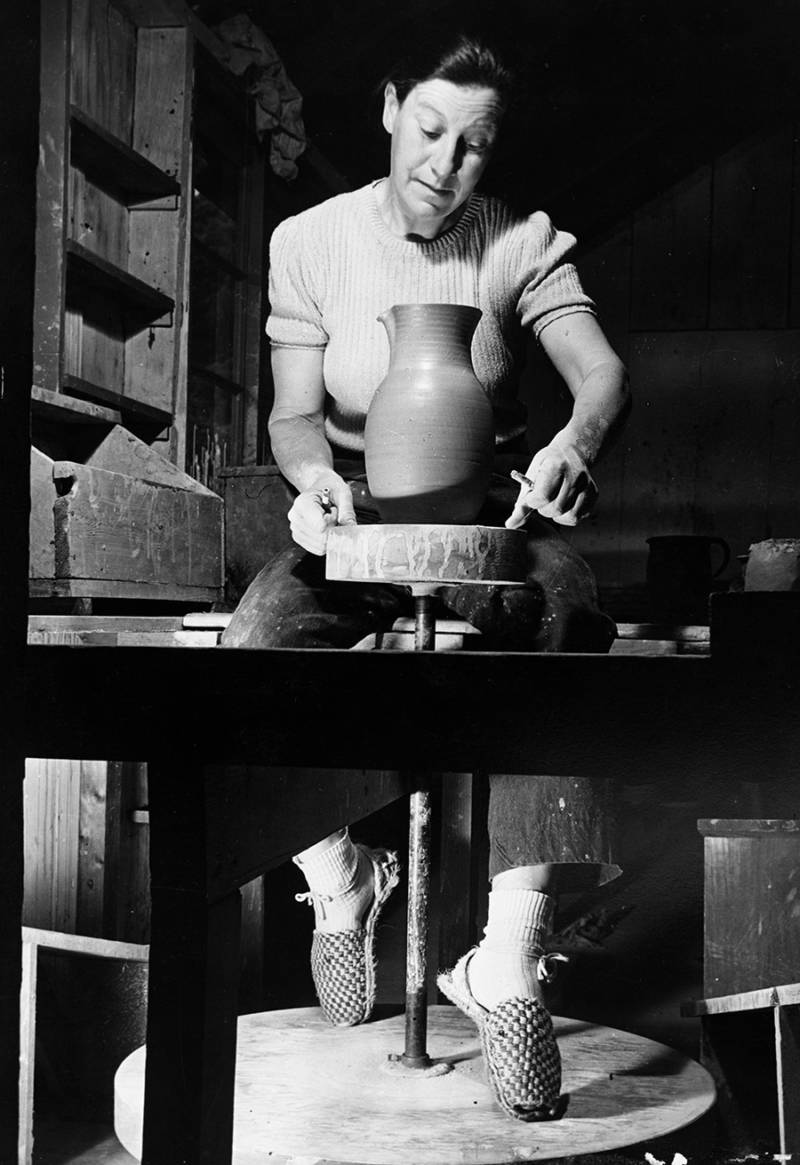
Pond Farm Pottery: Master potter Marguerite Wildenhain put this renowned ceramics studio and artist colony on the map back in the 1940s and ‘50s. Now a designated National Historic Landmark located in the Austin Creek State Recreation Area, it hosts a new artist residency program and docent-led tours for $25 per person the third Saturday from March-October. Reserve spots at pondfarm.org. 17000 Armstrong Woods Road, 707-869-9177
Shopping
Guerneville Wine Collective: This newly opened wine nook takes over where previous Wine Vault owners left off, adding trendy imported tinned fish from Spain and Portugal to the mix. “Our idea is that people can come and grab some pickled veggies, tinned fish, some crisps, a bottle of wine and then go to the river and have a picnic,” says owner Karla Garcia. She opened the wine shop next to Nimble & Finn’s ice cream in the historic Guerneville Bank Club building in May. 16290 Main St., Instagram.com/guernevillewinecollective
Bonzo: Run by husband-and-wife team Eric Gonzales and Beth Miles, this funky clothing and gift shop is the place to go for all things Guerneville-branded, such as river-centric “I Choose the Bear” or Samsquanch T-shirts, “Gville” hats, and “Keeping it Weird Since 1950” hoodies. 14016 Armstrong Woods Road, thebonzo.com
Places to eat

Boon eat + drink: The much-buzzed-about restaurant that helped put Guerneville on the map when chef Crista Luedtke opened in 2009 still garners rave reviews more than 15 years later. The focus is on seasonal, farm-to-table comfort food, so it’s no surprise the flash-fried Brussels sprouts are still the most popular dish, Luedtke says, adding that “the mac ‘n’ cheese is still going strong.” This time of year, look for “blistered tomatoes, seasonal peaches, basil, and really fresh summer vibes on halibut,” she says. No reservations. 16248 Main St. 707-869-0780, eatatboon.com
Road Trip: Chef Crista Luedtke’s latest offering is an ode to her globe-trotting foodie travels and childhood favorites. Look for Mexican street corn salad daily and Thai-style pork Benedict with crispy rice cakes and a Thai hollandaise sauce on the weekend brunch menu. Two of the most popular items are the Free Bird and The Mac Daddy. “Don’t call me out here, but I love a Big Mac and this is my version,” says Luedtke, who makes her own secret sauce. 16218 Main St. 707-604-6102, eatatroadtrip.com
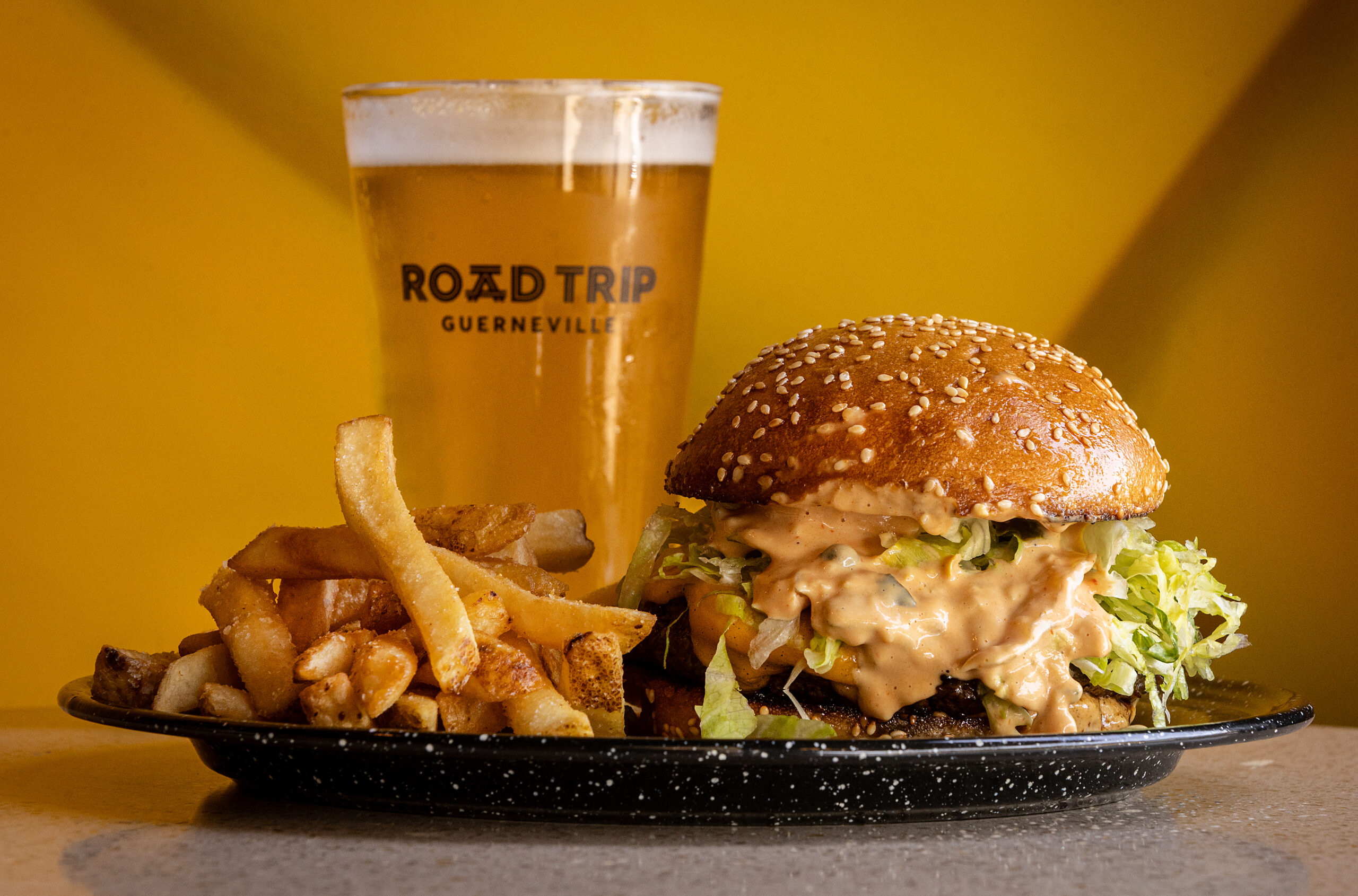
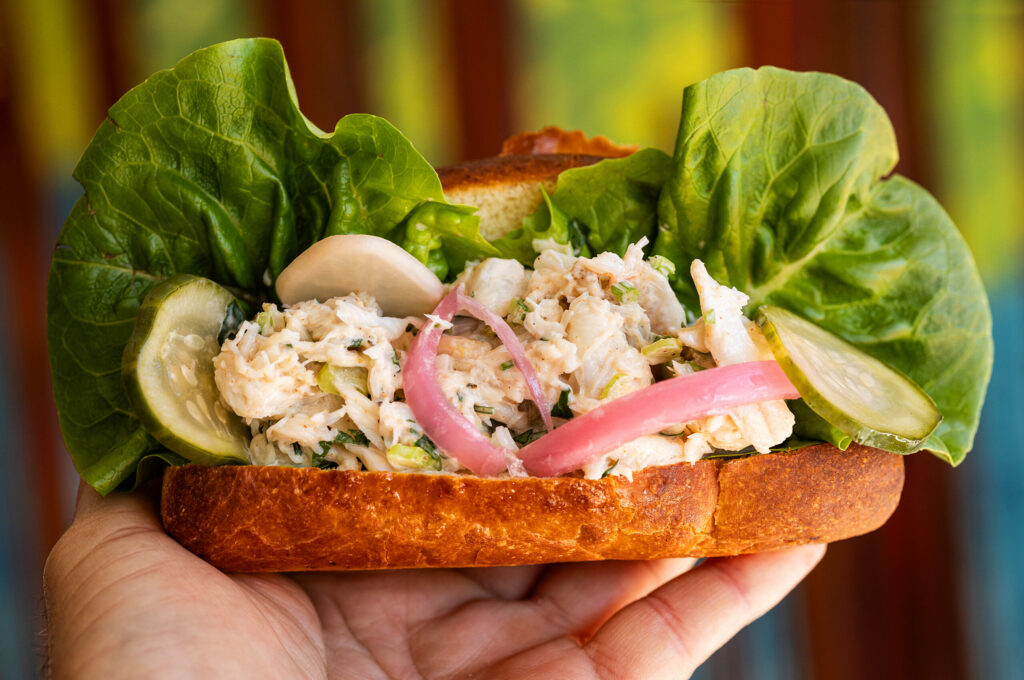
Trillium: The petite 12-seat marble-counter raw bar is the main attraction at this forest-flower-inspired café and lounge run by chef Greg Barnes and wine geek Genevieve Payne. Come for the super-fresh oysters, poke, crudos, and ceviche — but don’t miss the crab roll. And good luck narrowing it down to a glass on the nearly bottomless wine list. 16222 Main St. 707-604-5750, trillium.bar
Saucy Mama’s Jook Joint: Owner Yvette Bidegain has taken her Louisiana family’s recipes and love of Southern cuisine and soul food to another level with the ever-popular fried catfish and her father’s secret-spiced ribs that premiered decades ago to long lines at the Richardson’s Ribs booth at the Sonoma County Fair. From collard greens to sweet potato pie, there’s even something for vegetarians — behold the deep-fried tofu po’boy. 16632 Highway 116. 707-604-7184, saucymamasjookjoint.com
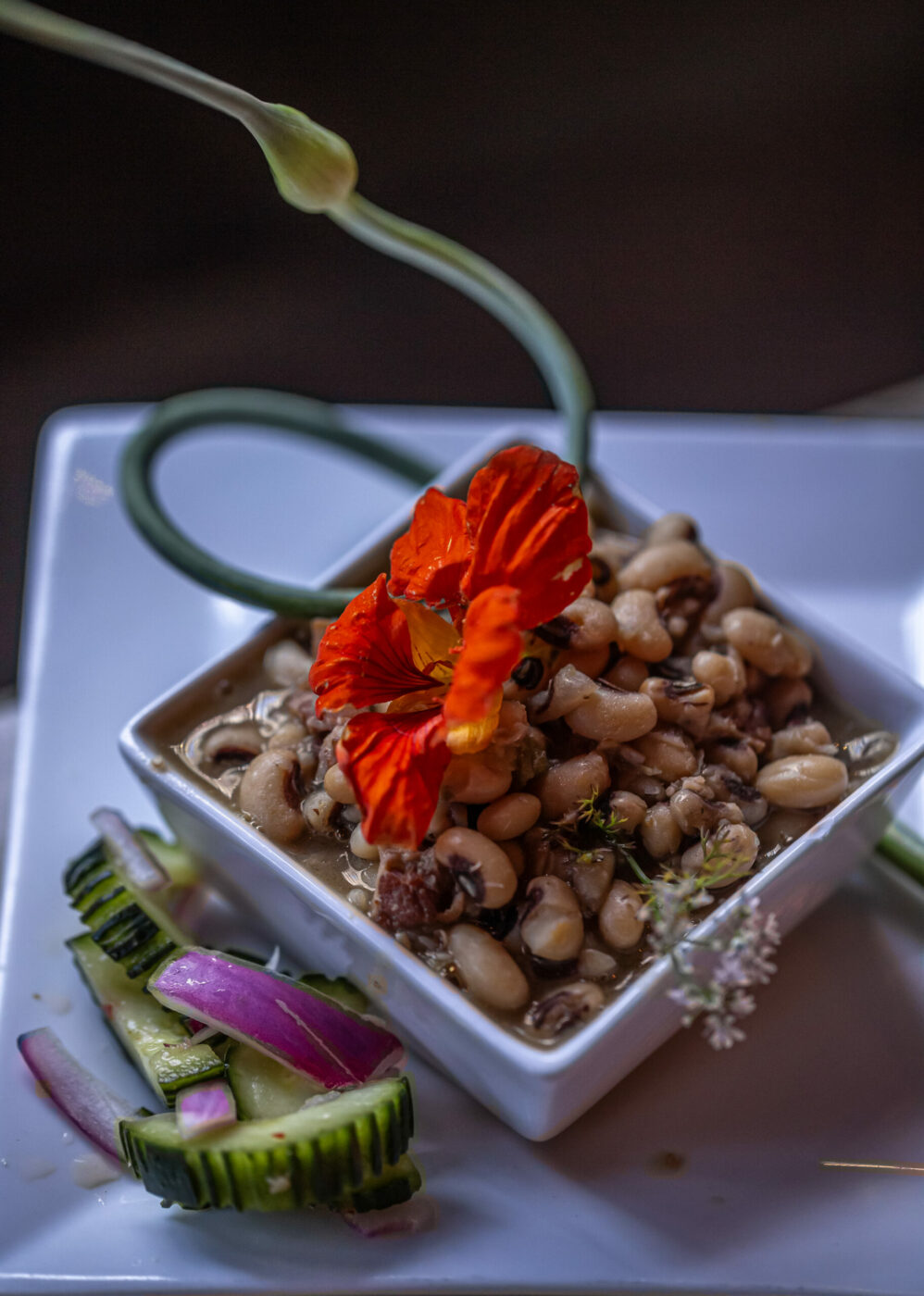

Nimble & Finn’s: Year after year, the most popular flavor at this boutique handmade ice cream shop is lavender honeycomb. But it really depends on what’s in season. Two sisters, Leandra and Jazmin, started with a pushcart freezer at farmers markets, and now make a wide range of flavors from Earl Grey blackberry to toasted coconut date shake. Located inside the historic Guerneville Bank Club building (next to the Wine Collective). Tip: Don’t miss the cool photo booth in the old bank vault behind the counter. 16290 Main St. 707-666-9411, nimbleandfinns.com
Piknik Town Market: First thing to know is, yes, the new owner, Margaret Van der Veen, is still serving the famous biscuits that once made Oprah’s holiday list of “Favorite Things” when the same venue was known as Big Bottom Market. Now the motto is “same biscuit, different basket.” It’s the perfect pop-in spot to grab a breakfast burrito in the morning or a Headlands Hiker sando (beetroot hummus, mixed greens, topped off with pickled cucumber-cashew kale pesto on a ciabatta roll) in the afternoon. 16228 Main St. 707-604-7295, pikniktownmarket.com
El Barrio: One of the tastiest cocktails at this popular mezcal lounge is known as El Patron, named after owner Jimmy Kansau, “because, well, I’m the boss,” he says. Close your eyes and you’ll swear it’s a Mexican Negroni. In addition to handmade tortillas and birria tacos, don’t get Kansau started on the L.A.-style vegetarian tacos with roasted-curry cauliflower, pine nuts, olives, and dates. “It’s kind of like an amalgamation of cultures with this amazing habanero salsa,” he says. “It’s to die for.” 16230 Main St. 707-604-7601, elbarriobar.com
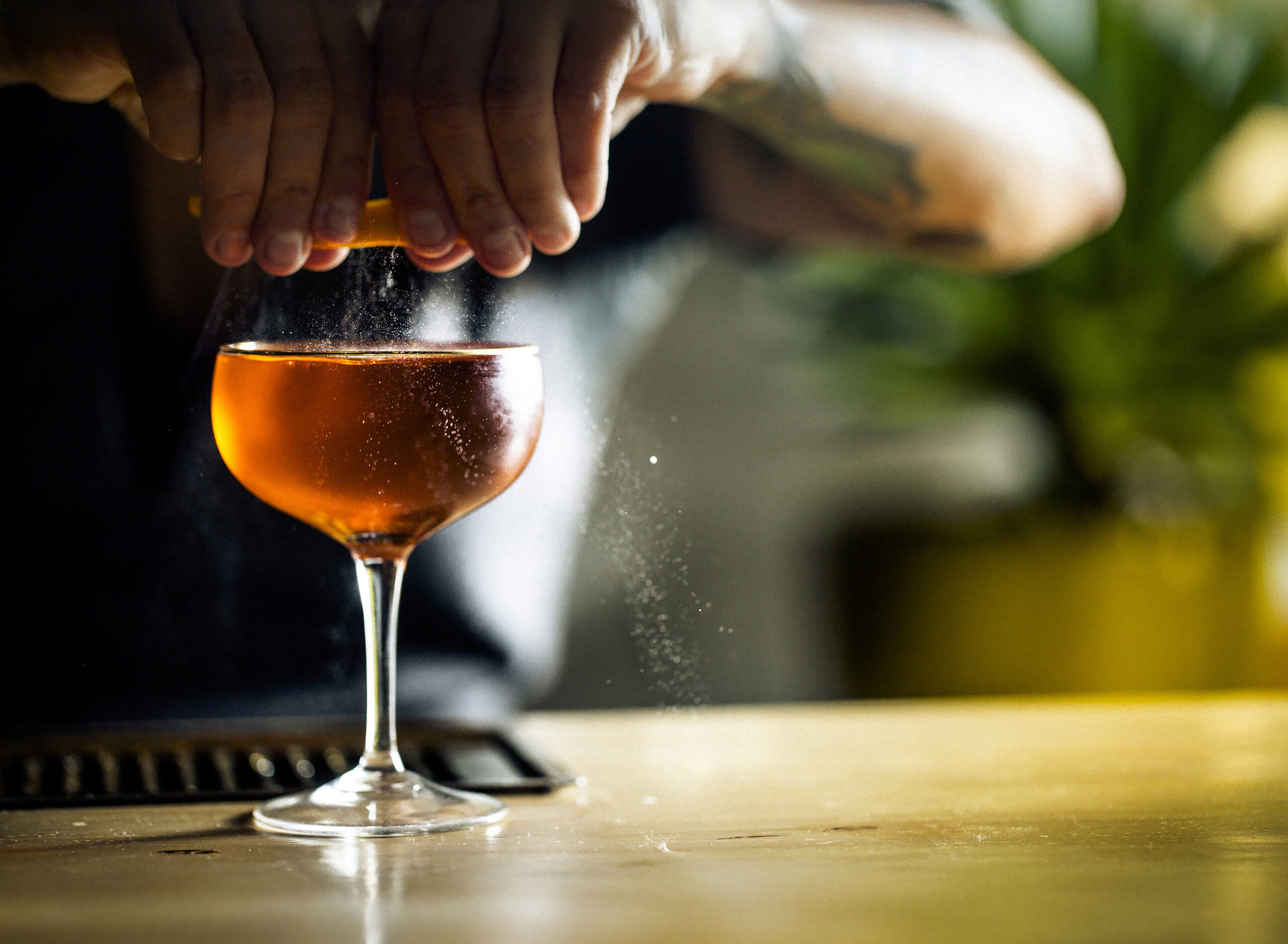
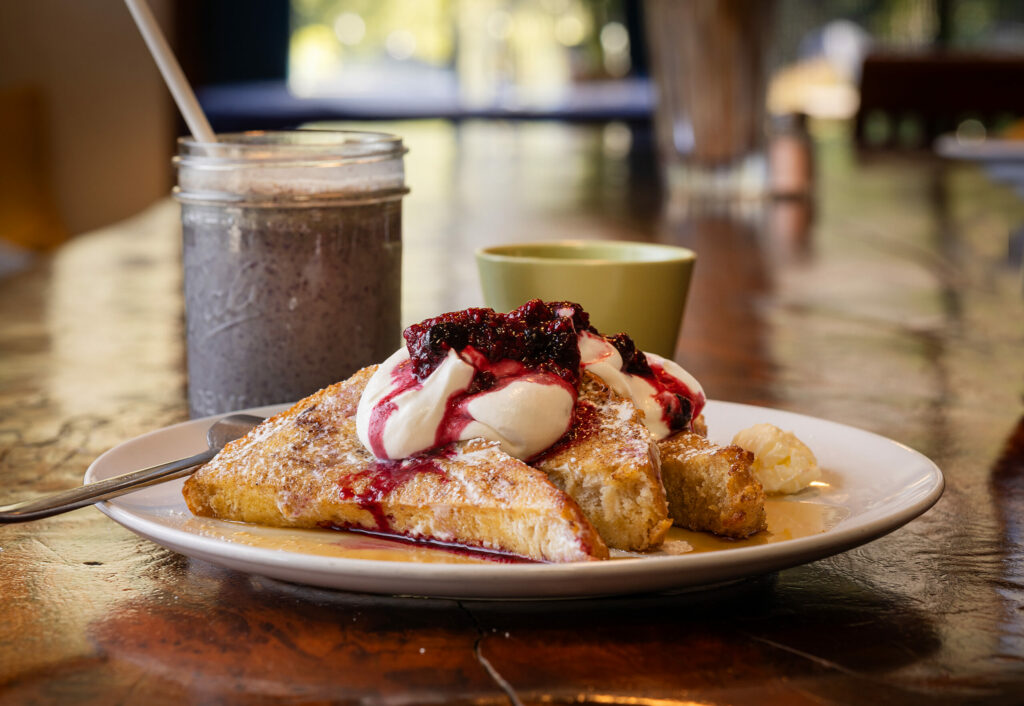
Baked on the River: Helena Gustavsson Giesea’s popular Guerneville café reopened this spring at the R3 Hotel, serving dinner plus brunch and a barbecue lunch on weekends. 16390 Fourth St. 707865-6060, bakedontheriver.com
Places to stay
The River Electric: In addition to the swim club, this glamping resort offers overnight stays in 40 tents. They’re decked out with king-size beds, electricity, and Wi-Fi, tucked away like a luxurious summer camp in the shade of a redwood forest that runs up against the meadow and pool. 16101 Neeley Road. 707-937-8915, theriverelectric.com
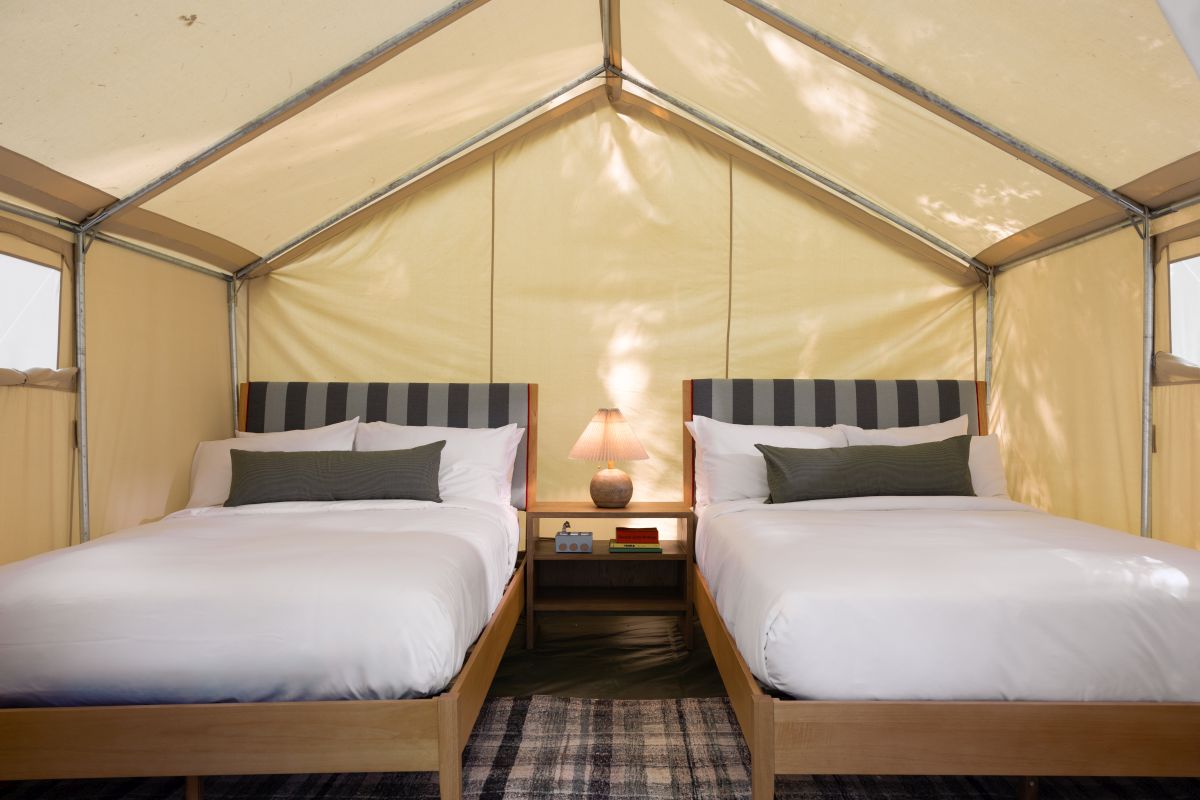
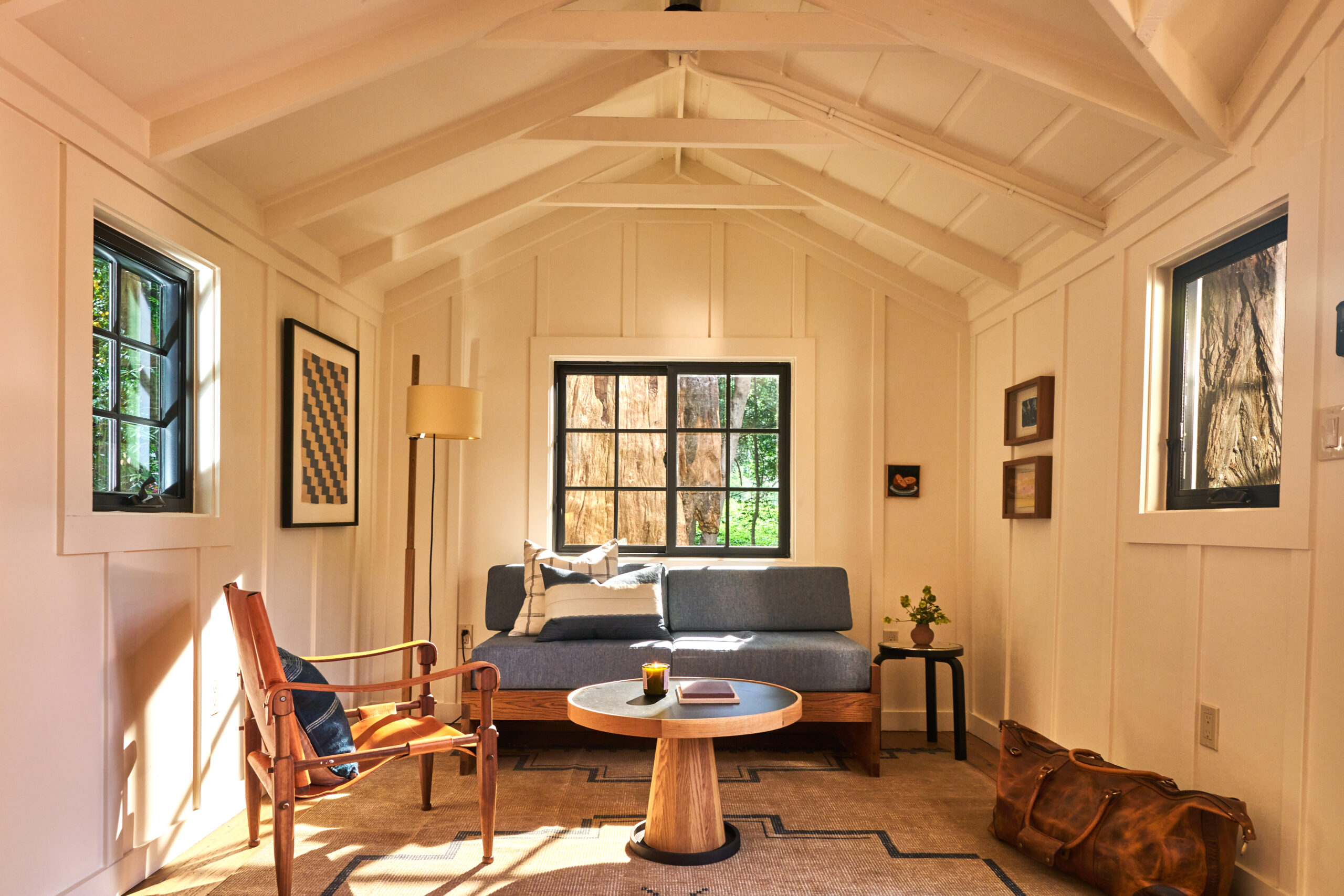
Dawn Ranch: This 22-acre spread of chalets, cabins, cottages, bungalows, and tents is an intimate natural river paradise. Chefs Juliana Thorpe and Ignacio Zuzulich spin local produce and seasonal ingredients with a Brazilian, Argentinian, and European twist. Dawn Ranch is also home to the annual Cosmico music festival where the theme is “music is love.” 16467 Highway 116. 707-869-0656, dawnranch.com
The Stavrand: Roll out of bed to a plate of crab Benedict and a flight of mimosas at this off-the-beaten-path hideaway in Pocket Canyon, across the bridge and down the road from The River Electric. Owners Sam and Emily Glick (previously the general manager at the Kimpton Buchanan in San Francisco) bought the former Applewood Inn and turned it into a luxury boutique gem. 13555 Highway 116. 707-869-9093, thestavrand.com
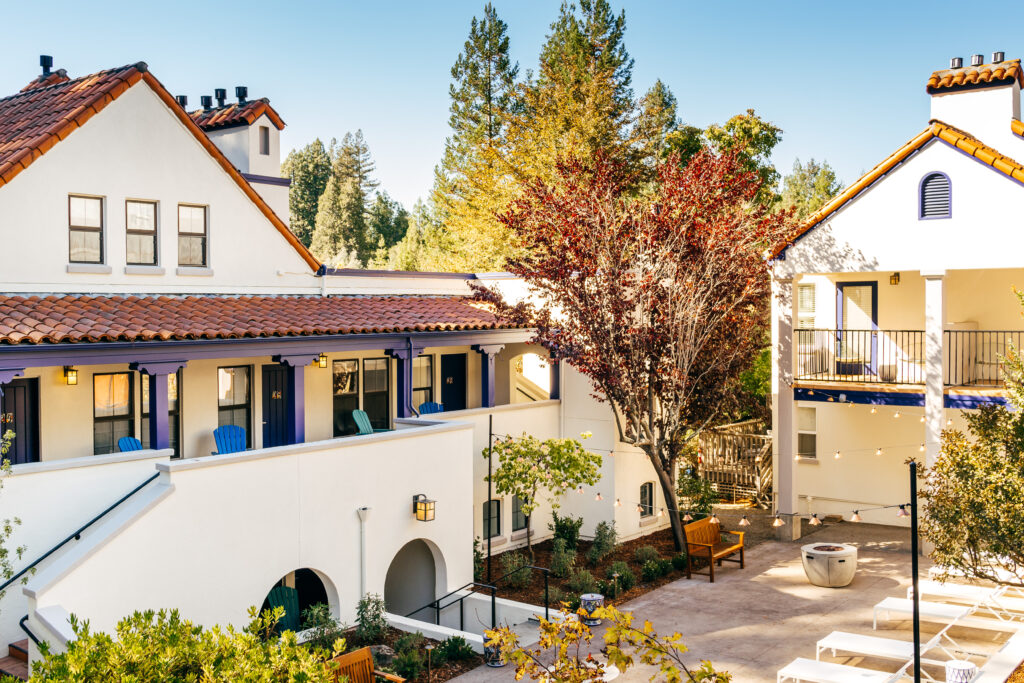
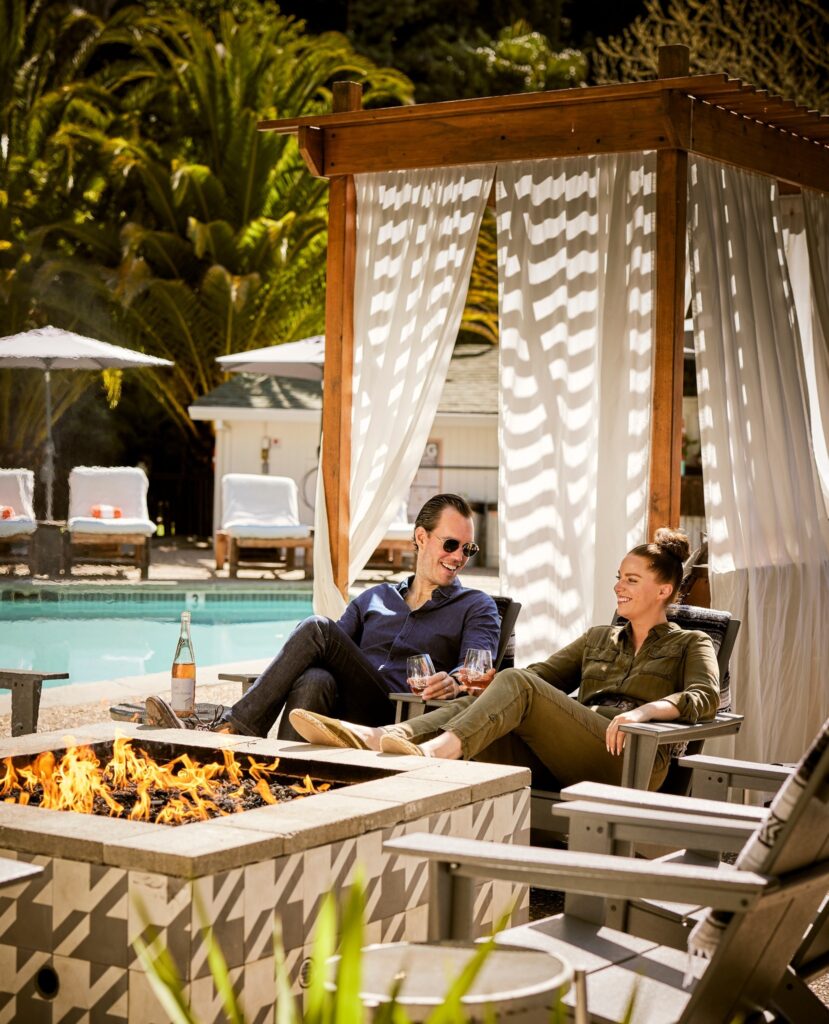
Boon hotel + spa and The Highlands: “I like to call Boon sort of like Palm Springs meets the redwoods. It’s kind of got that mid-century vibe,” says Crista Luedtke, owner of both resorts. “And then Highlands is more like an adult summer camp. A little bit moody, a little bit more like a writer’s retreat.” Take your pick, both have recently been remodeled.
Boon: 14-room boutique hotel with a spa that offers Swedish, deep-tissue, and therapeutic massages, ranging from $145-$215. 14711 Armstrong Woods Road. 707-869-2721, boonhotels.com
The Highlands: Up the hill from Johnson’s Beach, this quirky getaway features rooms, cabins, and Coyote Camp tents. Note to old-timers: The pool is no longer clothing optional like the previous incarnation as Highland Park Lodge. 14000 Woodland Drive. 707-869-0333, highlandsresort.com
AutoCamp: Picture a big campground and lawn nestled among the redwoods west of downtown Guerneville. It’s loaded with 31-foot Airstreams, glamping tents, tiny homes, and the 42-square-foot Happier Camper for a more minimalist stay. Grill out on private outdoor fire pits. The general store is open until 10 p.m. And did we mention complimentary granola? 14120 Old Cazadero Road. autocamp.com/location/russian-river
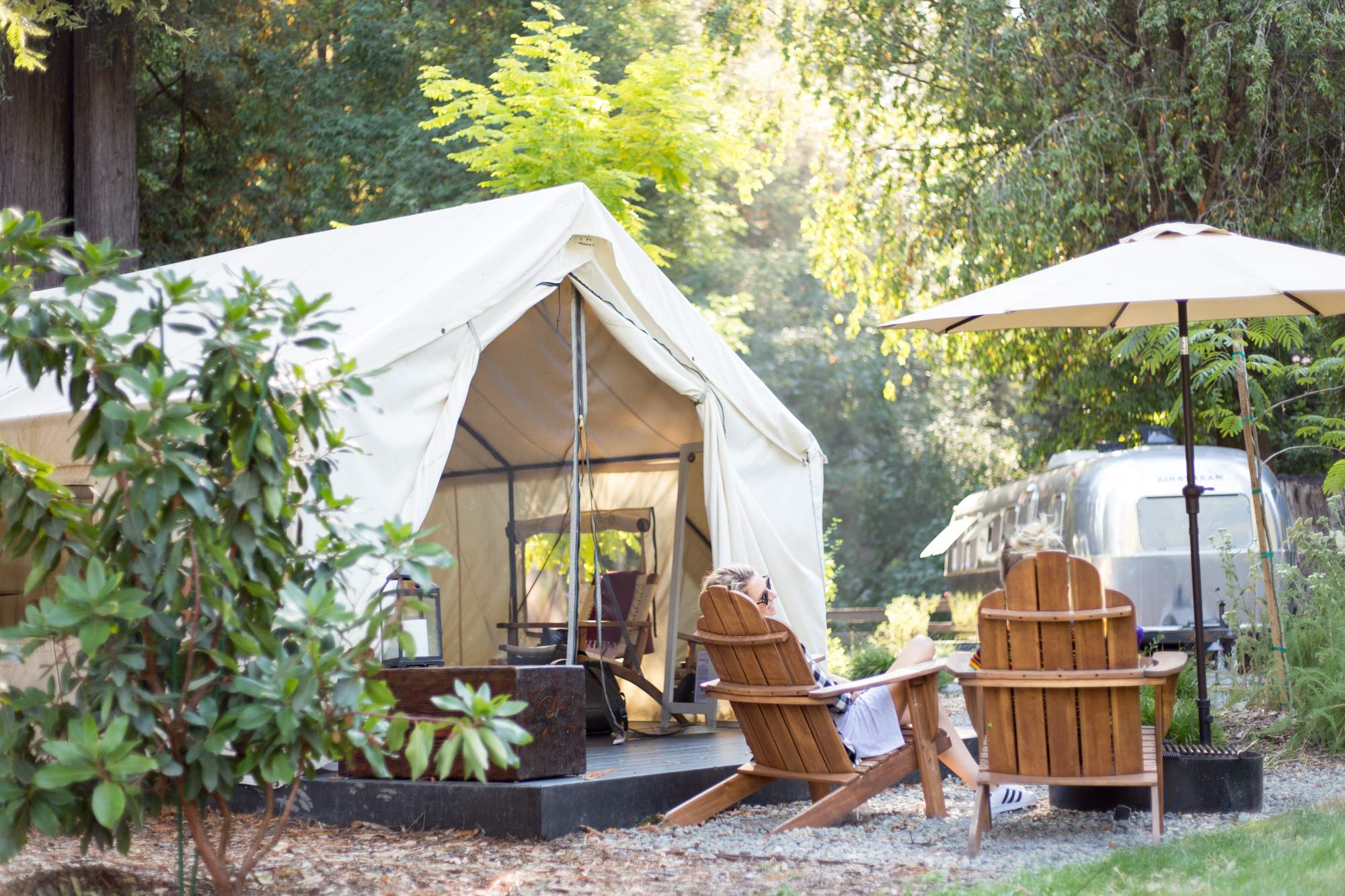
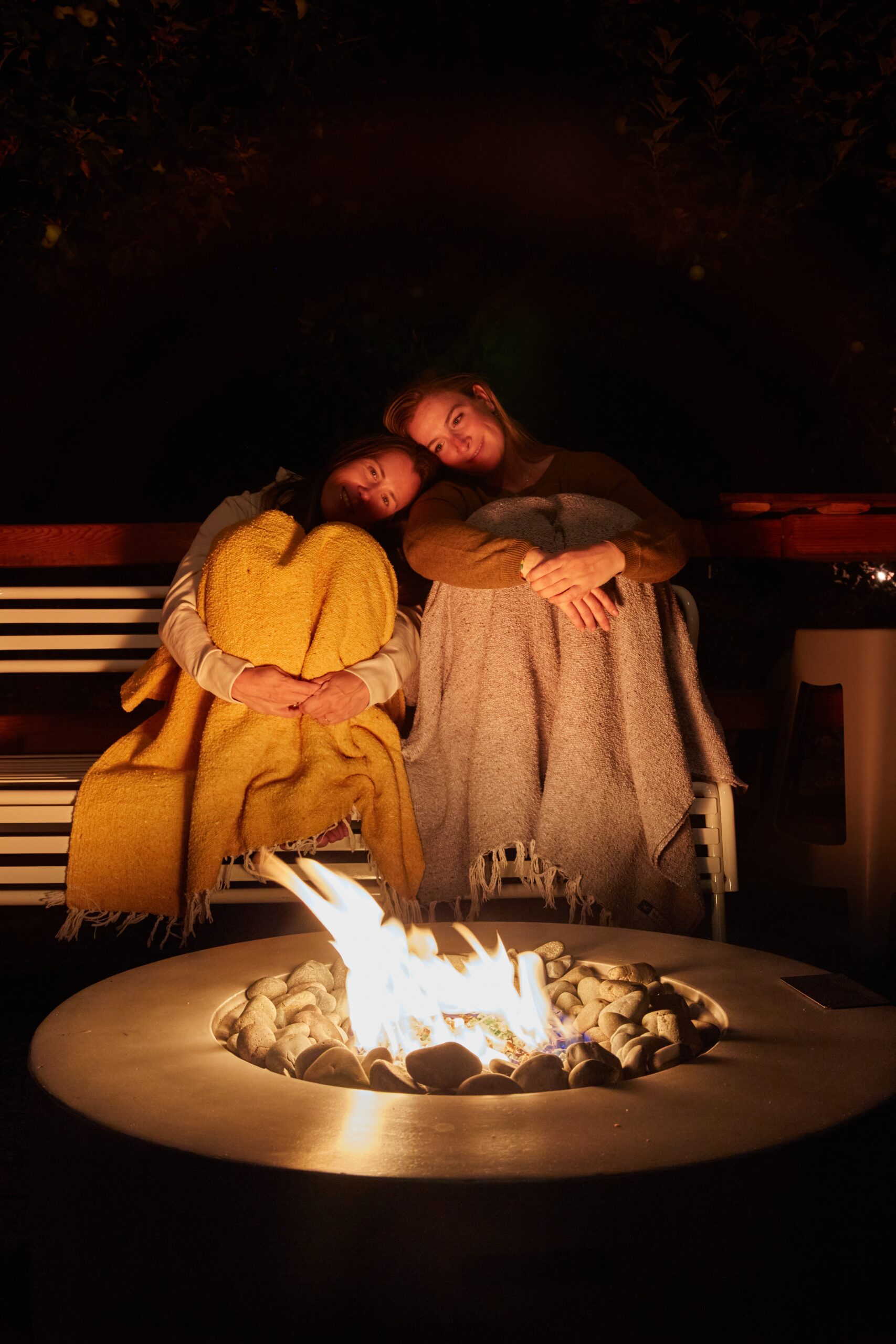
Mine + Farm: A B&B for cannabis lovers (and beer and wine lovers), this nine-room renovated ranch-house inn grows its own weed. It means guests can toke pre-rolls anywhere from the hot tub to the ping-pong table, or they can dig into special Elevated Experience dinners with cannabis as a featured ingredient. Owners Bryce Skolfield and Suzanne Szostak also cultivate fruit trees, a garden, and chickens on the 3-acre property around the corner from Korbel Winery. 12850 River Road. 707-869-4466, mineandfarm.com
Monte Rio
Lightwave Coffee and Kitchen: Not far from the Monte Rio skate park, this river café with a Middle Eastern twist serves up everything from shakshuka and coconut curry to baklava cream pies and chocolate peanut butter cream pie. And Lightwave might have the raddest T-shirts of any café down by the river, featuring a hand-drawn design with skull and skateboard and gramophone. 9725 Main St. 707-865-5169, lightwavecafe.square.site
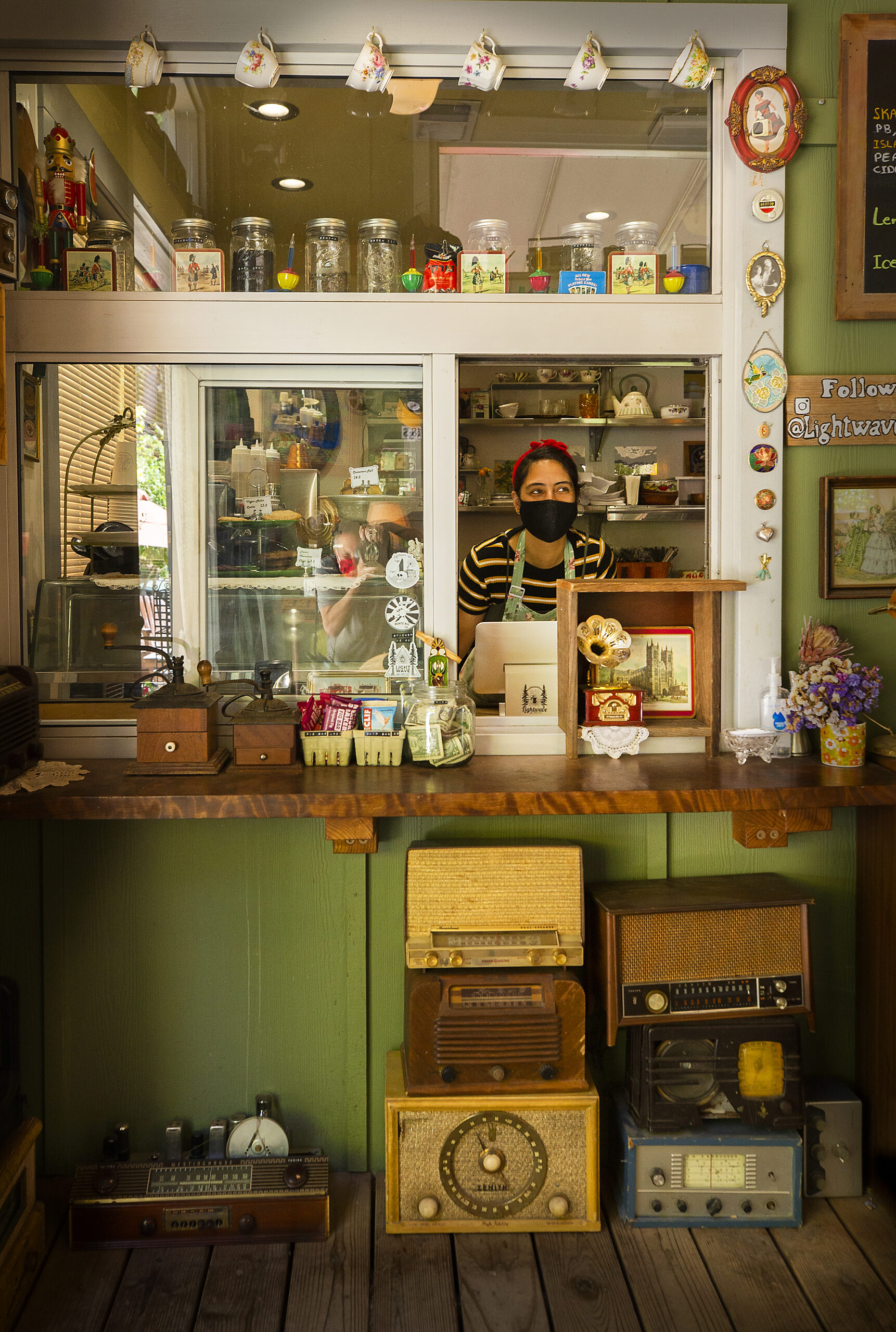
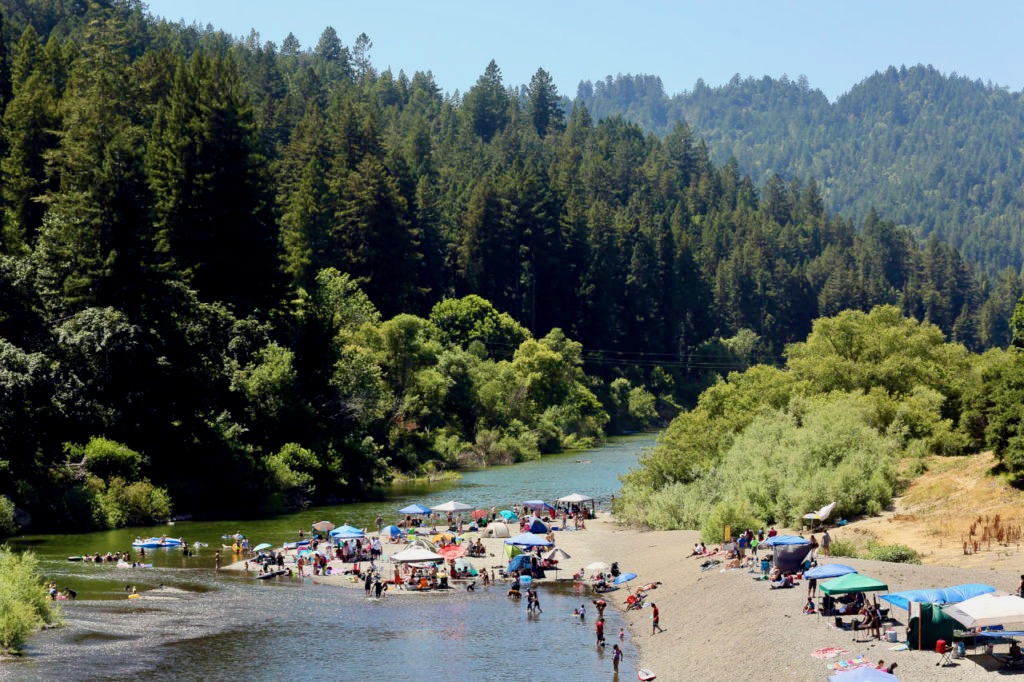
Monte Rio Beach: The largest public beach on the lower Russian River offers kayak rentals, soft-serve ice cream, a boat launch, and a dog-friendly area. Tip: There is no better slice of small-rivertown Americana than this beach packed elbow-to-elbow on the Fourth of July for the boat parade and Big Rocky Games. mrrpd.org/monte-rio-beach
Duncans Mills
Gold Coast Coffee and Bakery: Morning pastries and coffee are the go-to wake-up call at this quaint Duncans Mills café. But owner Patrick Parks has also carved out a well-curated musical scene as of late, staging local favorites like Eric Lindell and Sol Horizon, paired with wood-fired pizzas and tasty locally crafted brews. 25377 Steelhead Blvd. 707-865-1441, goldcoastcoffeebakery.com
The post A New Generation Is Bringing Its Own Funky Vibe to the Russian River appeared first on Sonoma Magazine.
]]>